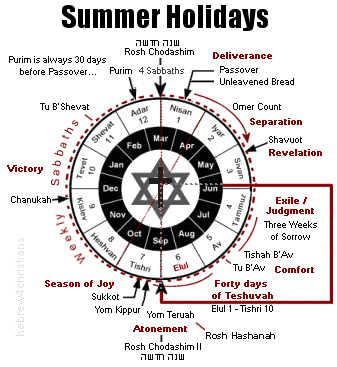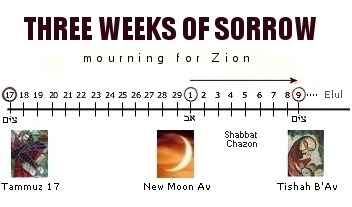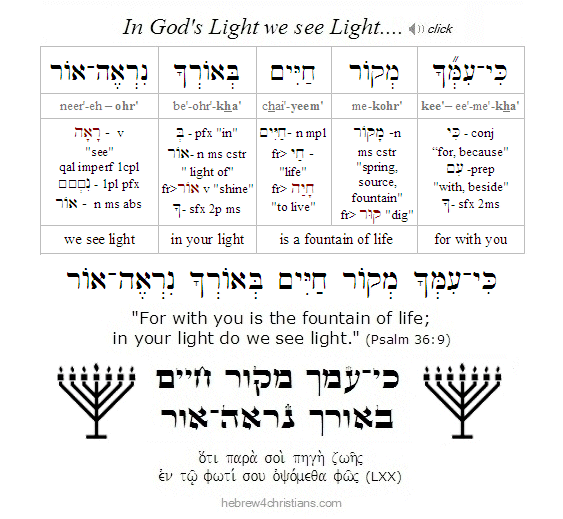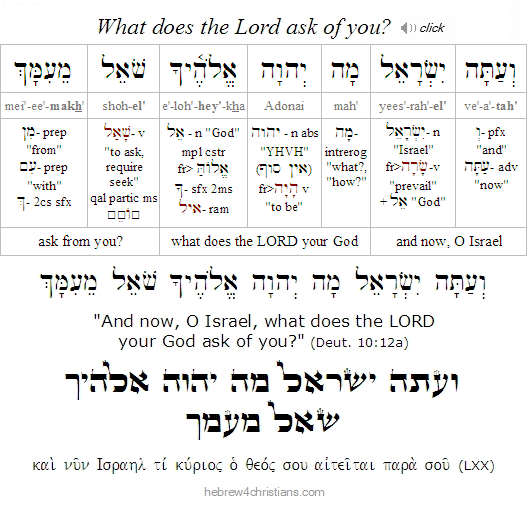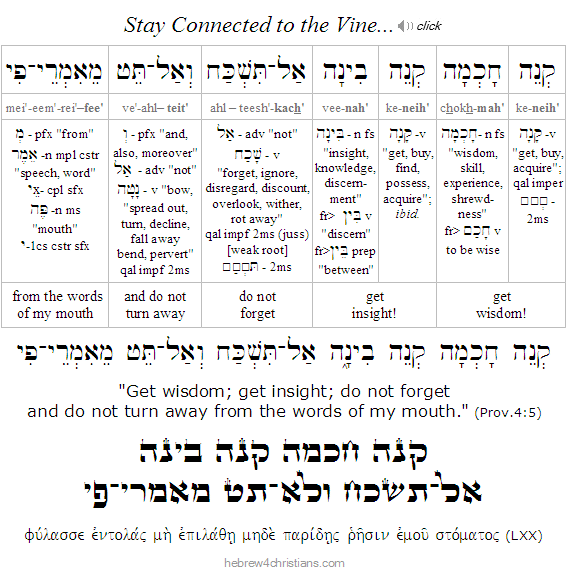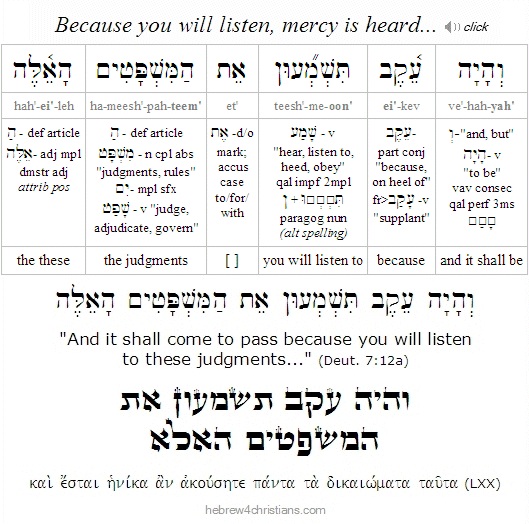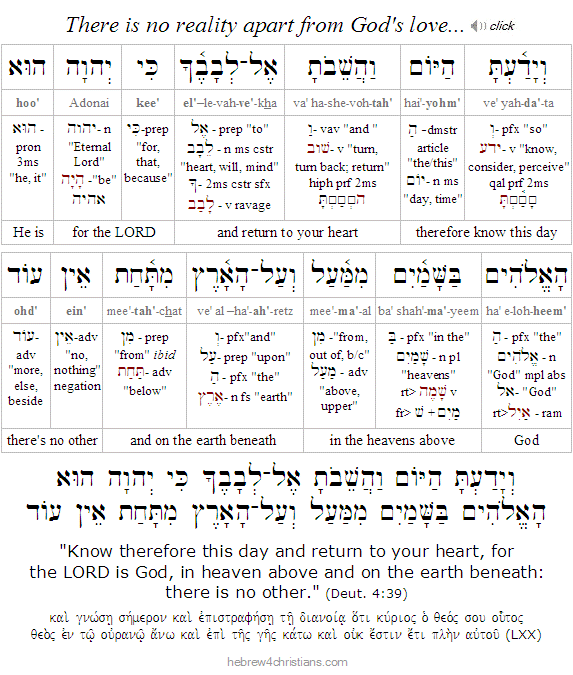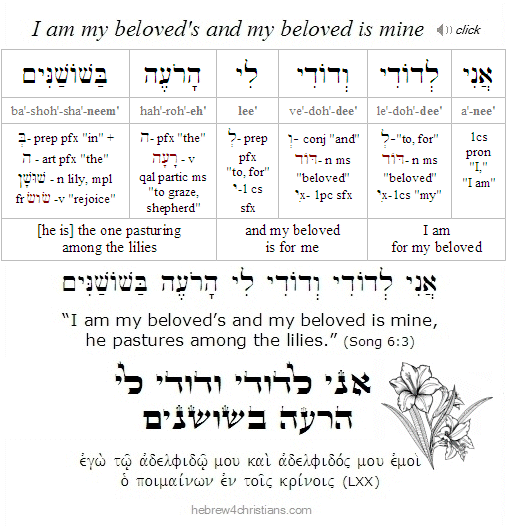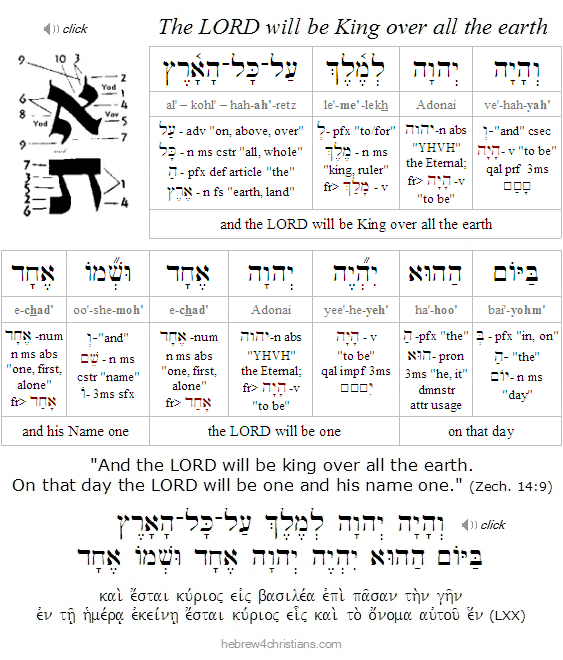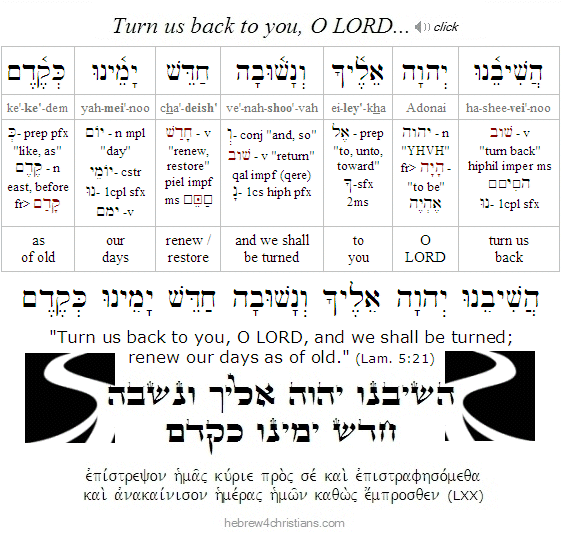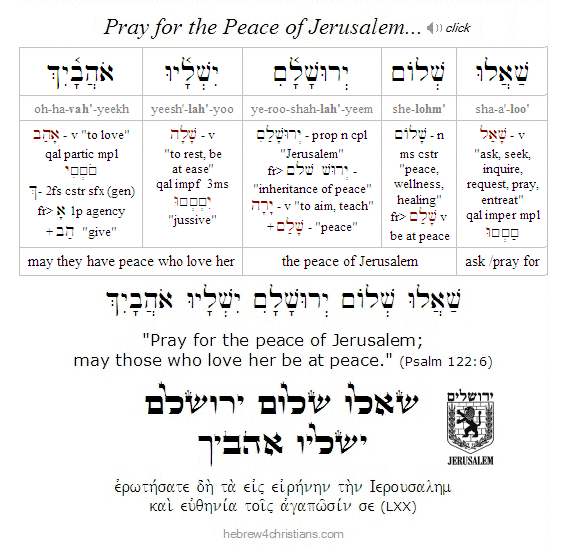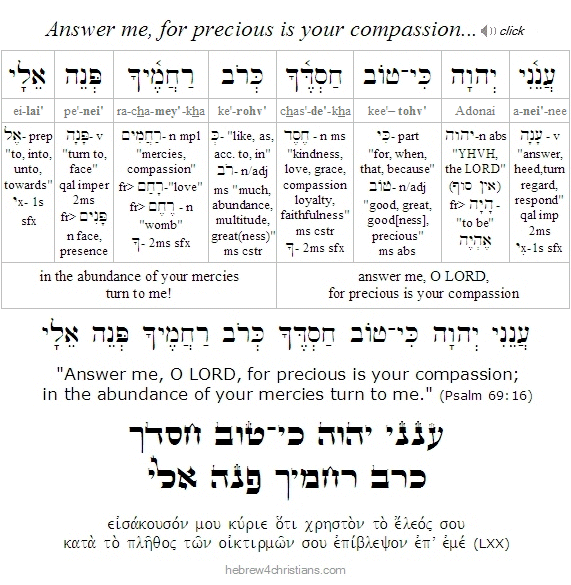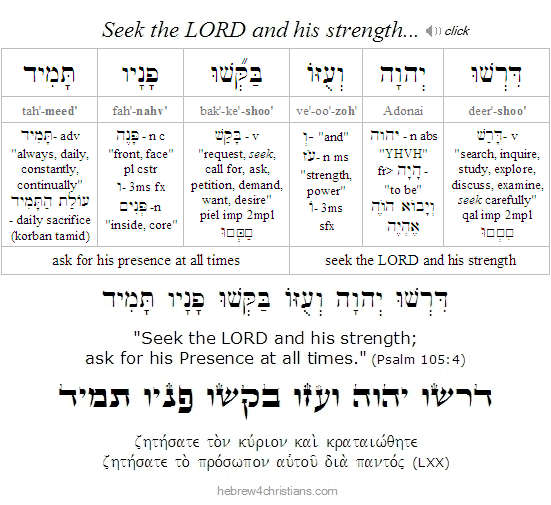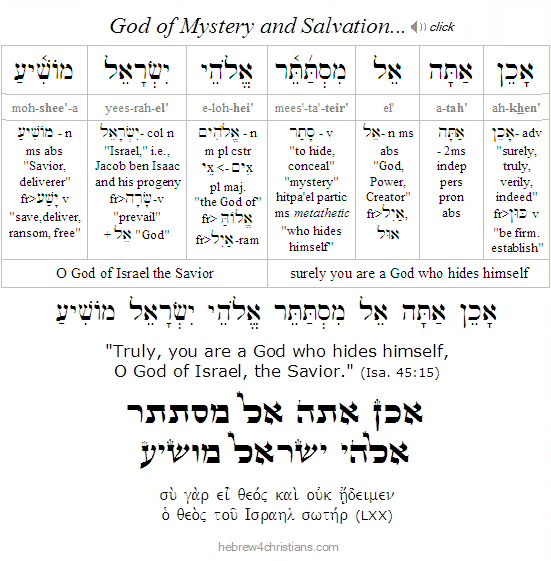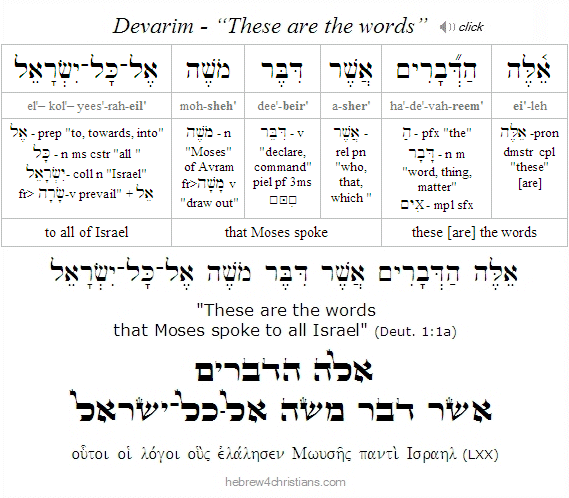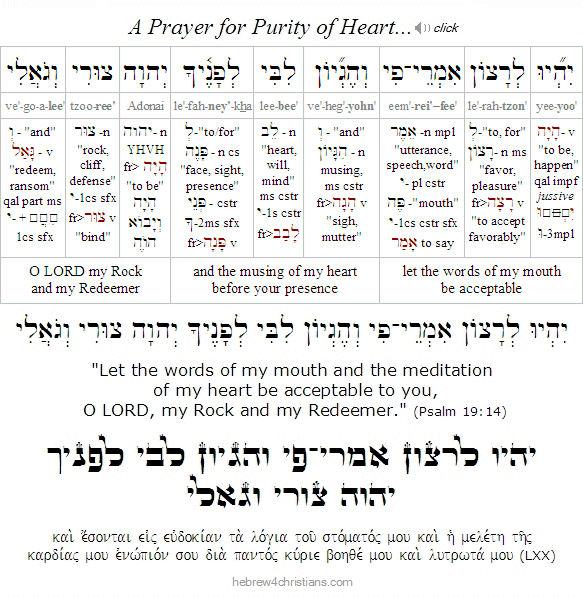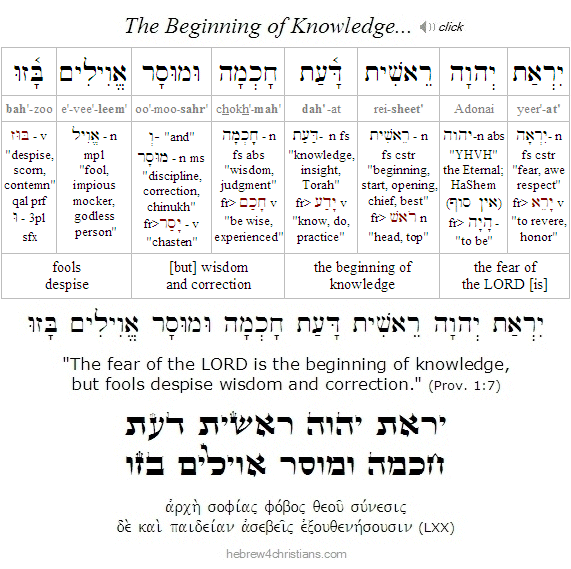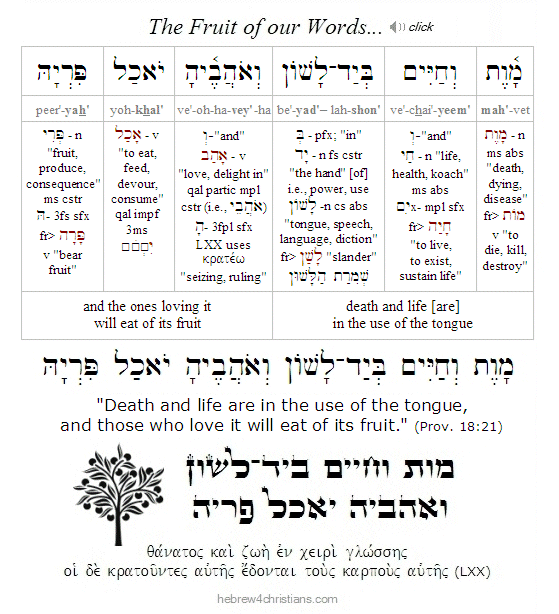|
Jewish Holiday Calendar
For July 2021 site updates, please scroll past this entry....
In the summer there occurs a three week period of mourning that begins with the Fast of Tammuz and ends with Tishah B'Av. The last nine days of this three week period (i.e., from Av 1 until Av 9th) are days of increased mourning. However, after this somber time, the romantic holiday of Tu B'Av, the 15th of Av occurs. Summer ends with the 30 days of the month of Elul, a yearly season of teshuvah (repentance) that anticipates Rosh Hashanah and the fall holidays. The 30 days of Elul are combined with the first 10 days of the month of Tishri to create the "Forty Days of Teshuvah" that culminate with Yom Kippur.
Because they occur between the spring and fall holidays, the summer holidays help us prepare for the second coming of the Messiah:
The Summer Holidays:

Note that in accordance with tradition, holiday dates begin at sundown. Moreover, some holidays may be postponed one day if they happen to fall on the weekly Sabbath:
1. Month of Tammuz (Wed. June 9th [eve] - Fri. July 9th [day])
2. Month of Av (Fri. July 9th [eve] - Sat. Aug. 7th [day])
3. Month of Elul (Sat. Aug. 7th [eve] - Mon. Sept. 6th [day])
4. Month of Tishri (Mon. Sept. 6th [eve] - Tues. Oct. 5th [day]) - Fall holidays begin!
Note: For more about the dates of these holidays see the Calendar pages....
July 2021 Updates
The Long Road Home...

07.30.21 (Av 21, 5781) Teshuvah ("repentance") is often described as "turning" back to God, though practically speaking it is an ongoing turning, that is, a turning to God both in moments of ambiguity, pain, and distress, as well as in moments of respite and relative happiness... It is in the midst of the ego's clamor, before the parade of worldly fears or pressures, in the crucible of "everydayness" that we must "come to ourselves" and (re)find God. In that sense, teshuvah is a sort of focus, a direction, a seeking, and a center of life, the place of constant repair for the inner breach we constantly feel. It's a long road home to finally understand you belong at your Father's table... That is the message of the parable of the prodigal's return (see Luke 15:11-32).
It is written in the Mishnah (Avot:15b), "repent one day before you die," but who knows the day of one's death in advance? Therefore "seek the LORD while he may be found; call upon him when he is near" (Isa. 55:6). "In eternity you will not be asked how large a fortune you are leaving behind - the survivors ask about that. Nor will you be asked about how many battles you won, about how sagacious you were, how powerful your influence - that, after all, becomes your reputation for posterity. No, eternity will not ask about what worldly goods remain behind you, but about what riches you have gathered in heaven. It will ask you about how often you have conquered your own thought, about what control you have exercised over yourself or whether you have been a slave, about how often you have mastered yourself in self-denial or whether you have never done so" (Kierkegaard).
Just as God humbled Israel with manna in the desert, so He humbles us. "Give us this day our daily bread and deliver us..." The purpose of affliction is ultimately good and healing: God humbles us with manna, the "bread of affliction, so "that he might make you know that man does not live by bread alone, but man lives by every word that comes from the mouth of the LORD" (Deut. 8:3). In other words, God uses tzuris to lead us to do teshuvah and accept the truth. We often pray that our problems be taken away, but God sometimes ordains these very problems so that we will turn and draw near to Him... We are being weaned from this present age to be made ready for heavenly glory, for things unimaginably wonderful, soon to be revealed to you. Chazak – stay the course, friends; the hour is near.
Hebrew Lesson:
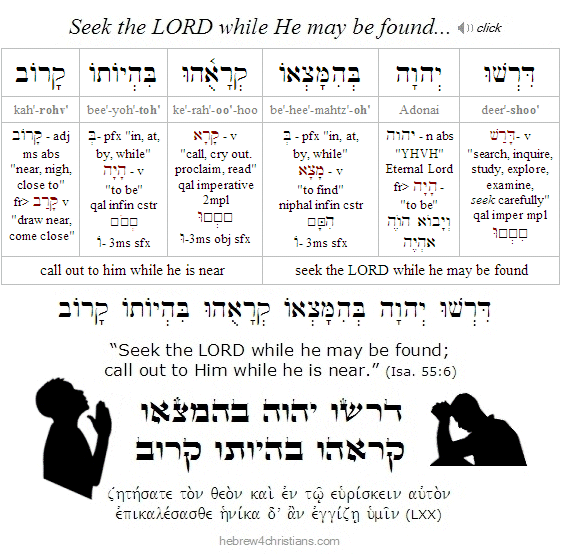 |
By Means of His Light...
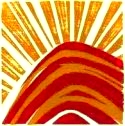
[ The following entry is indirectly related to our Torah for this week (Eikev) because it looks at the question of "fearing God" and seeing the sacred in our lives... ]
07.30.21 (Av 21, 5781) C.S. Lewis once made the helpful distinction between "looking at" and "looking along" a sunbeam (Lewis: "Meditation in a Tool Shed," 1945). In the former case the mind looks "at" the beam itself, from a supposedly "transcendental" perspective, as if it could objectively describe the thing in descriptive terms, as a "fact" or by reducing the phenomena to simpler, more "natural" terms (e.g., defining light as waves or particles or energy). In the latter case, the mind see "along" the beam in relationship with it, seeing by its means, as part of his horizon of experience, not focusing on it (as a fact) but experiencing other things through its agency, and interpreting them in a semantic world of interrelated meanings. Now Lewis' point was that modern scientific humanism assumes it provides a "truer" interpretation of experience by looking "at" things, as for example, when it "reduces" (i.e., explains away) religious experience as a matter of genetics, sociology, psychology, or some other "natural" paradigm. Of course such a presupposition is without real warrant, since "looking at" something involves its own way of "looking along" the axis of assumptions hidden within its own methodology.... In short, there is no true "looking at" things as an independent observer, since everyone is affected by their own biases and assumptions they bring to experience. Such awareness should instill within every soul a deep sense of humility. Nevertheless, in questions of faith we are both look at and look along the contours of life to make inferences to the best explanation, and therefore as Lewis succinctly said, " 'I believe in Christianity as I believe that the sun has risen: not only because I see it, but because by it I see everything else.' We (all of us) walk by faith, not by sight, and the only real question is what direction are we looking...
"You can put this another way by saying that while in other sciences the instruments you use are things external to yourself (things like microscopes and telescopes), the instrument through which you see God is your whole self. And if a man's self is not kept clean and bright, his glimpse of God will be blurred - like the Moon seen through a dirty telescope." - C.S. Lewis: Mere Christianity
Gratitude and Seeing...

07.30.21 (Av 21, 5781) We are instructed to see small miracles, everyday "signs and wonders..." In our Torah portion for this week (i.e., Eikev) we read: "And you shall bless the LORD your God for the good land he has given you." (Deut. 8:10). Whenever we derive benefit or enjoyment from something we are to bless (i.e., thank) God for his goodness. Jewish tradition says that if one eats or drinks without saying a blessing, it is as if he has stolen from God. From the verse, "What does the LORD ask of you..." (Deut. 10:12), the sages infer that a person should say at least 100 blessings a day, since the word מה, "what," alludes to the word מאה, a "hundred." The Hebrew term for gratitude is hakarat tovah (הַכָּרַת טוֹבָה), a phrase that means "recognizing the good." The heart looks through the eye, and therefore how we see is ultimately a spiritual decision: "If your eye is "single" (i.e., ἁπλοῦς, sincere, focused)," Yeshua said, "your whole body will be filled with light" (Matt. 6:22). When we see rightly, we are awakened to God's Presence in the little things of life, those small miracles and glories that constantly surround us. The good eye of faith sees hundreds of reasons to bless God for the precious gift of life (1 Cor. 10:31). Open your eyes... The LORD is "enthroned among the blessings of His people" (Psalm 22:3).
Addictions, cravings, lusts, etc., arise from a refusal to be satisfied, by hungering for more than the blessing of the present moment. "My people have committed two evils: they have forsaken me, the fountain of living waters, and hewed out cisterns for themselves, broken cisterns that can hold no water" (Jer. 2:13). The living waters are present for us, but we will only find them if we open our hearts to the wonder of God in this moment. We can "break the spell" of continual dissatisfaction, of the power of greed, ambition, and so on, when we discover that our constant hunger is really a cry for God and His blessing. This is the blessed "hunger and thirst" given by the Spirit (Matt. 5:6). Our sense of inner emptiness is an invitation to come to the waters and drink life. So come to God's table and ask the Lord Yeshua to give you the water that will satisfy your heart's true thirst for life...
It is written: "Oh, taste and see that the LORD is good! Blessed is the man who takes refuge in him! Oh, fear the LORD, you his saints, for those who fear him have no lack" (Psalm 34:8-9). We can only "taste and see" when we are earnest however, when we seek God with passion... When you pray, lift up your heart and soul to God, asking for the miracle to surrender to Him in the truth. Where it says, "with all your heart" (בְּכָל־לְבָבְךָ), present before him all your passion and desires; your hopes and your needs, your fears and your anger; and where it says, "with all your soul" (וּבְכָל־נַפְשְׁךָ), offer before him your very soul, as if to be sacrificed in his service; and where it says, "with all your muchness" (וּבְכָל־מְאדֶךָ) offer to him all your strength, all your means, and all your dreams. Ask to be filled with the Ruach HaKodesh to be enabled to apprehend the glory of God in the face of the Messiah (בִּפְנֵי הַמָּשִׁיחַ), through whom we are being transformed for the glory of God.
Hebrew Lesson:
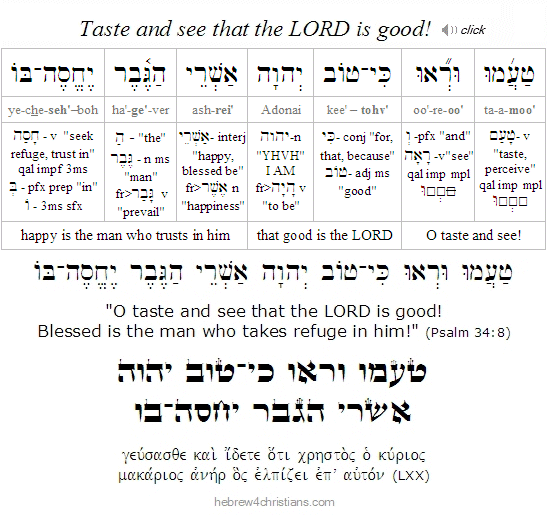 |
More Facebook Censorship...

07.30.21 (Av 21, 5781) Well it has finally come to this. Facebook has implemented full-on censorship algorithms that rival those found in North Korea and Communist China today. Their latest strategy is to suppress posts they don't like or approve of (for God knows what reason) by flagging them with an ominous warning claiming the post promotes "false information about Covid 19." After being so flagged by the Facebook censors, the post can no longer be shared on Facebook without attaching a warning saying that the post contains dangerously misleading information. The irony is that the censored posts I have shared have said nothing about Covid or vaccines at all. Simply put, Facebook is an agent of a new tyranny that is restricting civil liberties and the freedom to share our thoughts with one another. Indeed Facebook appears to particularly censor Christian ministries and those who share truth from the Scriptures. This is a dangerous and evil development, and I am earnestly praying that the LORD God of Israel will intervene in this situation...
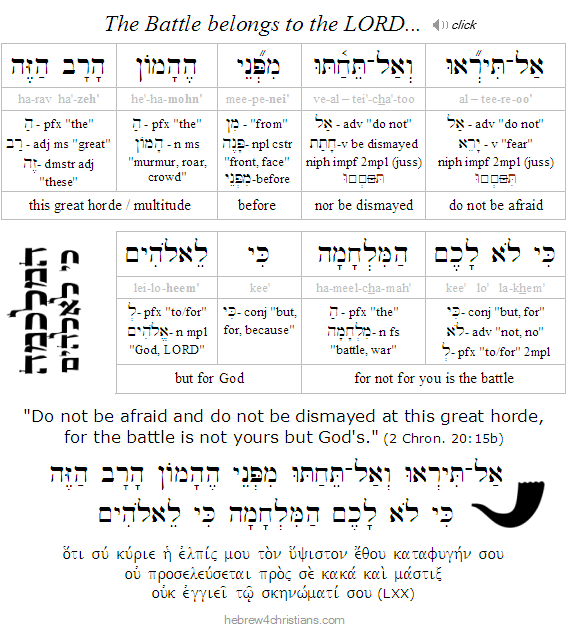 |
Note: As much as I am reluctant to do so, I might leave Facebook after 12 years of sharing there to set up another online forum or discussion board for Hebrew for Christians. Please pray for wisdom regarding this matter, friends. Thank you so much. - John
Wounds of Loneliness...

07.29.21 (Av 20, 5781) The late Henri Nouwen said that there are two great fears (or wounds) that we all face. The first is the fear that we were not wanted at the time of our birth into this world, and the second is that we will not be wanted at the time of our death. "Not being welcome is your greatest fear. It connects with your birth fear, your fear of not being welcome in this life, and your death fear, your fear of not being welcome in the life after this. It is the deep-seated fear that it would have been better if you had not lived" (Inner Voice of Love). If you carry a wound of abandonment within your heart - if you live in dread over your worth as a human being, seriously wondering whether it would have been better had you never been born, then you know the taste of hell itself - the emotional prison of feeling lost, defective, rejected, shameful - unable to love or to be loved...
Is not the lament of the lonely heart to find a sense of welcome, or acceptance, or peace within? Is it not the heart's cry for connection? Yet even the very gospel message cannot make traction within a heart lost to its own shame... Therefore the miracle of salvation is profoundly connected with faith that you are loved and lovable - despite yourself - and that this love derives from the core of all that truly exists. Is this not "home" in the spiritual sense? Is this not "Zion, the perfection of holiness?" That God prepares a table for you in the presence of your enemies, yea, those enemies of self-rejection, abandonment, fear, and shame? And that there - in the midst of your lost and forlorn condition you are found, treasured, and celebrated? Is not that "place" God's very heart - Jesus dying upon the cross, gasping for each breath - knowing everything about you and loving you anyway?
In our Torah reading this week (Eikev), Moses asks us to "soften our hearts" by remembering that we are beloved of God (Deut. 10:12-16). He reminds us that the though Lord is "the God of gods" (אֱלהֵי הָאֱלהִים) - the power that transcends the gods of our idolatry (i.e., our fears, our disordered attachments, our shame), and the "Lord of lords" (אֲדנֵי הָאֲדנִים) - the Center and Authority of what is most real, he nevertheless cares for the lowly orphan and the grieving widow - he reaches out to the needy and the abandoned - and he desires to console the "stranger," the one shattered of heart, who has no sense of belonging, no pride of tribe, nor place to lay his head (see Deut. 10:17-18). God cares about those who are lost, hurting, and alone: He came to save all such from their despair.
But how does God reach the bound soul that walks alone among the tombs, cutting himself in his torment? How can he heal the deep trauma, the disassociated and broken of heart? How else but by the miracle of his intervention, quickening an otherwise numb and dead heart to come alive, to breathe in hope, and to begin to believe that - despite everything that has happened - he was wanted all along, from the very beginning, and that the wound of his sorrow was given so that he could find out who he really is and where he really belongs... The wound you were given is part of your story, and healing comes from accepting God's love for you -- and understanding how the Lord goes through the wound with you and for you...
Life in this fallen world is likened to a vapor or a passing shadow (Psalm 144:4). Nothing abides; good things here never last; and we labor under the unmentionable anxiety that death will separate us from everyone and everything we love. However, death is not the end for the us, for "love is stronger than death, passion fiercer than the grave; its flashes are flashes of fire, the very flame of the LORD" (Song 8:6).
"What will death be like?" they asked the Master. "It will be as if a veil is ripped apart and you will say in wonder, "So it was you all along!" (De Mello). Death is a most poignant homecoming, a place of joyful welcome, wherein all shall be well for ever. The righteous have an everlasting foundation in the faithful heart of God. Faith in the LORD believes that a single supreme, all-knowing, all-powerful and benevolent spiritual Power directs all things, and that Messiah is the beginning, middle, and end of all conscious meaning, truth, and substance, as it is written: כִּי הַכּל מִיָּדוֹ הַכּל בּוֹ וְהַכּל לוֹ הוּא, "For from him and through him and to him are all things" (Rom. 11:36). A life of faith in the one true God imparts the blessing of shalom (inner peace) and assures the heart that all shall be made well by the love of God. So then, "if we live, we live to the Lord, and if we die, we die to the Lord. So then, whether we live or whether we die, we belong to the Lord" (Rom. 14:8). For the believer in Messiah, death does not define us, and indeed, we trust that God will attend to us in the moment of our utmost extremity (John 5:24; 11:25-26). If we desire eternal life with all our hearts and remember our end before the Lord, we will be free of the fear of death. Amen v'amen.
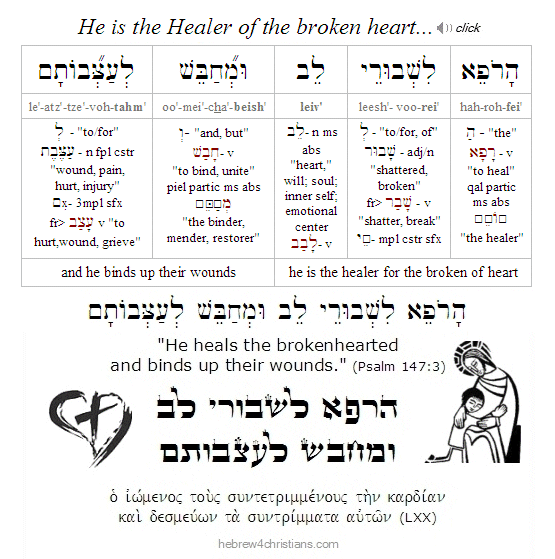 |
Opening your Heart...

07.29.21 (Av 20, 5781) Our Torah reading for this week (i.e., parashat Eikev) appeals for us to let go of our hurt and anger: "Circumcise (i.e., cut away) the barriers to your heart, and be no longer unresponsive to love" (Deut. 10:16). The metaphor of a "circumcised heart" (ברית מילה של הלב) symbolizes cutting away the outer covering of the heart so that it is "opened up" to feel once again. God wants us to let go of "hard feelings" so we can experience compassion (i.e., com+passion: "feeling-with") and sympathy for other people... Heart circumcision represents a radical turning away from the insular realm of the self toward the emotional realm of others and God. When our hearts are open, we are able to receive the flow of the Spirit of God and obey the "law of the Messiah" (תּוֹרַת הַמָּשִׁיחַ) to bear one another's burdens (Gal. 6:2).
וּמַלְתֶּם אֵת עָרְלַת לְבַבְכֶם
וְעָרְפְּכֶם לא תַקְשׁוּ עוֹד
oo·mal·tem · et · ohr·lat · le·vav·khem
ve·ohr·pe·khem · lo · tak·shoo · ohd

"Cut away the barriers to your heart,
and be no longer unresponsive to love."
(Deut. 10:16)

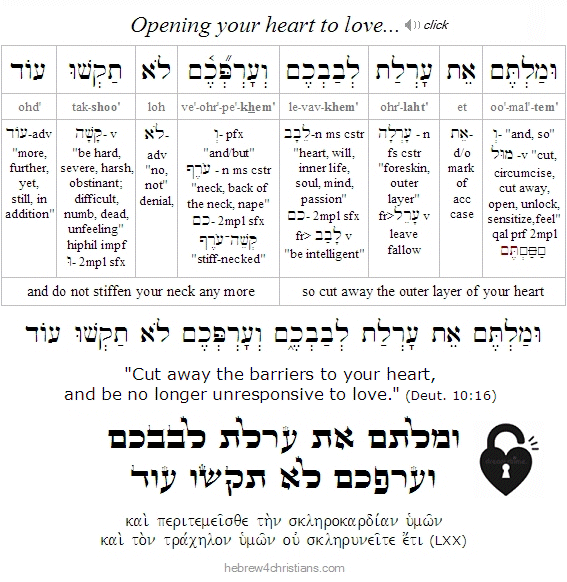
Physical circumcision represents a sign or mark of inclusion; it is a token that you are one of God's family, a Jew, though it is only a sign or token. Spiritual circumcision is an inner operation of the heart that marks you a true child of heaven. It is about your identity and purpose. Therefore we see the paradox that some physical Jews are not spiritual Jews, and some spiritual Jews are not physical Jews (though some are both), as the Apostle Paul said: For no one is a Jew who is merely one outwardly, nor is circumcision outward and physical. But a Jew is one inwardly, and circumcision is a matter of the heart, by the Spirit (ἐν πνεύματι), not by the letter. His praise is not from man but from God (Rom. 2:28-29).
Metaphorically speaking, a heart that is insensitive, indifferent, unfeeling, and callous toward the needs of others is "hard" or "uncircumcised." Often such hardness comes as a result of living in a fallen world. Many wounded people live with "scar tissue" that surrounds their heart, making them feel numb and unwilling to open up and trust others. Their affections have become disordered and they rationalize blaming others or seeking various forms of entitlement. "Turning off your heart" can mean suppressing any positive regard for others (empathy) while nurturing anger and self-righteousness, or it may mean withdrawing from others as a lifeless shell (both approaches vainly attempt to defend the heart from hurt). Although Yeshua always showed great compassion, especially to the wounded and broken in spirit (Isa. 42:3), He regularly condemned the "hardness of heart" (called "sclero-cardia," σκληροκαρδία) of those who resisted his message of healing and love.
A hard heart is closed off and impermeable to love from others, and especially from God. It is a "difficult" (קָשֶׁה) heart, inflexible and even cruel. Scripture uses various images to picture this condition, including a "heart of stone" (Ezek. 36:26, Zech. 7:12), an "uncircumcised heart" (Jer. 9:26), a "stiff neck" (Deut. 31:27), and so on. Stubbornness is really a form of idolatry, an exaltation of self-will that refuses to surrender to God. If you are wounded and afraid to open your heart in trust to others, ask God for healing...
 |
Idolatry and Rage...

[ The following is related to our Torah reading for this week, parashat Eikev.... ]
07.28.21 (Av 19, 5781) We are warned not to destroy ourselves by allowing bitterness, anger, or fear to consume our hearts. In our Torah this week (Eikev) we read: "And you shall not bring an abominable thing (תּוֹעֵבָה) into your house and become devoted to destruction like it" (Deut. 7:26). The sages of the Mishnah said that yielding to rage is equivalent to idol worship and should never be brought into the home. Indeed, rage is linked with avodah zarah - idolatry - because it exalts the ego and claims that the Lord can't (or won't) help you in your moment of testing or need. The Scriptures are clear, however, that "there is no test given to you that you cannot handle with God's help" (1 Cor. 10:13), and we are invited to come boldly before the Divine Presence to find just such help in our time of need (Heb. 4:16). Believing that you can't overcome your fear or anger problem is therefore a form of idolatry since it assumes that you are enslaved to a self-destructive power greater than yourself, and that you owe its allegiance by obeying its impulses. However it is written: Lo yiheyeh vekha el zar (לא־יִהְיֶה בְךָ אֵל זָר) -- "there shall be no foreign god within you" (Psalm 81:9), which means that we must expressly deny the ego's demand to have its will be done. Being full of a sense of self-importance (or even powerlessness) is to be ensnared by vanity and to have a foreign god "within you." God and human arrogance cannot coexist - since the inner world of the arrogant person denies God's rightful place as King. As it is written in our Scriptures: "The wrath of man (קֶצֶף אָדָם) does not work the righteousness of God" (James 1:20). God will indeed help us if we ask according to his will (1 John 5:14-15). Thank you, God. "Blessed is the LORD who delivers us from self-destruction." Amen.
בָּרוּך יהוה שֶׁמַצִיל אוֹתנוּ מֵהַרֵס עַצְמִי
bah·rookh · Adonai · she·ma·tzeel
oh·tah'-noo · mei'·ha-reis · atz·mee

"Blessed is the LORD who delivers us from self-destruction."
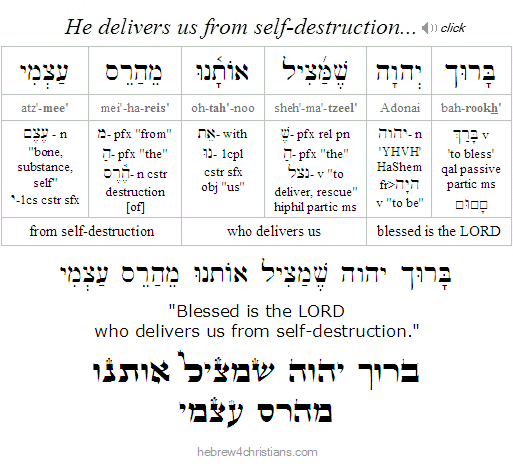
Mehareis Atzmi Blessing (pdf)
Heeding the Call of Hope...
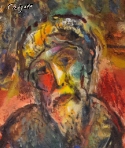
07.28.21 (Av 19, 5781) The only way out of the painful ambiguity of life is to hear a message from the higher world, the Heavenly Voice, that brings hope to our aching and troubled hearts: "Faith comes by hearing the word of Messiah - ῥῆμα Χριστοῦ" (Rom. 10:17). And yet what is the meaning of this message if it is not that all shall be made well by heaven's hand? There is hope, there is hope, and all your fears will one day be cast into outer darkness, swallowed up by God's unending comfort... "Go into all the world and make students (תַּלְמִידִים) of all nations" (Matt 28:19), and that means sharing the hope that what makes us sick - our depravity and despair - has been healed by Yeshua, and that we escape the gravity of our own fallenness if we accept his invitation to receive life in him. "For you will light my lamp; the LORD my God will outshine my darkness."
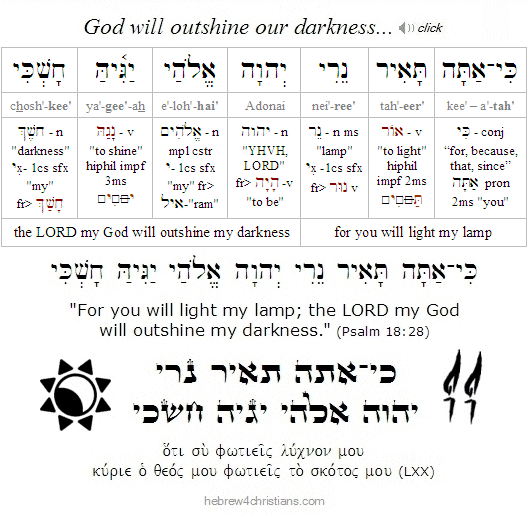 |
Exercising faith means actively listening to the Eternal Voice, the Word of the LORD that calls out in love in search of your heart's trust... To have faith means esteeming God's love for you, that is, understanding that you truly matter to God, and that the Divine Voice calls out your name, too.... Living in faith means consciously accepting that you are accepted by God's love and grace. Trusting God means that you bear ambiguity, heartache, and darkness, yet you still allow hope to enlighten your way.
The Rizhiner Rebbe once said, "Let your light penetrate the darkness until the darkness itself becomes the light and there is no longer a division between the two. As it is written, "And there was evening and there was morning, one day." Yea, the darkness and the light are both alike unto Thee, O LORD, as it is written: "If I say, "Surely the darkness shall cover me, and the light about me be night, even the darkness is not dark to you; the night is bright as the day, for darkness is as light with you" (Psalm 139:11-12).
We walk by faith, not by sight - by hearing the Word of God, heeding what the Spirit of God is saying to the heart (2 Cor. 5:7). For now we "see through a glass darkly," which literally means "in a riddle" (ἐν αἰνίγματι). A riddle is an analogy given through some resemblance to the truth, though quite often the correspondences are puzzling and even obscure. Hence, "seeing through a glass darkly" means perceiving obscurely or imperfectly, looking "through" something else instead of directly apprehending reality. This is contrasted with the "face to face" (פָּנִים אֶל־פָּנִים) vision and clarity given in the world to come, when our knowledge will be clear and distinct, and the truth of God will no longer be hidden. Being "face to face" with reality means being free of the riddles, the analogies, the semblances, etc., which cause us to languish in uncertainty... Now we know in part, but then shall we know in whole.
Despite the obscurity of life in this temporary age, we are encouraged not to lose heart, since though our outer self is wasting away, our inner self is being raised into newness (ἀνακαινόω) day by day (2 Cor. 4:16). "For our light and transient troubles are achieving for us an everlasting glory whose weight is beyond description, because we are not looking at what can be seen but at what cannot be seen. For what can be seen is temporary, but what cannot be seen is eternal" (2 Cor. 4:17).
Therefore walk "by faith" as if the invisible is indeed visible. Stay strong and keep hope, for it is through hope that we are saved (Rom. 8:24). Faith is the conviction (ἔλεγχος) of things unseen (Heb. 11:1). Do not be seduced by mere appearances; do not allow yourself to be bewitched into thinking that this world could ever be your home. No, we are strangers and pilgrims here; we are on the journey to the reach "the City of Living God, to heavenly Jerusalem, to the assembly of the firstborn who are enrolled in heaven" (Heb. 12:22-23). Therefore do not lose heart. Stay focused and keep to the narrow path. Set your affections on things above since your real life is "hidden with God" (Col. 3:1-4). Do not yield to the temptation of despair. Look beyond the "giants of the land" and reckon them as already fallen. Keep pressing on. Chazak, chazak, ve-nit chazek - "Be strong, be strong, and let us be strengthened!" Fight the good fight of the faith. May the LORD our God help you take hold of the eternal life to which you were called (1 Tim. 6:12). Amen.
 |
Connecting with God...

[ The following is related to our Torah reading for this week, parashat Eikev.... ]
07.28.21 (Av 19, 5781) From our Torah portion this week (i.e., parashat Eikev) we read: "And now, Israel, what does the LORD your God require of you, but to fear the LORD your God, to walk in all his ways, to love him, to serve the LORD your God with all your heart and with all your soul, and to keep the commandments and statutes of the LORD, which I am commanding you today for your good?" (Deut. 10:12-13). Ultimately we must make the choice whether we will respect life or not, since that is the question set before us... In this present world, God "hides" so that people may seek him (Isa. 45:15; Matt. 13:10-15). The voice of conscience may be suppressed and the revelation of nature ignored; moreover, some things are perceived only if they are looked for in the right way, for instance, the Divine Presence is not apprehended apart from humility and reverence. We must "make room" for wonder; we must open the "eye of the heart" to see what is greater than our everyday vision. "It is good to look at the sky often, as this helps develop the awe of God." Indeed the word for fear, yirah (יִרְאָה), is connected with the word for seeing, ra'ah (רָאָה). When we really see life as it is, we will be filled with wonder over the glory of it all. Every bush will be aflame with the Presence of God and the ground we walk upon shall suddenly be perceived as holy (Exod. 3:2-5). Nothing will seem small, trivial, or insignificant. In this sense, "fear and trembling" (φόβοv καὶ τρόμοv) before the LORD is a description of the inner awareness of the sanctity and eternal significance of life itself (Psalm 2:11, Phil. 2:12).
Connecting with God is paradoxical. We find verses that teach both the fear of the Lord (i.e., his power), and others that teach the amazing love of the Lord (i.e., his grace). We are drawn to God in adoration, appreciation, wonder, and love, and yet we are compelled to shrink back because of His overwhelming power, glory, holiness, and radiance. Therefore we see "the disciple whom Jesus loved" both leaning on his chest but also falling on his face in "dreadful adoration" (John 13:23; Rev. 1:17). Only when these heart attitudes are combined is the heart balanced. But the fear of the Lord is primary (see Psalm 111:10; Prov. 1:7, 9:10), and when we walk in it, we are released from the common fears of men by apprehending a far surpassing power that overrules all things. Again, it is a paradox: if we fear lesser things we lose sight of the awe of God; but if we first revere God, we will lose sight of lesser fears.
In Jewish tradition, seeing the Presence of God in all things is called yirat ha-rommemnut (יִרְאַת הָרוֹמְמוּת), or the "Awe of the Exalted." We might get a sense of this reverential awe when we behold the canopy of stars in the night sky, or when we look down from atop a mountain peak, or when we catch site of a spectacular sunset. Or we might experience it during the birth of a baby or the death of a loved one... This sense of awe or "transcendent mystery" is also called yirat Adonai (יִרְאַת יְהוָה), the "fear of the Name." It presents a holy hush, a feeling that you are standing before something utterly wonderful, sacred, set apart, mysterious, and profoundly significant; it both attracts yet causes you to draw back...
Hebrew Lesson:
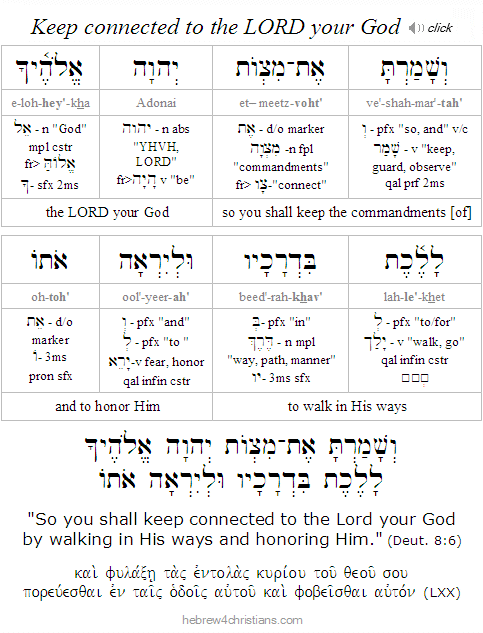 |
Always Here and Now...

[ The following is related to our Torah reading for this week, parashat Eikev.... ]
07.27.21 (Av 18, 5781) From our Torah portion this week (Eikev) we read: "And now, Israel, what does the LORD your God ask of you..?" (Deut. 10:12). This is the unending question for the heart of faith: it is always here and it is always "now." The midrash says that the word "and now" (וְעַתָּה) implies the "what" of repentance (תְּשׁוּבָה), turning to God in this hour, regardless of whatever sins you have committed in your past. True repentance turns you away from your sin to become present before God, wherever you might be...
Prophetic Listening...
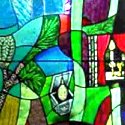
07.27.21 (Av 18, 5781) A verse from our Torah portion this week (i.e., Eikev) recalls Yeshua's words that "every scribe who has been trained for the kingdom of heaven is like a master of a house, who brings out of his treasure what is new and what is old" (Matt. 13:53). The esteemed Jewish commentator Rashi noted that the phrase often translated, "And it shall come to pass if you diligently hear" in Deut. 11:13, i.e., ve'hayah eem shamo'a teeshme'oo (וְהָיָה אִם־שָׁמעַ תִּשְׁמְעוּ), is grammatically puzzling, since the Hebrew literally reads "if you hear, you will hear," which suggests that as we listen attentively to the words of Torah, we will hear more, and we will encounter spiritual connections and applications that are new and ready for this hour. The early sages commented: "If you listen to the old, you will listen to the new" (Berachot 40a). Focusing our attention on the commandments even while in exile is likened to practice for the world to come, since then they will not be new to you when the final redemption appears. Happy are those who love the Torah. More light comes as we live in the truth (John 13:17). As Yeshua also sagaciously said: "For to the one who has, more will be given, and he will have an abundance, but from the one who has not, even what he has will be taken away" (Matt. 13:12).
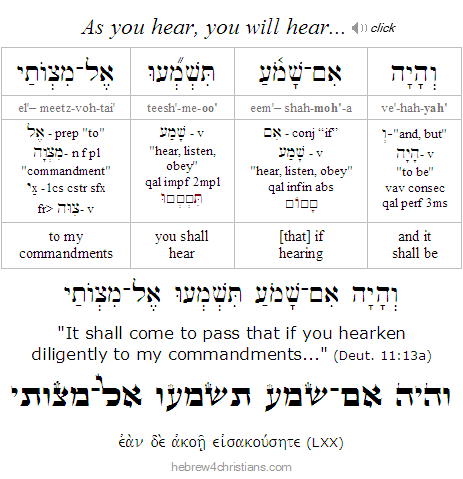 |
Alignment with Reality...

07.27.21 (Av 18, 5781) Just as grace is inaccessible for someone who refuses to be honest with himself, so is forgiveness. If a person refuses to confess the truth about his condition, salvation itself is impossible, since God literally cannot save the soul that denies its need for Him. Therefore the Scripture does not vainly declare: "Whoever conceals his transgressions will not prosper, but the one who confesses and forsakes them will find mercy" (Prov. 28:13).
A person who "conceals" his sin denies it, either by outright disavowal or by explaining it away by offering self-deceptive excuses. This person simply cannot prosper – in the spiritual sense of the word – because he is not living in reality... Indeed, his conscience is burdened with a "secret ban," an inner voice of condemnation that must be suppressed and squelched. It is only the person who comes to the light, who acknowledges the truth of his sin and who is anxious to be free of its effects, who will be shown mercy (i.e., rachamim (רַחֲמִים), which comes from the word rechem (רֶחֶם), "womb").
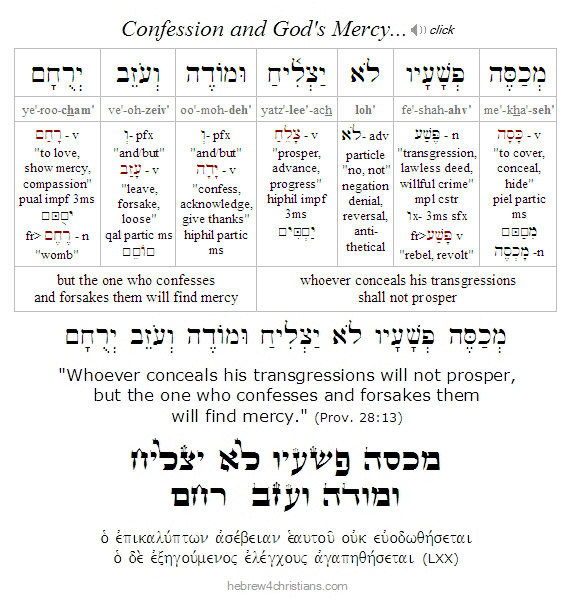 |
Note that God alone has the prerogative to cover or atone for sin, as an expression of His grace, but it is never fitting for someone to atone for his own sin in order to exonerate himself. God's anger over sin is not appeased when sin is minimized, dismissed, excused, or rationalized away (though the LORD delights when we overlook the offenses of others). This is because all sin is an offense against God and represents a breach of the relationship between the sinner and God. Your sin, in other words, hurts not only yourself and other people, but most significantly, it wounds the very heart of God Himself by causing a breach or separation in your relationship with Him. Therefore we see Yeshua forgiving others for sins they have committed against other people as if He were the offended party in the sin. As C.S. Lewis once wrote, "He told people that their sins were forgiven, and never waited to consult all the other people whom their sins had undoubtedly injured. He unhesitatingly behaved as if He was the party chiefly concerned, the person chiefly offended in all offenses. This makes sense only if He really was the God whose laws are broken and whose love is wounded in every sin" (Mere Christianity, 1952).
In this evil world, it may sometimes seem that crime "pays," but certainly not before the Divine Presence, and in the world to come, every word and deed will be fully accounted before the bar of God's justice and truth. But even in this world, the sinner is secretly haunted by his conscience; he is driven to madness, hidden despair, and lives in dread and anxiety over the truth he conceals... It has been said that the problem with "getting away with it" is that you indeed "get away with it," meaning that your sin will follow you as doggedly as your own shadow in this world... Ultimately sin is a form of cowardice, since it hides in fear from the light of truth. Unconfessed sin leads to anxiety, paranoia, and weakness of the soul...
I have mentioned that one of the reasons God announced the Ten Commandments was because it was His way of saying, "I know who you really are, I see you..." This is why the people drew back in terror, because they realized that God saw the inner condition of their heart, exposed it, and shined the light of moral truth upon it. Nonetheless it is a great and ongoing credit to the Jewish people that they were willing to receive the revelation at Sinai, since it demonstrates that they were genuinely willing to be honest with themselves. Despite their many subsequent failures, they still revered the truth of God's Torah and meticulously preserved the revelation for future generations (Rom. 3:1-2).
Again, a person who denies or excuses his sin simply cannot prosper – in the spiritual sense of the word – because he refuses to live in reality... Confessing the truth about yourself – owning your behavior, taking personal responsibility, refusing to blame others, and so on, leads to real prosperity, spiritual blessing and true inner peace.
 |
The Light of Truth...

07.27.21 (Av 18, 5781) In the Gospel of John it is recorded that Yeshua said, "I am the way, the truth, and the life" (i.e., ᾽Εγώ εἰμι ἡ ὁδὸς καὶ ἡ ἀλήθεια καὶ ἡ ζωή). The Greek word translated "truth" in this verse is aletheia (ἀλήθεια), a compound word formed from an alpha prefix (α-) meaning "not," and lethei (λήθη), meaning "forgetfulness." (In Greek mythology, the "waters of Lethe" induced a state of oblivion or forgetfulness.) Truth is therefore a kind of "remembering" something forgotten, or a recollecting of what is essentially real. Etymologically, the word aletheia suggests that truth is also "unforgettable" (i.e., not lethei), that is, it has its own inherent and irresistible "witness" to reality. In that sense light is a metaphor for truth: "The light shines in the darkness, and the darkness has not overcome it" (John 1:5). People may lie to themselves, but ultimately truth has the final word.
Greek scholars note that the word lethei itself is derived from the verb lanthano (λανθάνω), which means "to be hidden," so the general idea is that a-letheia (i.e., truth) is non-concealment, non-hiddenness, or (put positively) revelation or disclosure. Thus the word of Yeshua - His message, logos (λόγος), revelation, and presence - is both "unforgettable" and irrepressible. Yeshua is the Unforgettable One that has been manifest as the express Word of God (דְּבַר הָאֱלהִים). Yeshua is the Light of the world (אוֹר הָעוֹלָם) and the one who gives us the "light of life" (John 8:12). Though God's message can be supressed by evil and darkened thinking, the truth is regarded as self-evident and full of intuitive validation (see Rom. 1:18-21).
The Hebrew word for truth (i.e., emet: אֱמֶת) comes from a verb (aman) that means to "support" or "make firm." There are a number of derived nouns that connote the sense of reliability or assurance (e.g., pillars of support). The noun emunah (i.e, אֱמוּנָה, "faithfulness" or "trustworthiness") comes from this root, as does the word for the "faithful ones" (אֱמוּנִים) who are "established" in God's way (Psalm 12:1). A play on words regarding truth occurs in the prophet Isaiah: אִם לא תַאֲמִינוּ כִּי לא תֵאָמֵנוּ / im lo ta'aminu, ki lo tei'amenu: "If you are not firm in faith, you will not be firm at all" (Isa. 7:9; see Faith Establishes the Sign). Without trust in the LORD, there is no stability... Truth is something trustworthy, reliable, firm, or sure. In colloquial English, for example, this idea is conveyed when we say, "He's a true friend...", indicating that the loyalty and love of the person is certain. The familiar word "amen" likewise comes from this root. Speaking the truth (dibbur emet) is considered foundational to moral life: "Speak the truth (דַּבְּרוּ אֱמֶת) to one another; render true and perfect justice in your gates" (Zech. 8:16). Yeshua repeatedly said, "Amen, Amen I say to you...." throughout his teaching ministry to stress the reliability and certainty of God's truth (Matt. 5:18, 26, etc.). Indeed, Yeshua is called "the Amen, the faithful and true witness" (Rev. 3:14).
The relationship between the Hebrew and the Greek ideas seems to be that the revelation of God - the aletheia - is reliable and strong. The source for all truth in the universe is found in the Person and character of the God of Israel, blessed be He... The self-disclosure of the LORD is both unforgettable - both in the factual and moral sense - as well as entirely trustworthy. Aletheia implies that truth is something that should never be forgotten, and therefore we are regularly admonished not to "forget" the LORD (Deut. 8:11, Psalm 103:2), to "remember" his covenants, to "keep" his ways, to "guard" His precepts, and so on.
Hebrew Lesson:
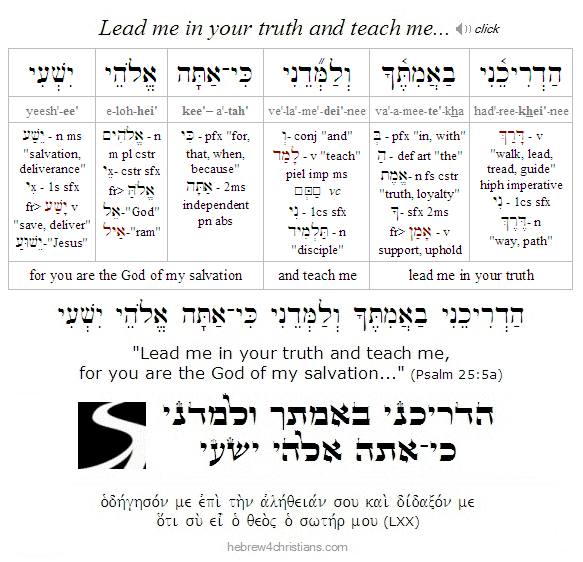 |
Remembering the LORD...

07.26.21 (Av 17, 5781) "Only watch yourself, and watch your soul diligently, lest you forget..." (Deut. 4:9a; Deut. 8:11). We are in constant and great need to remember the greatness of God, for when we forget this central truth, we lose sight of who we are and why we exist... Therefore we are earnestly admonished to guard our hearts with all diligence, for from the heart flows the streams of life (Prov. 4:23). Forgetfulness leads to apathy and indulgent thinking - a sure recipe for idolatry and despair... On the other hand, as we "practice the presence" of God, we encounter daily miracles and realize that our life comes from above: "In Him we live and move and have our being" (Acts 17:28). If we do not know God in all our ways, we lose touch with the purpose for our lives; if we close our eyes to the wonders of life, we forget both their source and the source of all that exists...
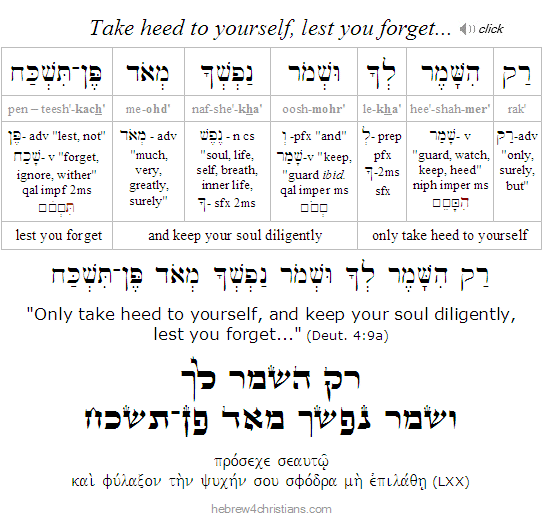 |
C.S. Lewis related that during his college years he "played with" philosophy as way to show off or gain prestige among his fellow students. One day, however, he overheard a conversation between a Christian acquaintance who was discussing Plato's thinking with another person. As he listened, it suddenly dawned on him that they were discussing philosophy as if it really mattered, as if it could somehow change their lives. Questions about reality, truth, beauty, justice, and so on suddenly became weighty and existential - matters of life and death - and that realization marked a key point in his conversion to Christianity.
Your Reason for Being...
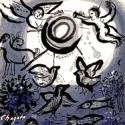
07.26.21 (Av 17, 5781) Your faith must mean something to you if it is to mean anything to God, for "without faith it is impossible to please him" (Heb. 11:6). There must be agreement between your heart and what is real. The LORD must be your "ultimate concern," the passion of your heart, your desperate treasure, or he will be as nothing to you (Matt. 13:12; Luke 8:18). God's Name is Savior, Healer, Redeemer - the One who is everlastingly interested in your life (Heb. 4:13). As the late Abraham Heschel once remarked, "God is of no importance unless He is of supreme importance." Likewise King David said, echat sha'alti me'et Adonai, otah avakesh: "One thing I ask of the Lord; that is what I will seek" (Psalm 27:4). David asked for one thing – not many things. He did not come with a litany of requests. He was not double minded. He had focus. As Kierkegaard said, "purity of the heart is to will one thing." David sought the best he could find. He wanted the "pearl of great price."
Hebrew Lesson:
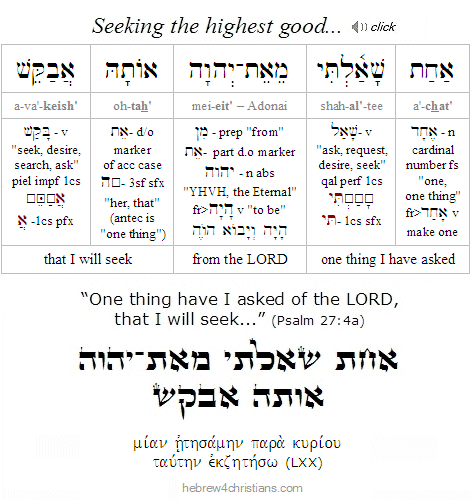 |
The most important thing in life is to decide what is the most important thing in life - and then to act accordingly. Time is short for all of us, and it is more vital than ever to find healing for our woundedness. We have to quit pretending to be what we aren't and learn to be honest and vulnerable. Spirituality without honesty and humility is a sham. If you don't know how to begin, then begin there - by knowing your confusion, your need for the miracle of God's help and direction... For instance, if you don't know how to really love, then confess your heart's condition and pray for the miracle you need. It is a great mercy to be broken, in desperate need of heart, afflicted, tested, and in mourning. As it is written, "God has compassion for the lowly and broken, and saves the souls of the bankrupt ones."
יָחס עַל־דַּל וְאֶבְיוֹן
וְנַפְשׁוֹת אֶבְיוֹנִים יוֹשִׁיעַ
ya·chos · al-dahl · ve·ev·yohn
ve·naf·shoht · ev·yo·neem · yo·shee'·a

"He has compassion on the lowly and broken,
and saves the souls of the powerless." (Psalm 72:13)

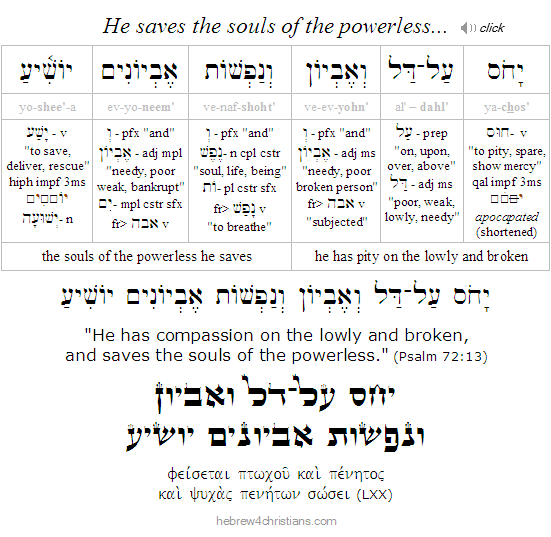
When God said, "Let there be light, and there was light" (Gen. 1:3), He seemed to put on light as a robe of the Divine Majesty and Kingship: He wrapped Himself with radiance as a tallit gadol... Da lifnei mi attah omed (דַּע לִפְנֵי מִי אַתָּה עוֹמֵד) – "Know before whom you stand." The whole earth is lit up with God's glory, and every bush of the field is aflame before us -- if we have eyes to see (Isa. 6:3). May it please the LORD to open our spiritual eyes so that we can behold more of His glory and majesty in this hour... Amen.
Danger of Forgetfulness...
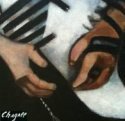
[ The following entry concerns this week's Torah reading, parashat Eikev... ]
07.26.21 (Av 17, 5781) The sages note: "Great is the power of forgetfulness, for it is also capable of causing you to forget the LORD your God, as it is written, "Guard yourself lest you forget the LORD your God by not keeping his commandments and his rules and his statutes, which I command you today" (Deut. 8:11).
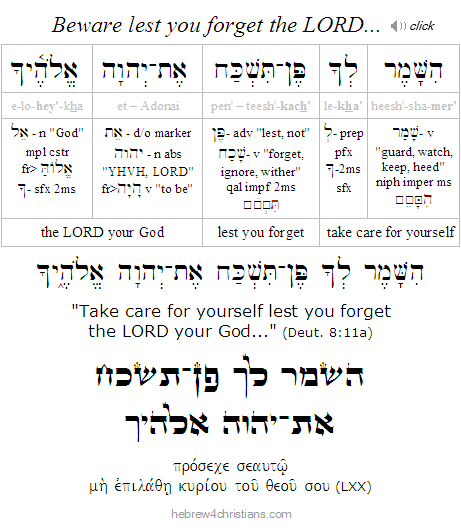 |
Note that the word "forget" in this verse comes from a root (shakhach: שָׁכַח) that means to ignore or "wither," thus recalling the words of Yeshua: "I am the vine; you are the branches. Whoever abides in me and I in him, he it is that bears much fruit, for apart from me you can do nothing. If anyone does not abide in me he is thrown away like a branch and withers (ξηραίνω); and the branches are gathered, thrown into the fire, and burned" (John 15:5-6). Therefore it is essential to earnestly strive to remember and to retain the truth that has been entrusted to you, as it is written: "Get wisdom; get insight; do not forget, and do not turn away from the words of my mouth" (Prov. 4:5).
קְנֵה חָכְמָה קְנֵה בִינָה
אַל־תִּשְׁכַּח וְאַל־תֵּט מֵאִמְרֵי־פִי
ke·neih · chokh·mah ke·neih · vee-nah
ahl-teesh-kach · ve·ahl-teit · mei·eem·rey·fee

"Get wisdom; gain insight; do not forget
and do not turn away from the words of my mouth.
(Prov. 4:5)

Believing in Love...

07.26.21 (Av 17, 5781) We read in our Torah portion for this week (i.e., parashat Eikev): "But now, Israel, what does the LORD your God ask from you ... but to love him with all your heart and with all your soul?" (Deut. 10:12). But how are we able to love God be'khol levavka (בְּכָל־לְבָבְךָ) – "with all our heart" – and be'khol nafshekha (וּבְכָל־נַפְשֶׁךָ) - "with all our soul," apart from healing of the brokenness that makes our hearts divided and sick? That is what the redemption from Egypt was about: we were personally chosen by God, redeemed by his grace, led out from from cruel bondage, only to be led into the desert, away from the world, where we slowly began to understand that we were valued, cared for, and beloved of God. We believed in the possibility of promise, of covenant... Only then could we hear the request from heaven: "Now love Me..." In other words, we can only truly love God by knowing we are beloved by God, and the invitation to love him is a response of his great passion for you (1 John 4:19). Accept that you are accepted in the heart of the Beloved (Eph. 1:4-6).
What the LORD asks from us is humanly impossible, since the human heart is unable to truly love and serve the LORD apart from intervening grace (Eph. 2:1-10). The real miracle of faith is found in a transformed heart. It is never a question of "willpower" or the "zeal" of man; no - it is never a question of what I can do but rather what God can do (John 1:13).
דרך־מצותיך ארוץ
כי תרחיב לבי
de'·rekh -meetz·vo·tey'·kha · a·rootz
kee · tar·cheev · lee·bee

"I will run the way of your commandments,
for you enlarge my understanding."
(Psalm 119:32)

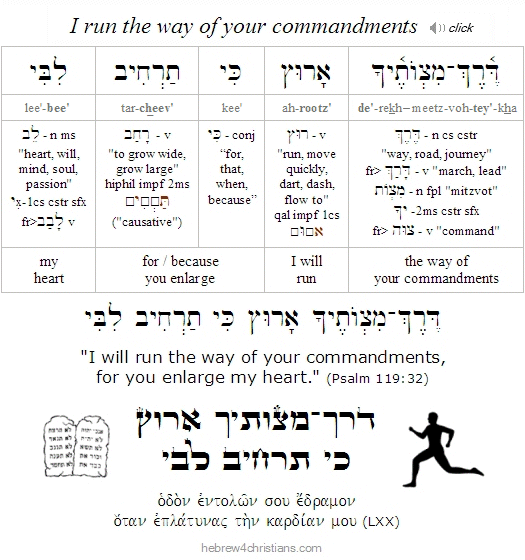 |
We love because He loves us (and we receive and accept that love). It is the strength of his love that keeps you, not the strength of your own... Nevertheless it seems to be the pattern of God's grace to bring affliction and trouble into our lives so that we will begin to seek the Presence of God (i.e., the "troubles of love"). We all are delivered from Egypt by the blood (i.e., the love) of God in the tribulation of hard exile. After all, how many of us came to know the LORD apart from the pain that comes from apprehending our own slavery to inner brokenness? Indeed it is a "severe mercy." Therefore our Savior says: "Truly, truly, I say to you, unless a grain of wheat falls into the earth and dies, it remains alone; but if it dies, it bears much fruit" (John 12:24). The hard "outer shell" of the seed must be broken so that the life of the Spirit can come through... The commandment to love the LORD, then, only finds its voice after we come to faith, after we experience the Holy Spirit's power, indeed, after we are made alive from the dead.
For more on this, see "Blessings and Brokenness."
 |
Parashat Eikev - עקב
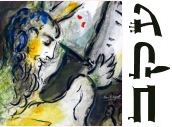
[ The Torah reading for this week is parashat Eikev, which is traditionally read during Shabbat Va'tomer, the second "Sabbath of Consolation" after Tishah B'Av.... ]
07.25.21 (Av 16, 5781) In our Torah reading for this week (i.e., parashat Eikev), Moses continues his farewell address to Israel by saying, "And because (עֵקֶב) you will listen to these rules and keep and do them, the LORD your God will keep with you the covenant and the love that he swore to your fathers" (Deut. 7:12). Note that the word eikev (עֵקֶב), often translated "because," literally means "heel," which recalls Jacob (יעקב) the "heel-holder" who wrestled with the pain of his past to learn to bear the name Israel (יִשְׂרָאֵל), the "prince of God" (Gen. 32:28)... And like Jacob, we must grapple to believe that the covenant of God's love and acceptance is for us, too...
The Sassover rebbe interpreted the opening verse of our Torah portion, "And because you will listen..." (וְהָיָה עֵקֶב תִּשְׁמְעוּן) as, "and it shall be when your heel is ready to take a step, you will listen to your heart." This is the step of faith. As you begin to walk with God, you will come to know yourself as a child of the great King. Likewise regarding the related verse in the Torah, "Because Abraham heard my voice" (עֵקֶב אֲשֶׁר־שָׁמַע אַבְרָהָם בְּקלִי), the sages read, "Abraham heard the word 'down to his heel'" (Gen. 26:5). Like Abraham, we will hear God's voice as we walk with him by faith...
Hebrew Lesson:
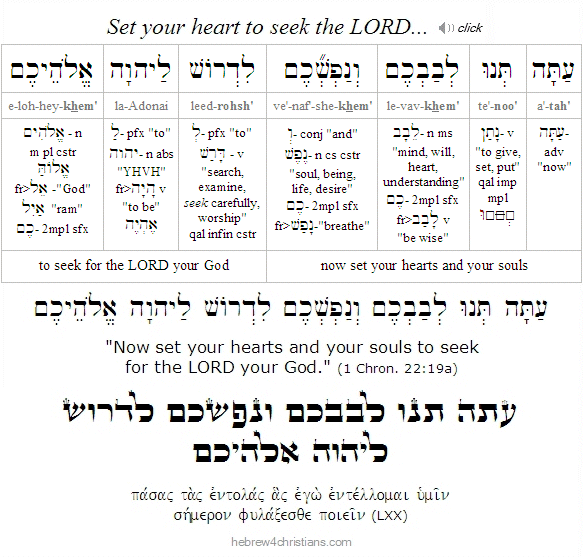 |
The portion begins: "ve'hayah eikev..." (Deut. 7:12). Here translators differ about how to understand the Hebrew. The JPS version, for instance, renders this as "and if you listen," whereas others render it as, "and because you listen..." The former translation makes the blessing seem conditional upon obedience, whereas the latter reading affirms the obedience that leads to blessing... The Hebrew word eikev (i.e., עקב, "heel," "step"), however, refers to action, and therefore it may be regarded as a prophecy expressing faith that the blessing which God swore on oath will be fulfilled. May it be so for us, chaverim...
Fear thou not...

07.23.21 (Av 14, 5781) Most of us understand that loving God is our essential obligation, the end or "goal" of all the other commandments, the very reason why God has spoken and why we exist. Yeshua plainly taught that this was the point of "the Torah and the prophets," the rest being commentary (Matt. 7:12, Matt. 22:36-40). However, while love is our greatest duty - the yoke of heaven - you might be surprised to learn that the most frequent commandment is simply al-tirah, "Be not afraid." Over and over again in the Scriptures we hear the LORD saying to those who trust in Him, al tira, "be not afraid."
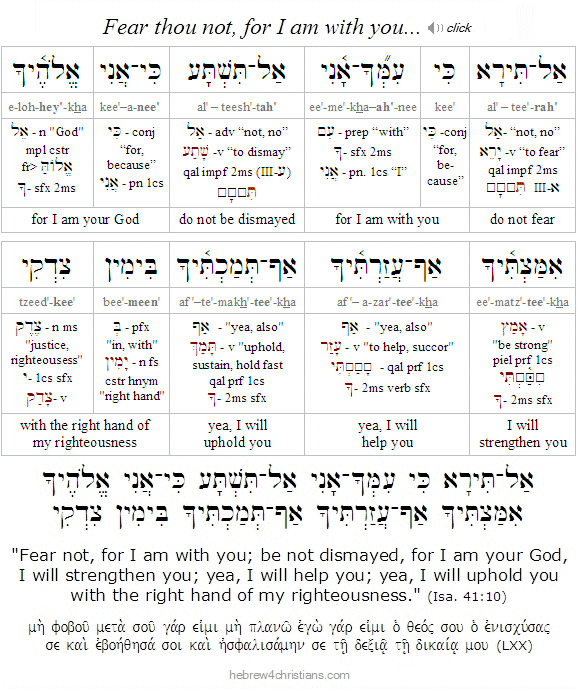 |
This is a word for the exiles of every age: Be not afraid - al-tirah – not of man, nor of war, nor of tribulation, nor even of death itself (Rom. 8:35-39). If God be for us, who can be against us? Indeed, Yeshua came to die to destroy the power of death "and to release all those who through fear of death were subject to lifelong slavery" (Heb. 2:14-15). The resurrection of the Messiah is the focal point of history - not the "dust of death." Death does not have the final word. Indeed, because Yeshua is alive, we also shall live (John 14:19). Because of Yeshua's victory, we can now live without fear: al-tirah, "Be not afraid, it is I." "There is no fear in God's perfect love," as the Apostle John wrote (1 John 4:18). If we love God because He first loved us (1 John 4:19), then we find courage because of the heart He imparts to us... God will uphold you – even in the trials of your faith.
Of course this doesn't mean that we should pretend that evil doesn't exist or that there's no real danger in this world. No, the Scriptures are clear that there are spiritual enemies in the world and we are engaged in a genuine spiritual war (1 Pet. 5:8-9; Eph. 6:10-18). Indeed every day the media attempts to frighten us by broadcasting lies and fearmongering propaganda. We must fight these messages of fear by remembering the truth and promises of God; we must never fear mere men but rather the LORD our God, who is our Maker, our King, and our Redeemer. We must train our minds to see beyond mere appearances, to ignore the messages of this dark world, and to look for God's Presence in everything.
Hebrew Lesson:
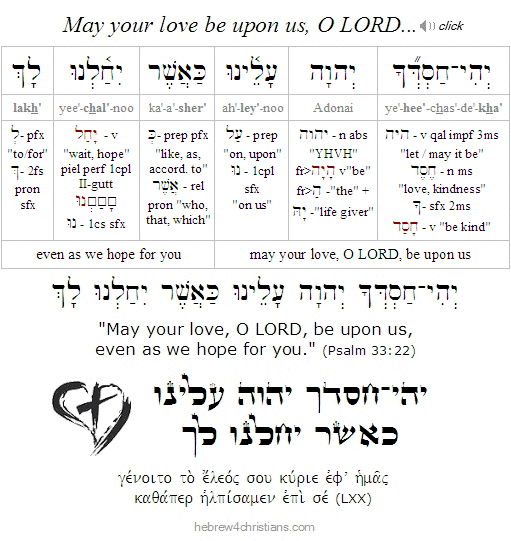 |
We must trust in the LORD and His care for our lives, which always comes "as we hope" in Him... May it please God to impart to each us the courage that comes from Heaven itself. May He help us not to live in fear, but rather to walk in faith, full of confidence. So remember: al-tirah, "be not afraid!" Let us be strong and be strengthened in Yeshua our King.
Comfort and Hope...

07.23.21 (Av 14, 5781) From this week's Torah (i.e., parashat Va'etchanan) we read: "if you seek for the LORD your God from there, you will find him, if you search for him with all your heart (בְּכָל־לְבָבְךָ) and with all your soul" (Deut. 4:29). From where do we search, from what place, except while we are in exile, after hardship, testing, and tribulation? If you seek for the LORD your God from there - in the midst of your exile, in the midst of your heart's cry - you will find him there, in your heart. This message is a prophecy, so that even after testing befalls you, in the end you will belong to the LORD and will hear his voice.
"Where is God to be found?" asks the Kotzker Rebbe, but "in the place where He is given entry!" As the Apostle Paul wrote, "The word is near you, in your mouth and in your heart" (that is, the word of faith that we proclaim); because, if you confess with your mouth that Yeshua is LORD and believe in your heart that God raised him from the dead, you will be saved. For with the heart one believes and is justified, and with the mouth one confesses and is saved. For the Scripture says, "Everyone who believes in Him will not be put to shame." For there is no distinction between Jew and Greek; for the same LORD is LORD of all, bestowing his riches on all who call on him. For "everyone who calls on the name of the LORD will be saved" (Rom. 10:8-13). Even in the face of the tribulations and distresses we may encounter in this world, the lovingkindess (chesed) of the Lord is always present for those who look to Him in trust (Lam. 3:22-23).
Hebrew Lesson:
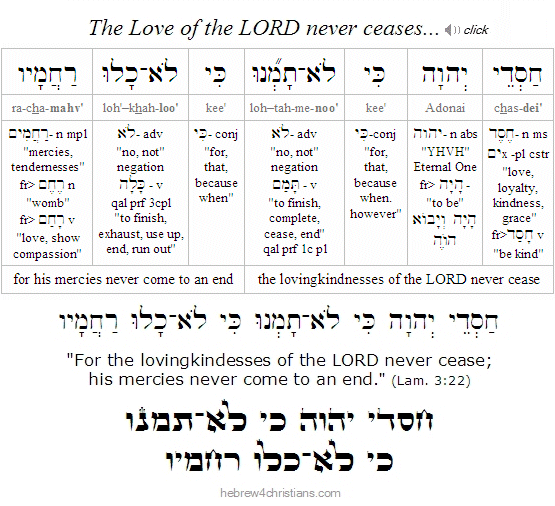 |
The Seeking Shepherd...

07.23.21 (Av 14, 5781) "Those who are well have no need of a physician, but those who are sick" (Matt. 9:12). Even though we are weak, sickly, broken, and sinful people, we must never lose hope and begin to fear that we are worthless in the eyes of heaven... Indeed, our infirmities are often a blessing in disguise, a gift that reveals our need... If you are sinful and sick, you are invited to come before the Master for life and rescue from the power of sin. Take your place among the lepers, the tax collectors, the outcasts... you will never hear Him criticize you or shame you for sincerely coming to Him for healing of your sinful state... "For the Son of Man came to seek and to save the lost" (Luke 19:10). Yeshua is the Good Shepherd (הָרעֶה הַטּוֹב) who leaves his flock of 99 sheep in order to find the one sheep who is lost (Matt. 18:12-14). He is always like that – He is always seeking and saving the lost sinner; He is always offering life and healing to those who have been made sick with the plague of sin. Thank God we have a Savior who seeks us out in our desperate need!
Hebrew Lesson:
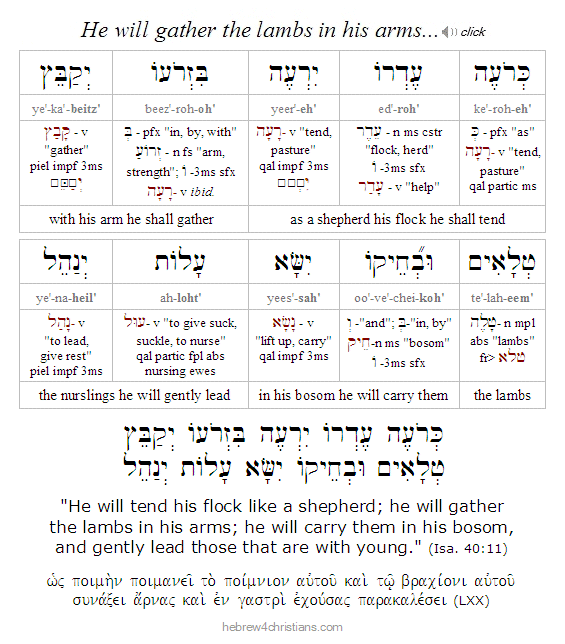 |
King David wrote, "You have given those who fear you a banner (נֵּס לְהִתְנוֹסֵס) for the sake of the truth" (Psalm 60:4), which Rashi interprets as, "You have given hardships and suffering to those who fear you to elevate them in the way." Indeed the word nes (נֵּס) can mean "banner" (as on the mast of a ship), a "sign" (or miracle), or a "test" (nisayon). God tests those who fear Him in order to help them become a miraculous sign to the world at large. Ultimately, the sign or miracle is the gift of Messiah's suffering on our behalf and His resurrection for our justification (Isa. 11:10). Even in the face of our enemies who have breached the land, we have the promise of victory in Adonai Nissi (יְהוָה נִסִּי), God my Miracle.
May you, broken and contrite one, hear the word of His hope calling out for your soul... He is your Shepherd, your Healer, and your Miracle. May you come beneath His banner of truth and love to find eternal refuge.... Amen.
The Heart of Love...
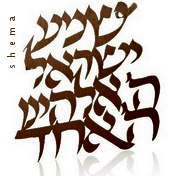
07.23.21 (Av 14, 5781) Our Torah for this week (Vaetchanan) includes the first part of the Shema (שמע): "Hear, O Israel, the LORD is our God; the LORD is One, and you shall love (וְאָהַבְתָּ) the LORD your God with all your heart and with all your soul and with all your might..." (Deut. 6:4-5). During its recitation we attempt to concentrate our attention to the utmost, pronouncing each word carefully and covering our eyes with our right hand, focusing on the Kingship of God and our primary need to love Him with our whole being. Yeshua said that the Shema was "the great commandment of Torah" (see Mark 12:28-31). Note that the opening declaration of the Shema includes three Divine Names: Lord (יהוה), God (אלהים), and Lord (יהוה) again, which suggests the multiplicity-in-oneness (unity) that the word "echad" implies (see below). In the Torah scroll, the two letters Ayin (ע) and Dalet (ד) are enlarged in the opening verse of the Shema. Together, these letters form the word 'ed (עֵד), which means "witness," suggesting that we recite the Shema to testify of the sovereignty of God and our great need to love Him bekhol levavkha, (בּכָל־לְבָבְךָ) with all our hearts...
שׁמע ישׂראל יהוה אלהינו יהוה אחד

"Hear, O Israel, the LORD is our God, the LORD is one."
(Deut. 6:4)

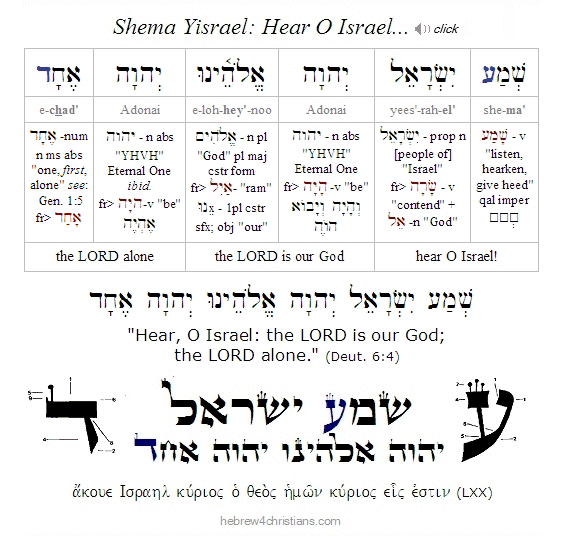
Interestingly, the word echad (אֶחָד) in Hebrew implies unity in diversity, not absolute numerical identity (the word for one and only one, i.e., "unique," is yachid (יָחִיד)). For example, in Exodus 26:6 the parts of the Tabernacle (mishkan) are to be constructed so that "it shall be one (echad) tabernacle," and Ezekiel spoke of two "sticks" (representing fragmented Israel) as being reunited into one: "and they shall be one (echad) stick in My hand" (Ezek. 37:19). Moses also uses echad in Genesis 2:24 when he says: "And they (husband and wife) will become one flesh (basar echad)." Ultimate Reality is multidimensional, personal and loving, and that is part of the very essence of God. There is no such thing as a "Person" - either human or Divine - that exists in an absolute vacuum, outside of relationship. Absolute monism is inconsistent with the idea of Divine Personhood, just as Aristotle's "Unmoved Mover" is a solipsistic illusion and logical absurdity.
There is a "three-in-one" sacred place of the heart (represented by the inmost chamber of the Mishkan called the Holy of Holies) which contains the "three-in-one" sacred Throne of the Divine Presence (represented by the Ark of the Covenant covered by sacrificial blood that signifies the cross of Messiah), before which the "three-in-one" blessing of God is heard (represented by the the priestly benediction when the Sacred Name YHVH was uttered), as we affirm the great "three-in-one" affirmation of faith known as the Shema: "Hear, O Israel, the LORD our God is One LORD," which declares our duty to love God with the "three-in-one existence" he has given us: with all our heart (be'khol levavkha), with all our soul (be'khol nafshekha), and with all our strength (be'khol me'odekha).
At the revelation at Sinai, "the mountain burned with fire to the heart of heaven" (בָּאֵשׁ עַד־לֵב הַשָּׁמַיִם), wrapped in darkness, cloud, and heavy mist" (Deut. 4:11). Yet what is this divine Fire if it is not the very passion of God - a passion that descends from the "heart of heaven" to the place of revelation within the human heart? Indeed the fire is none other than the Word of God, "the Voice that speaks from the midst of the fire" (קוֹל אֱלהִים מְדַבֵּר מִתּוֹךְ־הָאֵשׁ) the truth revelation (see Exod. 3:2, Deut. 4:33). As the Spirit asks: "Who has ascended to heaven and come down? Who has gathered the wind in his fists? Who has wrapped up the waters in a garment? Who has established all the ends of the earth? What is his name, and what is his Son's name? Surely you know" (Prov. 30:4).
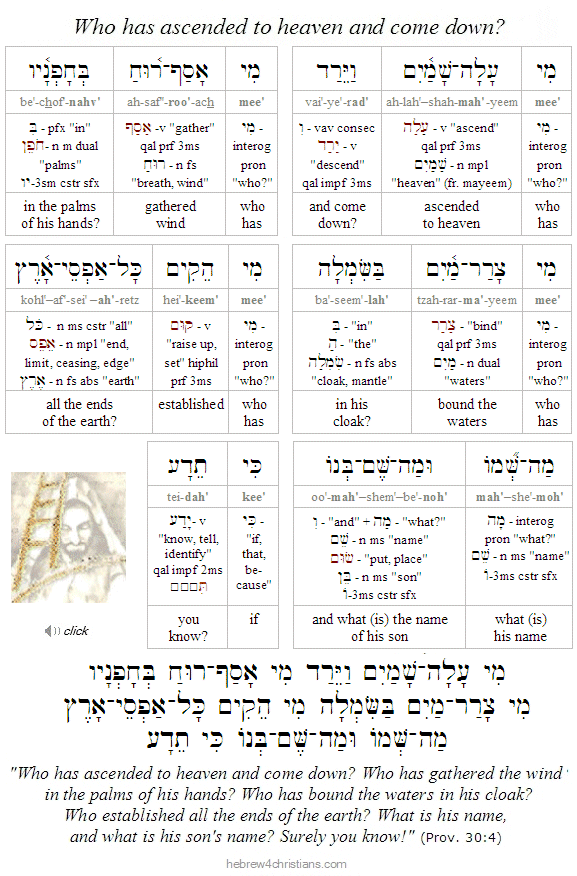 |
Yeshua is the Center of Creation - its beginning and end. As it is written: אָנכִי אָלֶף וְתָו רִאשׁוֹן וְאַחֲרוֹן ראשׁ וָסוֹף / "I am the 'Aleph' and the 'Tav,' the First and the Last, the Beginning and the End" (Rev. 22:13). "For from him and through him and to him are all things. To him be glory forever. Amen" (Rom. 11:36). Indeed he is called מֶלֶךְ מַלְכֵי הַמְּלָכִים / Melech Malchei Hamelachim: The "King of kings of kings" and the LORD of all possible worlds -- from the highest celestial glory to the dust of death upon a cross. Yehi shem Adonai mevorakh (יְהִי שֵׁם יהוה מְברָךְ): "Let the Name of the LORD be blessed" forever and ever (Psalm 113:2).
Note: In Hebrew, the "heart" of something represents its core. center, and essence. Revelation is a matter of the heart, written by the God's Spirit, yielding a life of praise and thanks to the Lord. For more information about the Shema and its blessings, or to download Shema study pages, please see the Shema section of the site. Shalom.
 |
Believing in God's Love...

07.22.21 (Av 13, 5781) "You shall love the Lord your God with all your heart" (Deut. 6:5). The sages comment that it is your attitude in prayer that is essential. If you are missing the inmost depth of feeling when you pray, it is as if you were not praying at all... As it is written: "Very powerful is the fervent supplication of a righteous person" (James 5:16).
If you feel empty inside, then pray to be able to pray: ask the Lord to give you the words you need to utter (Psalm 51:15). If you enter into prayer but feel that the Lord is not responding, however, you should never despair by thinking that God is indifferent nor paying attention to you! Instead remind yourself that God has personally welcomed you to come before His presence to find help for your problems, and therefore he has promised to listen to your heart's cry (Heb. 4:16). Every word you speak touches God's heart and evokes his compassion; every prayer is answered...
Faith is the key. Believe the message of God's love in Messiah. "But without faith it is impossible to please God, for whoever draws near to God must believe that God is present for him - that he is accessible and willing to know hear him - and moreover that God rewards those who earnestly trust in Him (Heb. 11:6). It is not sufficient to simply believe that God exists, but you must further believe that God is willing to hear you, to know you, and to help you in your struggle... Believe in His love.
"O Lord, we come before you in the confidence of your word and in the truth of your blessing that you have indeed blessed us to be with you, to share our burdens with you, and to find solace in your great compassion and love. We come, as always, in the time of our great need - and we thank you for the consciousness of our need for you and for the revelation of your desire for us to come before you in confidence of your grace. O Lord, our greatest need is to need you - and to know you in the midst of our need for you, so please, O Sacred Love, reward us with the blessing of your Presence in our lives... Fill us with the truth of your faithfulness and keep us ever close to your heart. Amen."
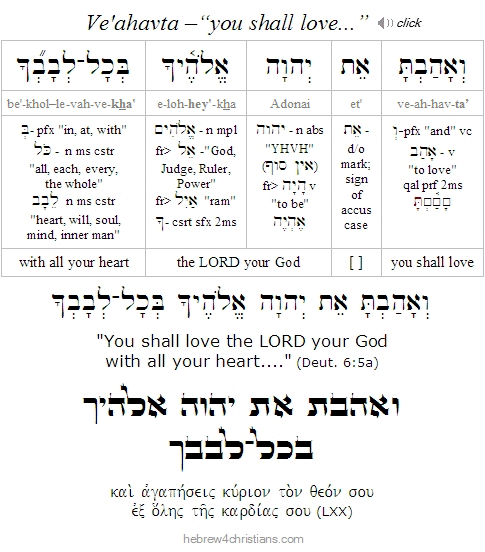 |
The Heart of Heaven...

07.22.21 (Av 13, 5781) In our Torah for this week (i.e., Vaetchanan), Moses recalled the awesome revelation of the Torah at Sinai, describing how the mountain "burned with fire unto the heart of heaven" (בּעֵר בָּאֵשׁ עַד־לֵב הַשָּׁמַיִם) when the Ten Commandments were inscribed upon the two tablets of testimony: "And you came near and stood at the foot of the mountain, while the mountain burned with fire unto the heart of heaven, wrapped in darkness, cloud, and gloom. Then the LORD spoke to you out of the midst of the fire. You heard the sound of words, but saw no form; there was only a voice. And he declared to you his covenant, which he commanded you to perform, that is, the Ten Commandments, and he wrote them on two tablets of stone" (Deut. 4:11-13).
The sages say that the tablets represented a heart, as it says, "write them on the tablet of your heart" (Prov. 3:3), and God's word is likened to a fire that reveals the great passion of God's heart for us (Jer. 23:29; Deut. 4:24). Tragically, the two tablets were smashed after the people lost sight of the heart of heaven (לב שמים), and therefore God requires a broken heart - teshuvah - to behold his glory once again. Therefore we see that Yeshua died of a broken heart upon the cross for our return to God, when the fire of his passion burned unto the very heart of heaven, and in his mesirat ha'nefesh we see the greater glory of God... May we, then, readily take hold of his passion and never forsake his love and truth.
Hebrew Lesson:
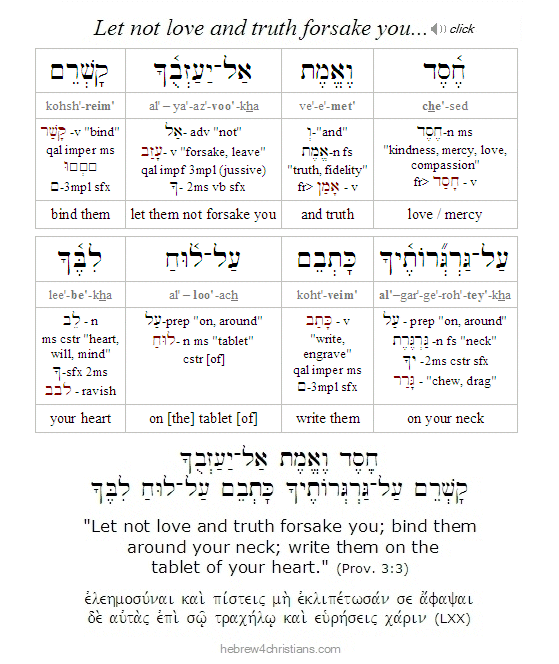 |
A Blessed Desperation...

07.22.21 (Av 13, 5781) "And he opened his mouth and taught them, saying... 'Blessed are those who hunger and thirst for righteousness, for they shall be filled'" (Matt. 5:6). Many people hunger for spiritual experiences, for material "blessings," or for signs of the miraculous, while others seek knowledge and wisdom, but it is the righteousness of God that alone truly satisfies the heart (Matt. 6:33). This righteousness is not achieved by means of performing religious rituals or by doing good deeds, but instead "comes to life" within the heart by trusting in Yeshua, the righteousness of God (צִדְקַת אֱלהִים). He is the vine and we are branches, and as we draw life from him, his life flows within us to bear deeds of righteousness to the praise and glory of God (John 15:1-5; 1 John 3:7). But note that while we can't attain righteousness by means of virtuous deeds, the cost for attaining such is confession of the truth of our condition: brokenness and mourning of heart (Matt. 5:3-4). Those who profoundly hunger for deliverance from their moral bankruptcy and grieving of heart will be satisfied, but only those who do so. God will indeed wipe away our tears, but the tears must be shed... (2 Cor. 7:10).
The Torah of Yeshua is heeded by the "impoverished of spirit" who know they must "find God or die." It is first a word spoken to the shattered of heart and crushed of spirit. Those who empty themselves before God will find their own desire fulfilled, for God will satisfy them with inner peace and joy. This is the righteousness of God that is known by yielding to His love secured in Messiah. The "fruit of the Spirit" is then expressed in the heart through acts of gratitude and mercy, that is, "faith working through love" (Gal. 5:6). Teshuvah is always a response to God's compassion, as it says, "we love him because he first loved us" (1 John 4:19). Paradoxically, we never find ultimate satisfaction in finite things, but only by seeking the Eternal One, and by means of seeking the infinite we find the delight to seek further still: "Come further up, come further in!" It is great blessedness to be desperate for God, to long for him more and more; to keep asking, seeking, knocking (Matt. 7:7). When we seek first the kingdom of God and his righteousness as our supreme need, God will satisfy us by drawing us into an ever-deepening desire for him.
Hebrew Lesson:
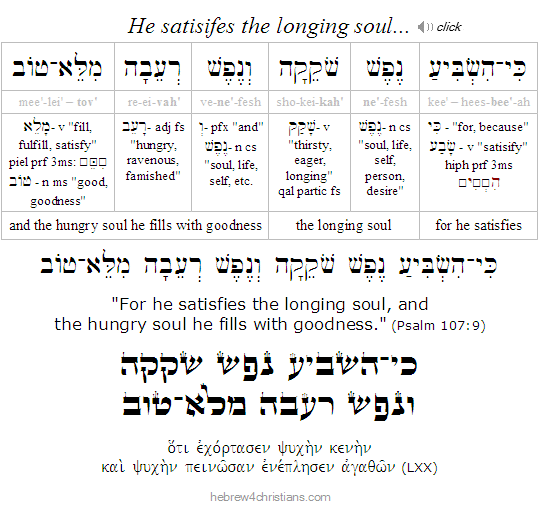 |
The LORD alone can satisfy the eternal yearning of our spiritual nature. As Augustine said, "You have made us for yourself, O Lord, and our hearts are restless until they rest in you."
"Blessed are those who hunger and thirst for righteousness, for they shall be filled" (Matt. 5:6). This beatitude again follows logically from the previous ones; it is a statement to which all the others lead. It is the logical conclusion to which they come, and it is something for which we should all be profoundly thankful and grateful to God. I do not know of a better test that anyone can apply to himself or herself in this whole matter of the Christian profession than a verse like this. If this verse is to you one of the most blessed statements of the whole of Scripture, you can be quite certain you are a Christian. If it is not, then you had better examine the foundations again." - D. Martin Lloyd Jones: Studies in the Sermon on the Mount
This great blessedness is found only by those who seek God be'khol levavkha, with all their heart, as it is written: "Seek me and live" (Amos 5:4). But we must be vigilant, since a common tactic of the enemy of our souls is to induce us to forget our desperate need, seducing us to think we have already "arrived" or that we "know" all the answers. This is a grave danger. Those who regard themselves as rightly related to God are often deluded regarding their spiritual status (Luke 18:9-14; Rev. 3:15-20). The seeking heart is humble and knows that it has not yet attained to righteousness (Phil. 3:12-14).
Return to your heart...

07.21.21 (Av 12, 5781) From our Torah portion this week (i.e., Vaetchanan) we read, "Know therefore today and return to your heart (והשׁבת אל־לבבך), for the LORD is God in heaven above and on the earth beneath; there is no other" (Deut. 4:39). Here again we see the centrality of the heart as the mode to encounter God (Luke 17:21). Savor the phrase, "Know therefore today and return to your heart..." It the heart that is the place of connection with God... As Yeshua said, "Behold, I stand at the door and knock. If anyone hears my voice and opens the door, I will come in to him and eat with him, and he with me" (Rev. 3:20). Today is the day to "return to your heart" and receive again God's love for your soul...
Hebrew Lesson:
Praying to Pray...

07.20.21 (Av 11, 5781) Our Torah portion for this week (Vaetchanan) begins, "And I pleaded (ואתחנן) with the LORD at that time, to say..." (Deut. 3:23), which implies that we must first pray in order to be able to pray, that is, we make ourselves ready to pray by finding the inner freedom and grace to groan before the LORD.... If you can't find the words to pray, then plead with the LORD and ask for the Holy Spirit to groan on your behalf (Rom. 8:26). "Ask, and it will be given to you; seek, and you will find; knock, and it will be opened to you" (Matt. 7:7). "O Lord, open my lips, and my mouth will show forth your praise" (Psalm 51:15).
The need to pray with the proper focus, intention, and heart is surely one of our greatest needs... "Lord, teach us to pray" (Luke 11:1). The disciples were not asking for a formula or recipe prayer (such as might be recited from a prayer book), but for the right motivation, direction, and "Torah" of prayer... If we ask according to his will, God hears us (1 John 5:14), since we are speaking heaven's "language" of truth and humility. Therefore pray for the ability to pray effectively, to commune in trust with your heavenly Father. The prayer of a righteous person has great power (James 5:16).
אדני שׂפתי תפתח
ופי יגיד תהלתך
Adonai · se·fa·tai · teef·tach
oo·fee · ya·geed · te·heel·la·te'·kha

"O Lord, open my lips,
and my mouth will declare your praise."
(Psalm 51:15)

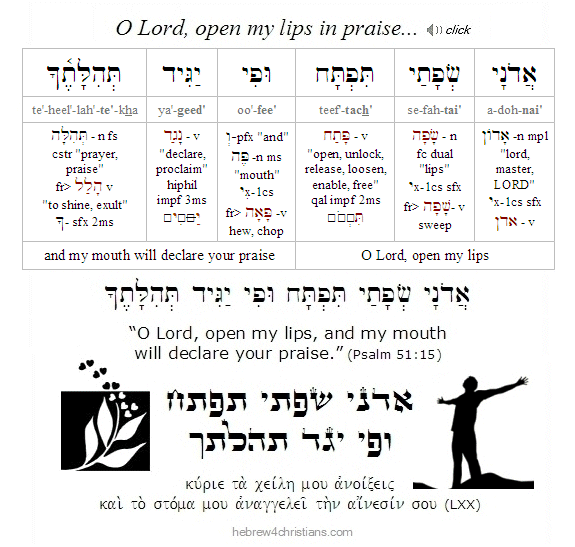
The Battle Belongs to the Lord...

07.20.21 (Av 11, 5781) In light of the threat of an invasion from the east, King Jehoshaphat (המלך יהושפט) of Judah prayed: "O LORD, God of our fathers (יהוה אֱלֹהֵי אֲבֹתֵינוּ), are you not God in heaven? You rule over all the kingdoms of the nations. In your hand are power and might, so that none is able to withstand you... O our God, will you not judge them? For we are powerless against this huge army that attacks us; we do not know what to do: but our eyes are upon you (כִּי עָלֶיךָ עֵינֵינוּ)... After he prayed, the Spirit of God spoke forth: "Thus says the LORD to you, 'Do not be afraid and do not be dismayed at this great horde, for the battle is not yours but God's'" (2 Chron. 20). Amen, Lord, our eyes are upon you...
This teaches us the great principle of our spiritual warfare: "the battle is not yours but God" (לֹא לָכֶם הַמִּלְחָמָה כִּי לֵאלֹהִים). So be encouraged in the midst of your struggle. Listen for that song singing: "Do not be afraid and do not be dismayed... for the LORD will be with you." (2 Chron. 20:15). Recall what King David said to the giant Goliath: "The LORD saves not with sword and spear. For the battle is the LORD's, and he will give you into our hand" (1 Sam. 17:47). Therefore may we look to the Lord and remain steady in our times of testing, friend!
Hebrew Lesson:
 |
Cleaving to God...

[ The following concerns this week's Torah reading, parashat Vaetchanan, which is always read on the Sabbath following Tishah B'Av... Nachamu, nachamu... ]
07.20.21 (Av 11, 5781) Our Torah portion this week says: "But you who have cleaved to the LORD your God are all alive today" (Deut. 4:4). The Hebrew word devakut (דְּבָקוּת) means "cleaving" and refers to communion with God. This word comes from the root word davak (דָּבַק), meaning to "cling" or "stick" (the Modern Hebrew word for "glue" is devek (דֶבֶק) which also comes from the same root). The sages comment that we can cleave to God only one day at a time. As Yeshua said: "Take therefore no thought for tomorrow: for tomorrow shall take thought for the things of itself. Sufficient for the day its own trouble" (Matt. 6:34). One day at a time. The LORD gives us daily bread (לֶחֶם חֻקֵּנוּ) so that we may persevere for this day. "For he is our God, and we are the people of his pasture and the sheep of his hand today -- if you hear his voice" (Psalm 95:7). Today, if you hear his voice, do not harden your heart (Heb. 3:15). "Take care, brothers, lest there be in any of you an evil, unbelieving heart, leading you to fall away from the living God, but encourage one another every day, as long as it is called "today," so that none of you may be hardened by the deceitfulness of sin" (Heb. 3:12-13).
Hebrew Lesson:
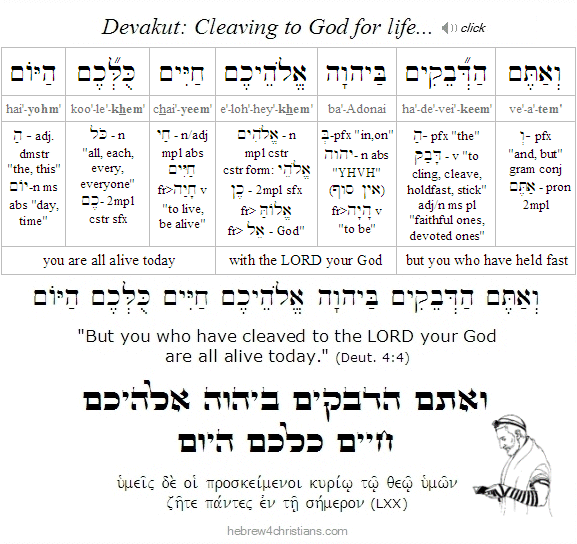 |
Personal Update: I have been sick the last few days with an intense respiratory cold. Thank you for your prayers for healing. Shalom friends. - John
The Holiday of Tu B'Av...

07.19.21 (Av 10, 5781) Tu B'Av (ט"ו באב, the "fifteenth [day] of [the month of] Av") is an annual holiday of love and affection (sometimes called chag ha-ahavah: חַג הָאַהֲבָה) that is celebrated as a sort of "Valentine's Day" in modern Israel (though it is a much older holiday that St. Valentine's Day). Just as Yom Kippur (the Day of Atonement) originally celebrated the reconciliation of Israel to the LORD after the sin of the Golden Calf, so Tu B'Av originally celebrated the reconciliation of Israel for the Sin of the Spies. Therefore both the fifteenth of Av and Yom Kippur became joyous times celebrating forgiveness and restoration to the LORD. Indeed, the Babylonian Talmud (Ta'anit 31a) quotes Shimon ben Gamliel as saying, "Israel had no holidays as joyous as the fifteenth of Av and the Day of Atonement, when the maidens of Israel would go out and dance in the vineyards... What were they saying: Young man, consider whom you choose to be your wife..."
Since it marks the "last" festival of the Jewish year, Tu B'Av prophetically pictures our marriage to the Lamb of God (Seh Elohim), Yeshua our beloved Messiah. On a soon-coming day those who belong to him and are faithful to follow his ways will be blessed with the unspeakable joy as their "wedding day" finally has come. This is heaven itself - to be in the Presence of the LORD and to be His beloved (Rev. 19:6-9).
With the advent of the holiday of Tu B'Av, we are reminded of the beautiful phrase, ani l'dodi ve'dodi li (אֲנִי לְדוֹדִי וְדוֹדִי לִי), "I am my beloved's, and my beloved is mine" (Song. 6:3), a phrase the sages say is an acronym for the name Elul (אלול). Since the month of Elul begins in just a couple of weeks (i.e., Saturday, August 7th this year), the entire month is set apart to prepare us for the coming High Holidays in early September. During this time it we engage in cheshbon ha-nefesh ("soul searching") and to derive comfort that God is forgiving and loving to those who turn to Him. The sages chose the seven "Haftarot of comfort" to encourage us to make our hearts ready for the upcoming High Holiday Season.
Hebrew Lesson:
Shavuah Tov Podcast:
Parashat Vaetchanan...

07.18.21 (Av 9, 5781) Shavuah tov, chaverim. Our Torah reading for this week (i.e., Vaetchanan) is always read on the Sabbath that immediately follows the somber holiday of Tishah B'Av (תשעה באב). In Jewish tradition, this special Sabbath is called "Shabbat Nachamu" (שַׁבַּת נַחֲמו), "the Sabbath of Comfort" and assigned the prophetic portion from the Book of Isaiah that begins with the famous phrase: נַחֲמוּ נַחֲמוּ עַמִּי - Nachamu, Nachamu ami - "Comfort, O comfort ye, my people..." (Isa. 40:1). With the advent of this special Sabbath, we have just seven weeks to prepare for the new year (i.e, Yom Teruah or "Rosh Hashanah") and the High Holidays - a "jubilee" season that heralds the return of Yeshua.
Hebrew Lesson:
Va'etchanan: Moses' Plea...

[ Our Torah reading for this week, parashat Vaetchanan, is always read on the Sabbath immediately following Tishah B'Av, called Shabbat Nachamu, or "the Sabbath of Comfort." ]
07.18.21 (Av 9, 5781) This week we will study parashat Vaetchanan (פרשת ואתחנן), a rich Torah portion that includes some of the most foundational texts of the Jewish Scriptures, including the Ten Commandments, the Shema (the duty to love God and study His Torah), as well as the commandments of tefillin and mezuzot. In addition, in this portion Moses predicted the worldwide exile and the eventual redemption of the Jewish people in acharit hayamim (the prophesied "End of Days").
The Torah portion begins with Moses' plea to the LORD to be allowed entry into the Promised Land, despite God's earlier decree (see Num. 20:8-12; 27:12-14). The Hebrew word va'etchanan (וָאֶתְחַנַּן) comes from the verb chanan (חָנַן), which means to beseech or implore. It derives from the noun chen (חֵן), grace, implying that the supplication appeals to God's favor, not to any idea of personal merit (in Jewish tradition, tachanun (תַּחֲנוּן) are prayers recited after the Amidah begging for God's grace and mercy). Moses was asking God to show him grace by reversing the decree that forbade him to enter the Promised Land.
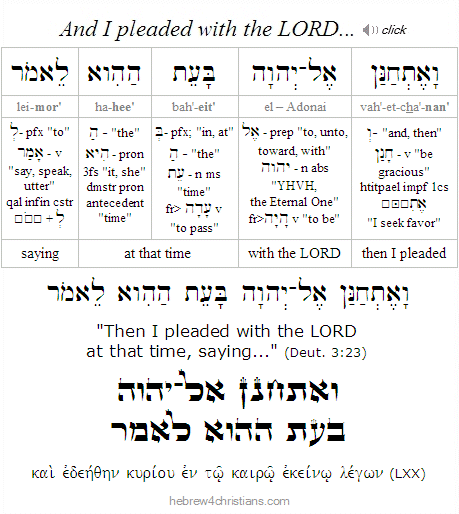 |
In addition to our Torah readings, on the 15th day of the month of Av we observe chag ha-ahavah (חַג הָאַהֲבָה), or "the holiday of love." Since it marks the "last" festival of the Jewish year, prophetically the 15th of Av (called Tu B'Av) pictures our marriage to the Lamb of God (Seh Elohim), the LORD Yeshua our beloved Messiah. On a soon-coming day those who belong to the LORD and are faithful to follow His ways will be blessed with the unspeakable joy of an eternally intimate relationship with Him. This is heaven itself - to be in the Presence of the LORD and to be regarded as His beloved (Rev. 19:6-9). Maranatha.
Transience and Tishah B'Av...
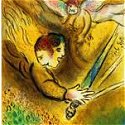
[ This weekend we are observing the holiday of Tishah B'Av... ]
07.16.21 (Av 7, 5781) In the Book of Isaiah it is written: "The grass withers, the flower fades, but the word of our God will stand forever" (Isa. 40:8), which sets up a great contrast between olam ha-zeh and olam haba – between this present world and the heavenly realm. Unlike the grass of the field that dries up or flowers that soon fade, the word of God stands forever. And despite the frailty of man and the inevitability of physical death, God's truth endures, which is a foundation upon which we can rest.
But how are metaphors that our lives are "like dried up grass" or "withered flowers" meant to comfort us? Do they not, on the contrary, lead us to regard our lives as vain and perhaps meaningless? Yes indeed. Our lives are assuredly empty and vain apart from God and His truth. If we find ourselves wincing over such images, it is perhaps time to reexamine the state of our faith: To the extent that we regard this world as our "home" we will find the transience of life to be tragic... For those who are seeking a heavenly habitation, the "City of God" and the fulfillment of the promise of Zion, the fleeting nature of this evil world is ultimately a form of consolation... Our true home is with our Lord.
Hebrew Lesson:
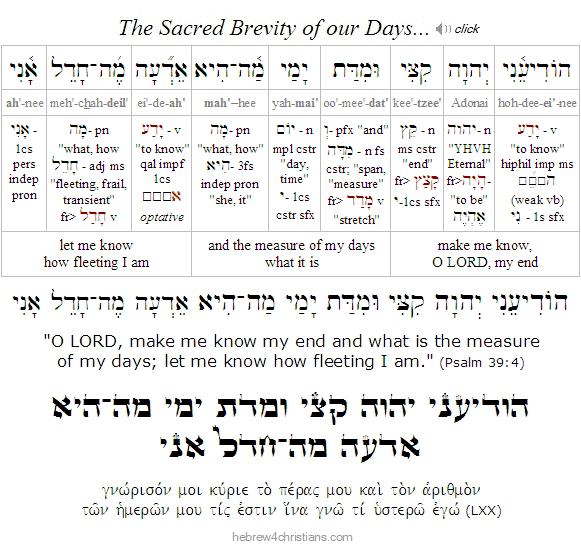 |
The theme of the transience of life is part of the message of Tishah B'Av. The Holy Temple, despite being the pride and joy of the Jewish people during the time of King Solomon, went up in smoke, and the place (i.e., ha-makom: הַמָּקוֹם) where the LORD chose to "put His Name" vanished as if it had never been... Understand, then, that the expression of your highest ideals, your most celebrated achievements, likewise can be turned to smoke in an instant. This, then, is the sober message of Tishah B'Av, a "holiday" that teaches that all things will be "tossed into the oven" (Matt. 6:30), though the truth of God endures forever.
On the Torah's calendar, Tishah B'Av is "sandwiched" between the two times Moses received the tablets of the covenant, first during Shavuot and later, after a period of repentance, during Yom Kippur. This means that just two months after celebrating the Sinai revelation, we mourn for the destruction of the Temple and the beginning of our long exile; and two months later still, we celebrate national atonement and the restoration of the covenant during Yom Kippur. All this is prophetic, of course, since Shavuot recalls the ascension of our LORD and the giving of the Ruach HaKodesh (Holy Spirit); Tishah B'Av foretells of Israel's long exile and the "age of grace" extended to the Gentiles; and Yom Kippur foretells the coming atonement of the Jewish people at the end of the age, when Israel accepts Yeshua as their great High Priest of the New Covenant (Jer. 30:24).
Tishah B'Av reminds us that this world is not our home, and that we are "strangers" and exiles here. The heart of faith is always in collision with this world. Yes, it is an affliction to wait for the LORD, a sort of "homesickness" of heart... The apostle Paul says our loneliness and alienation prepare for us an "eternal weight of glory" beyond all comparison, because we are not looking at what can be seen but at what cannot be seen. "For what can be seen is temporary, but what cannot be seen is eternal" (2 Cor. 4:17-18). Just as the "two-souled" man is unstable in all his ways, so the process of being "educated for eternity" means learning to focus our heart's passion and hope on the glory of heaven. "For where your treasure is, there will your heart be also."
Ultimately, the loss of "the place where God put His Name" was a deliberate affliction of His love for his people. The Sacred Name of God [יהוה] is formed from the words hayah ("He was"), hoveh ("He is"), and yihyeh ("He will be"): הָיָה הוֶה וְיִהְיֶה, indicating that the LORD is always present, despite momentary appearances. Note that all the letters of the Name are "vowel letters," which mean they evoke breath and life. Indeed the first occurrence of the Name in Torah regards the inspiration of nishmat chayim (נִשְׁמַת חַיִּים), the "breath of life" in Adam (Gen. 2:4). The LORD is always present for you, breathing out life and hope...
Note: It's been a tough week for me, chaverim, for a variety of reasons, though I feel like I am grieving inside because I am remembering Tishah B'Av and the long suffering of the Jewish people... God is faithful to us, even in our heartaches; our inner pain is a messenger for us to turn to for healing; and we believe that all things work for our ultimate good in the Messiah. So let's be encouraged, friends, because there is a future and a hope prepared for us. "Whoever has an ear, let him hear what the Spirit says to the churches: 'To the one who conquers I will give some of the hidden manna, and I will give him a white stone, with a new name written on the stone that no one knows except the one who receives it'" (Rev. 2:17). So stay strong and keep focused on God's amazing love in Yeshua. Shabbat shalom.
 |
The Tishah B'Av Prophecies...
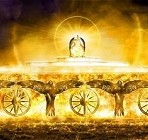
[ The somber fast of Tishah B'Av begins this Saturday at sundown.... ]
07.16.21 (Av 7, 5781) Yeshua foretold the destruction of the Second Temple when he lamented: "O Jerusalem, Jerusalem, the city that kills the prophets and stones those who are sent to it! How often would I have gathered your children together as a hen gathers her brood under her wings, and you were not willing! Behold, your house is left unto you desolate. For I tell you, you will not see me again, until you say, Barukh Haba Ba'shem Adonai: 'Blessed is he who comes in the name of the Lord.' Yeshua then left the Temple and was going away, when his disciples came to point out to him the buildings of the Temple. But he answered them, "You see all these, do you not? Truly, I say to you, there will not be left here one stone upon another that will not be thrown down." (Matt. 23:37-24:2). Note well that we are not awaiting the construction of the "Third Temple" which will be hastily erected during the time of Jacob's Trouble during the Great Tribulation, but we await the "Fourth Temple," that is, the Temple that will be built by Tzemach Tzaddik (צֶמַח צַדִּיק), namely, the Messiah the Son of David (מָשִׁיחַ בֶּן־דָוִד) who will come again to establish the Kingdom of Zion upon the earth in fulfillment of the promises of God (Zech. 6:12; Jer. 23:5). At that glorious time the mourning of the Jewish people will forgotten, as it is written: "Thus says Adonai Tzeva'ot (יהוה צְבָאוֹת): The fast of the fourth month (Tammuz), and the fast of the fifth month (Tishah B'Av), and the fast of the seventh month (Gedaliah), and the fast of the tenth month (Asarah b'Tevet), will be to the house of Judah for joy and rejoicing and for pleasant appointed seasons. Therefore love truth and peace" (Zech. 8:19). In that coming day, "The LORD will be king over all the earth. On that day the LORD will be one and his name one."
וְהָיָה יְהוָה לְמֶלֶךְ עַל־כָּל־הָאָרֶץ
בַּיּוֹם הַהוּא יִהְיֶה יְהוָה אֶחָד וּשְׁמוֹ אֶחָד
ve·ha·yah · Adonai · le·me'·lekh · al-kol-ha·a'·retz
ba·yom · ha·hoo · yee·he·yeh · Adonai · e·chad · oo·she·mo · e·chad

"And the LORD will be king over all the earth.
On that day the LORD will be one and his name one."
(Zech. 14:9)

Click to listen and learn the Hebrew text:
As I've mentioned repeatedly over the years, the word "Zion" (i.e., tziyon: צִיּוֹן) is mentioned over 160 times in the Scriptures. That's more than the words faith, hope, love, and countless others... And since Zion is a poetic form of the word Jerusalem, the number of occurrences swells to nearly 1,000! It is therefore not an overstatement to say that God Himself is a Zionist.... "Out of Zion, the perfection of beauty, God shines forth" (Psalm 50:2). Zion represents the rule and reign of God in the earth and is therefore synonymous with the Kingdom of God. The entire redemptive plan of God -- including the coming of the Messiah Himself and our very salvation -- is wrapped up in the concept of Zion. It is the "historiography" of God -- His "philosophy of history," if you will.
In a sense, the great vision of Zion is the heart of the Gospel message and the focal point of God's salvation in this world. Zion represents our eschatological future -- our home in olam haba (the world to come). Even the new heavens and earth will be called Jerusalem -- "Zion in her perfection" (Rev. 21). "This is what Adonai Tzeva'ot says: I am very jealous for Jerusalem and Zion, but I am very angry with the nations that feel secure" (Zech. 1:14-15). "For Zion's sake I will not keep silent, for Jerusalem's sake I will not remain quiet, till her righteousness shines out like the dawn, her salvation like a blazing torch" (Isa 62:1). "The builder of Jerusalem is God, the outcasts of Israel he will gather in... Praise God, O Jerusalem, laud your God, O Zion" (Psalm 147:2-12).
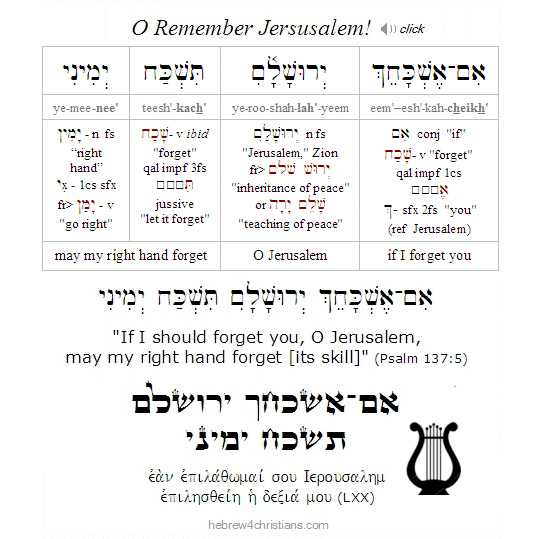 |
Return us to You, O LORD...
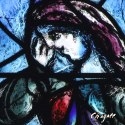
[ The somber fast of Tishah B'Av begins Saturday at sundown.... ]
07.16.21 (Av 7, 5781) Have you ever lost something very valuable only to later discover it "hiding in plain sight," in the most obvious place? And yet that is what tends to happen to many of us as time goes by: we lose sight of what is most important and get lost in trivialities... We forget the meaning and purpose of our existence, we begin to sleepwalk through our days, numb and in quiet despair... A key verse chanted during this season of the year is: Hashivenu Adonai elekha ve'nashuvah: "Return us to you, O LORD, and we shall return," chadesh yamenu ke'kedem: "renew our days as of old" (Lam. 5:21). When we ask the LORD return us to Him, we are really asking him to help us wake up, to redirect our focus, and to enable us to engage in heartfelt self-examination by asking searching questions: "Who am I?" "How did I get here?" and so on. Teshuvah is a matter of "coming to yourself" and remembering the most important truths of life. Let us return to God now...
הֲשִׁיבֵנוּ יְהוָה אֵלֶיךָ וְנָשׁוּבָה
חַדֵּשׁ יָמֵינוּ כְּקֶדֶם
ha·shee·vei'·noo · Adonai · e·ley'·kha · ve·na·shoo·vah
cha·deish · ya·mei'·nu · ke·ke'·dem

"Return us to you, O LORD, and we shall return;
renew our days as of old" (Lam. 5:21)
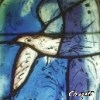
Seeking Things Above...

07.16.21 (Av 7, 5781) Then he said to them all, "If anyone wants to become my follower, he must deny himself, take up his cross daily, and follow me. For whoever wants to save his life will lose it, but whoever loses his life for my sake will save it" (Luke 9:23-24). Paradoxically only those willing to give up their lives will take up their cross, but the prospect remains an offense to those who seek to protect themselves. We must let go, say goodbye, and turn away from the allure of this world. The cross of Messiah crucifies your relationship to this world with its ignorance and vanities (Gal. 6:14). Through the cross you die to this world and its idolatry and cross over to a new realm of existence altogether (Gal. 2:20; Col. 3:1-4). The cross marks the beginning of life in the spirit...
"If then you have been raised with Messiah, seek the things that are above (τὰ ἄνω ζητεῖτε), where the Messiah is seated at the right hand of God (לִימִין אֱלהִים). Focus your thoughts on the things above, not on things here on earth. For you have died, and your life has been hidden with Messiah in God. Then when the Messiah, who is your life, appears, you too will appear with him in glory" (Col. 3:1-4).
All of this turns on our faith... If we are spiritually identified with Yeshua, we are "dead" to this age (olam hazeh), and therefore we are awakened to a realm that transcends the appeals of carnal flesh (olam habah). We no longer live chayei sha'ah (חַיֵּי שָׁעָה, "fleeting life") but chayei olam (חַיֵּי עוֹלָם, "eternal life"). The arorist verb "you have died" indicates "you have died once for all," that is, this is a condition granted by the power and agency of God on your behalf. You don't "try to die" to the flesh; you accept what God has done by killing its power over you through Yeshua... You are dead to this world; you are dead to sin's power; you are no longer enslaved to the deception of the worldly matrix, etc. Now you are made alive to an entirely greater and more powerful order and dimension of reality, namely, the spiritual reality that is not disclosed to the vanity of this age. Therefore we are to consciously focus our thoughts (φρονέω) on the hidden reality of God rather than on the temporal world that is passing away: "For we are looking not to the things that are seen but to the things that are unseen. For the things that are seen are transient (i.e., "just for a season," καιρός), but the things that are unseen are eternal" (2 Cor. 4:18).
When faith in God begins to affect an individual, his entire existence is transformed. His obsession with immediate pleasures and pains dies away. Instead his attention is increasingly focused on God. He comes to conceive God in his heart not just at a particular moment, but at every moment. He desires to share the infinity of God, and so feels himself confined within his present existence. He is like a bird in a cage, dreaming of flying free; he is like a fish on dry land, dreaming of swimming in a pool. He is acutely aware of the contrast between God's power and his own frailty. Yet even in his confinement, he feels joy in the knowledge that soon he will be free" (Kierkegaard: Journals)
We share the (in)visibility of the Messiah in this age... Since He is presently hidden from view, "the world knows us not, because it knew him not" (1 John 3:1); on the other hand, when He is revealed from heaven, so we will appear with him in glory... Therefore "being dead" is an inversely reciprocal relationship: being dead to this world is to be alive in the other world, and vice-versa.... We have "hidden life" in the Messiah, as it is written: "your life has been hidden (i.e., κρύπτω, "concealed," "disguised") with the Messiah in God." By faith you are made dead to one order of reality so that you would be made alive to another order of reality, to the reality of God that transcends the shadows and decay of this world. Your life has been hidden - like a "hidden treasure" - with the Messiah, who holds its store for you and will reveal its glory in the coming age. Because Yeshua knows you by name, calls you to follow Him, and is your Sin-Bearer, Priest, Advocate, and Savior before the throne of God, your life is indeed "hidden with Him," and you are made secure through His all-powerful providential care... Praise His Name forever.
Salvation is forever a matter of life and death. We esteem earthly doctors because they are healers of the body, but how much more do people need true healers of the soul? "Be not deceived" about your own hope for eternity; "God is not mocked" (μυκτηρίζω). He knows your inner motivations with perfect clarity (Gal. 6:7; Heb. 4:12). To "serve" God in the truth means being willing to face ongoing self-examination, to own up to the truth about yourself, to be real, to be honest. We are here to share the message of God's love and to help bring others to eternal life. Yeshua's fiercest words of condemnation were reserved for those who played games with "religion" - for those who forgot that people were literally dying without God's love... May God help us remember what is closest to His heart, friends...
Hebrew Lesson:
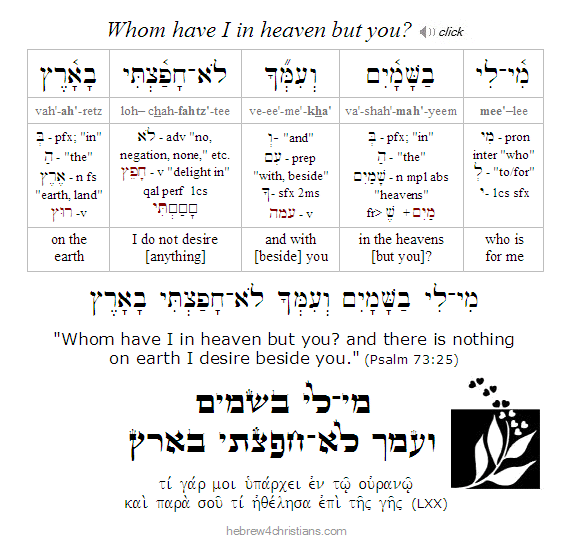 |
The Wounds of His Love...
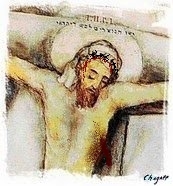
07.16.21 (Av 7, 5781) Yeshua loves us so much that he clothed himself with the "dust of death" to become bruised and utterly broken on the cross... That was his mission, after all: the blessed Redeemer of Israel was born to suffer, to be broken, and to die so that we would be comforted, healed, and made alive. He was willing to become a byword and a curse for us so that we might live: "by His stripes we have been healed."
As his followers we too must "take up our cross daily" by being broken for the sake of our identification with him. As we yield to his will we are purified and sanctified, and from our brokenness will come newness of life. As Yeshua said: "Truly, truly I say to you, that unless a seed falls into the earth and dies, it remains alone: but if it dies, it brings forth much fruit" (John 12:24). The outer form of the seed must break so that the inner life can emerge... We are made alive from the wounds of God's love.
"Dear Heavenly Father, give us the courage to drink from the cup of your suffering and to be baptized in the baptism of your brokenness... We are weak, O Lord, and have no confidence in ourselves to remain steadfast, to suffer well, to die well. Therefore we beseech you to sustain us in our sorrows and pains, and to revive us in our broken estate. In the garden of our struggle we are quick to ask, "Let this cup pass from me," but we assuredly need your heart and Spirit to say, "nevertheless not my will but thine be done." Help us, dear Lord, for you know our frame; you remember that we are also but dust. We can do nothing apart from your sovereign hand and blessing. Amen."
Hebrew Lesson:
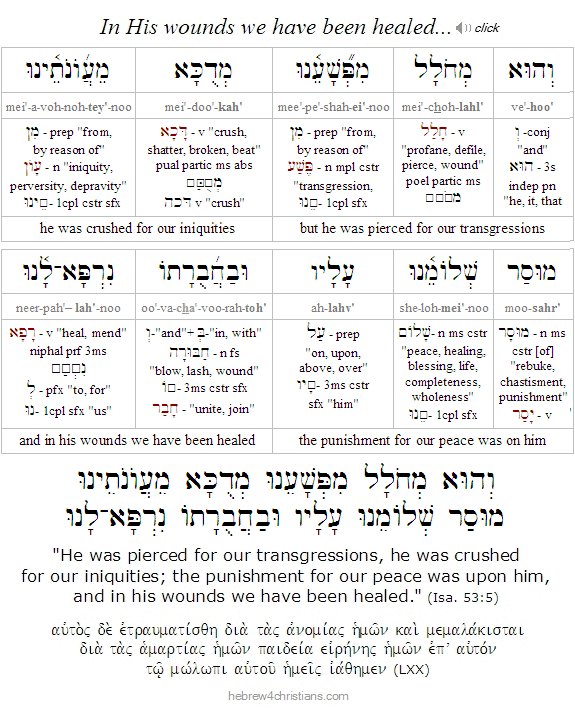 |
Note that the word translated as "in his stripes" or "in his wounds" can also be read as "in his friendship." "In his friendship we have been healed...." Yeshua, the Friend of sinners!
Hearing your Father's Voice...
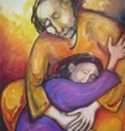
07.15.21 (Av 6, 5781) At the time of his baptism, the heavens were torn open and the Spirit descended on Yeshua like a dove. The Heavenly Voice then proclaimed: "You are my son; my beloved: my favor rests upon you" (Mark 1:11). The Voice from heaven not only validated Yeshua's ministry before the others, but more radically it revealed that the blessing of his relationship with God - his chosenness - was something that we could know as well: "You are my beloved child; my favor rests upon you." The Voice was given for our sake -- so that we might know (John 12:30).
Baptism, after all, represents being identified and immersed with God's life: it is like a rebirth or a "crossing over" from the realm of this world to that of the realm of the spirit; from the old to the new... When we hear (shema) the Heavenly Voice within our own hearts saying, "Fear not; you are my beloved child: I have chosen you to know me," you come alive to inherit the blessing of knowing God as your Father, your Abba, your friend...
"O heavenly Father -- O Abba -- help me to know myself as your beloved child, chosen and forever loved by you from the foundation of the world... My heart yearns for you; from the inmost depths do I need you; I cry out; my heart aches, for your blessing is this: that my heart would know you, and that in my great need you would forever be my beloved, my life, my beginning and my end, my all in all. Amen."
Hebrew Lesson:
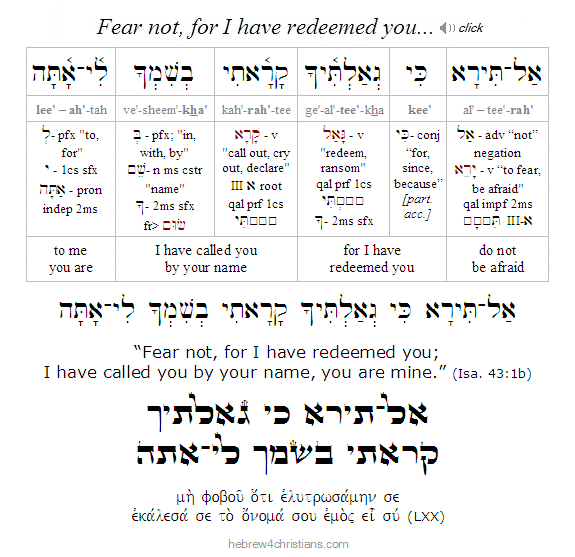 |
He Carries us Through...
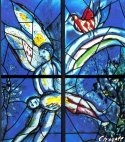
[ The following entry is related to our Torah portion this week, parashat Devarim... ]
07.15.21 (Av 6, 5781) From our Torah this week (Devarim) we read: "The LORD your God carried you, as a man carries his son, all the way that you went until you came to this place" (Deut. 1:31). Part of the miracle of faith is coming to believe that you matter – that your thoughts, words, and deeds all are of interest to God. You may be tempted to regard yourself as unseen and powerless before the Creator of the universe. How is it possible for anyone to serve the Infinite One, since "even the heavens, and the heaven of heavens, cannot sustain You" (1 Kings 8:27)? Are we not made of clay, whose foundation is but dust? (Job 4:19). Here the miracle of faith believes that God, the LORD and Source of all life, seeks relationship with us, and that He makes place within Himself to hear us, to engage our lives, and to walk with us... Indeed, "the Word was made flesh and dwelt among us:" God emptied himself (κενόω) and clothed himself with human dust so that we could be touched by His love. The LORD carries us through our exile so that we might know and trust him...
Hebrew Lesson:
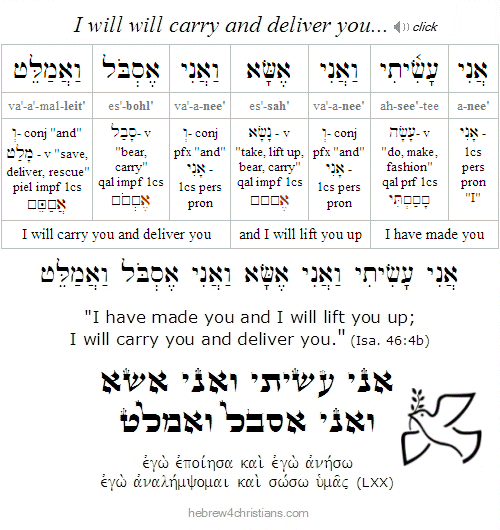 |
"And just as we have borne the image of the man of dust,
so we shall also bear the image of the man of heaven" (1 Cor. 15:49).
The City of the King...

[ The following is related to the fast of Tishah B'Av, which begins Saturday, July 17th.... ]
07.15.21 (Av 6, 5781) Jerusalem is central to the Jewish heart. When religious Jews pray three times a day, they always turn toward the Holy City (i.e., mizrach: מזרח "east"). Synagogues likewise place the holy ark (the place where Torah scrolls are kept) on the wall closest to Jerusalem. Many observant Jews keep small section of an eastern wall of their house unpainted as a sign of mourning for the destruction of the Temple. Every year we close the Passover Seder with the words, La-Shanah Haba'ah Bi Yerushalayim! ("Next year in Jerusalem"). These same words are invoked to conclude the holiest day of the Jewish year, Yom Kippur. Indeed Yeshua called Jerusalem the "City of the great King" (Psalm 48:2; Matt 5:35): It is the place where He was crucified, buried, resurrected, and from where He ascended to heaven. It is also the birthplace of the true church (כלה של משיח) and the focal point of humanity's eschatological future. At the Second Coming, Yeshua will physically return to Jerusalem to restore the throne of King David. Then all the New Covenant promises given to Israel will be fulfilled as the Kingdom of God is manifest upon the earth.
Hebrew Lesson:
For more on this, see "The Significance of Zion and the Tragedy of Tishah B'Av."
My LORD my God...

"The end of all things is at hand: be therefore in your right mind and full of prayer" - 1 Pet. 4:7
07.15.21 (Av 6, 5781) As we draw close to God and cleave to his heart, we will be delivered from the pain of our fears, despite the ongoing darkness of ha'olam ha'zeh (הָעוֹלָם הַזֶּה), this present age (Psalm 119:105). As King David said, Adonai ori v'yishi, mimi ira: "The LORD is my light and my salvation" – literally, "my Jesus," my Yeshua – "whom shall I fear? Adonai ma'oz chayai: mimi efchad: "The LORD is the strength of my life, whom shall I dread?" (Psalm 27:1). Yeshua is the Light of Life (אוֹר הַחַיִּים), the Healer of the fearful heart, the I-AM-WITH-YOU-ALWAYS One. His love overcomes all our fears. As the apostle Paul asked, "If God is for us, who can be against us?" (Rom. 8:31).
Hebrew Lesson:
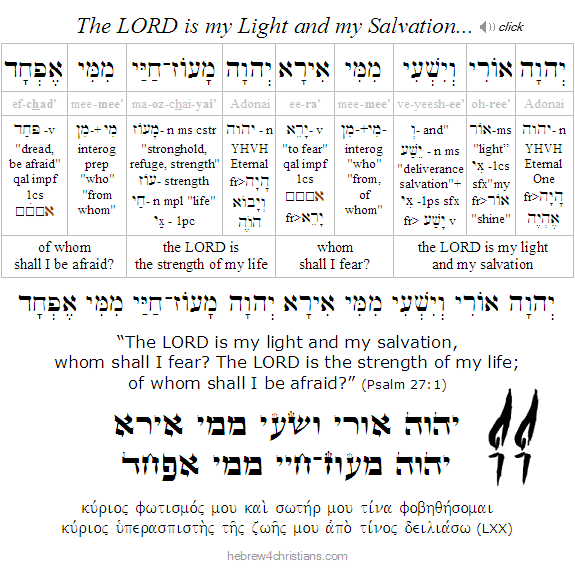 |
And as we hear the "footsteps of the Messiah" (עִקְּבוֹת מְשִׁיחַ) approaching, let us remember the words of our Savior: "when you see these things taking place, you know that the time is near, right at the door" (Mark 13:29), and let us therefore encourage one another to wake up and come alive: "Awake, O sleeper, and arise from the dead, and Messiah will shine on you!" (Eph. 5:14). The message of teshuvah (repentance, "turning back to God") is always, "Wake up - you are living a nightmare." There is only one remedy, and that is found by coming to the Divine Light and opening your heart to the love and Presence of God.
Shabbat Chazon (שבת חזון)
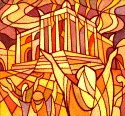
07.15.21 (Av 6, 5781) Parashat Devarim is always read on the Sabbath before the 9th of Av, the saddest date on the Jewish calendar, and the traditional date on which both the First and Second Temples were destroyed. This Sabbath is called "Shabbat Chazon" (שַׁבַּת חַזוֹן), the "Sabbath of Vision," so named from the opening verse of the Haftarah: "Chazon Yeshayahu ven-Amotz," the "Vision of Isaiah, the son of Amoz" (Isa. 1:1).
When it was first recorded, Isaiah's vision of the destruction of the Temple was still future, and the Jews still had a chance to repent before the great tragedy befell them. However, since they did not repent, calamity finally overtook the inhabitants of Judah.... Despite this devastation, however, the Berditchever Rebbe saw in Shabbat Chazon a distant "vision" of the Third Temple of Messianic times, as indicated by Moses' farewell address as a "second Torah" (i.e., mishneh ha'torah: מִשְׁנֵה הַתּוֹרָה), that is, a prophetic retelling given to the generation that finally would enter the Promised Land.
Despite a long period of exile and mourning, the Sabbath before Tishah B'Av foretells the World to Come, a time when our redemption will be complete and all traces of the pain of our past forgotten, as was spoken by Moses himself (Deut. 32:43) and later by the prophet Zechariah: "Thus says the LORD of hosts: 'The fast of the fourth month (i.e., Tammuz) and the fast of the fifth (i.e., Tishah B'Av) and the fast of the seventh (Gedaliah) and the fast of the tenth (Asarah B'Tevet) shall be to the house of Judah seasons of joy and gladness and cheerful feasts. Therefore love truth and peace'" (Zech. 8:19). The time is coming when the sorrows of our exile will be turned into the joys of redemption!
Hebrew Lesson:
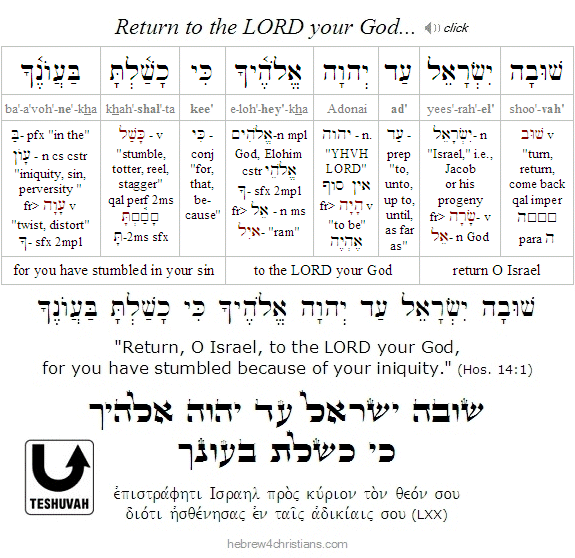 |
Note: For more see: "Vision of Destruction: Further Thought on Shabbat Chazon."
Imminence of Judgment...

[ "In a time of deceit telling the truth is a revolutionary act." - George Orwell ]
07.14.21 (Av 5, 5781) This evil world is ripe for judgment, and indeed, the judgment of God has begun to fall in earnest on the nations. Deranged thinking and insanity are the hallmarks of the day. Propaganda (i.e., scripted "news") is ubiquitous as the masses throughout the world are repeatedly indoctrinated to be fearful and helpless in the face of manufactured crises... Moral truth is mocked and censored in the mass media. Public education is little more than indoctrination of godless and nihilistic ideologies of despair. Regarly worldly politics, consider the "liberal" (in name only) countries of the world today. In the name of supposed "tolerance" they have willingly opened their doors to anarchy and lawlessness, with the predictable (and desired) outcome of increased governmental oppression, tyrannical control measures, and so on. All this derives from the abuse of language and the scorning of divine truth... As Orwell presciently foresaw, propaganda has been designed to destroy the semantics of various cultural keywords: "marriage," "gender," "truth," "right," "wrong," "power," "racism," "liberal," "tolerance," "peace." etc. This creates further social instability and moral degradation.
Demagogues know that "there is no swifter route to the corruption of thought than through the corruption of language." So let's not play that game and be sure to define our terms with some clarity of mind. The word "liberal" used to mean those who genuinely love freedom, but today's so-called "liberals" (often "democrats") are actually "illiberals" or "anti-liberals," that is, people who hate freedom and demand conformity to their thinking (or else!). That's fascism, after all, and we should no longer allow them to get away with their spurious redefinition of terms... We are not to be ignorant of Satan's devices (2 Cor. 2:11).
"Liberalism" (in the deceptive sense) has become the doctrine of deliberate cognitive dissonance, creating dialectical tensions that redefine words to death. It is a philosophy of deconstruction, nihilism, and despair intended to create social unrest leading to "revolution." History is littered with the crumbled states and innumerable corpses that come from those who have wreaked havoc with language and made a deal with the devil to overthrow the "old regime" for something that is far, far worse -- namely, an autocratic state that dehumanizes and murders people that are considered "enemies of the State." This is where our world is now heading - into a full-on collision with God Himself and the realm of transcendental moral reality. Modern politics are "unlivewithable" because they promote the culture of death. They are scheduled for a divine appointment with the Author of Reality soon enough, and may that appointment come soon, and in our days.
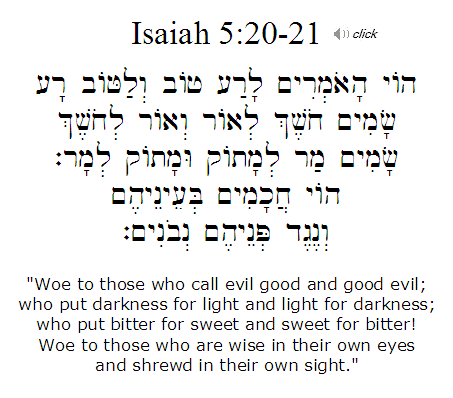 |
Propaganda is crafted to "divide and conquer" people by means of fallacies of distraction. For instance, to create social unrest and weaken a culture, propagandists focus on secondary characteristics, such as the race of a person, and elevate that to be primary in understanding our social relationships.... Really? What color is "who"? The answer to the problem of "race" relations is resolved by the truth of Scripture, since all people are created in the image and likeness of God and are therefore to be respected, and so on.
Selected Scripures:
- "Because I have called and you refused to listen, have stretched out my hand and no one has heeded, because you have ignored all my counsel and would have none of my reproof, I also will laugh at your calamity; I will mock when terror strikes you, when terror strikes you like a storm and your calamity comes like a whirlwind, when distress and anguish come upon you. Then they will call upon me, but I will not answer; they will seek me diligently but will not find me. Because they hated knowledge and did not choose the fear of the LORD" (Prov. 1:24-29).
- "The kings of the earth set themselves, and the rulers take counsel together, against the LORD and against his Anointed, saying, "Let us burst their bonds apart and cast away their cords from us." He who sits in the heavens laughs; the Lord holds them in derision. Then he will speak to them in his wrath, and terrify them in his fury, saying, "As for me, I have set my King on Zion, my holy hill." I will tell of the decree: The LORD said to me, "You are my Son; today I have begotten you. Ask of me, and I will make the nations your heritage, and the ends of the earth your possession. You shall break them with a rod of iron and dash them in pieces like a potter's vessel" (Psalm 2).
- "God is a righteous judge; a God who feels indignation every day" (Psalm 7:11).
- "For the LORD of hosts has a day against all that is proud and lofty, against all that is lifted up-- and it shall be brought low" (Isa. 2:12).
- "For behold, the day is coming, burning like an oven, when all the arrogant and all evildoers will be stubble. The day that is coming shall set them ablaze, says the LORD of hosts, so that it will leave them neither root nor branch" (Mal. 4:1).
- "Therefore, as flaming fire devours straw, and dry grass disintegrates in the flames, so their root will rot, and their flower will blow away like dust. For they have rejected the law of the LORD of Hosts (תורת יהוה צבאות), they have spurned the Word of the Holy One of Israel" (Isa. 5:24).
- "Wail, for the day of the LORD is near; as destruction from the Almighty it will come!" (Isa. 13:6).
- "Therefore I will make the heavens tremble, and the earth will be shaken out of its place, at the wrath of the LORD of hosts in the day of his fierce anger" (Isa. 13:13).
- "Be silent before the Lord GOD! For the day of the LORD is near; the LORD has prepared a sacrifice and consecrated his guests" (Zeph. 1:7).
- "For the day is near, the day of the LORD is near; it will be a day of clouds, a time of doom for the nations" (Ezek. 30:3).
- "For the day of the LORD is near upon all the nations. As you have done, it shall be done to you; your deeds shall return on your own head" (Obad. 1:15).
- "Your hand will find out all your enemies; your right hand will find out those who hate you. You will make them as a blazing oven when you appear. The LORD will swallow them up in his wrath, and fire will consume them" (Psalm 21:8-9).
- "Our God comes; he does not keep silence; before him is a devouring fire, around him a mighty tempest" (Psalm 50:3).
- "And I saw the dead, great and small, standing before the throne, and books were opened. Then another book was opened, which is the book of life. And the dead were judged by what was written in the books, according to what they had done" (Rev. 20:12).
 |
Enduring to the End...
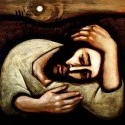
07.14.21 (Av 5, 5781) You may sometimes struggle with your faith -- not by questioning whether Yeshua is the Savior who died for your eternal healing, but in an hour of testing, when you feel exhausted by pain, when you pray for relief, seeking God in your cries and tears, but the pain continues, and then you are left rationalizing why you were denied your supplication, why your suffering has been prescribed -- for surely, you believe, God can heal you by simply saying the word - and then you wonder to what extent you need to be broken in order to be fully remade... As C.S. Lewis once said, "We are not necessarily doubting that God will do the best for us; we are wondering how painful the best will turn out to be" (Letters of C.S. Lewis, 1964). There is a trust issue in suffering, and an intimacy that comes through its fires. And as Soren Kierkegaard reminds us, "It is one thing to conquer in the hardship, to overcome the hardship as one overcomes an enemy, while continuing in the idea that the hardship is one's enemy; but it is more than conquering to believe that the hardship is one's friend, that it is not the opposition but the road, is not what obstructs but what develops, is not what disheartens but ennobles" (Four Upbuilding Discourses, 1844).
The difficulty of intense personal suffering is deeply existential: how do you keep hope in the midst of this tension? "Lord I believe; help my unbelief" (Mark 9:24). How do you affirm that your heavenly Father will heal you but at the present hour you must continue to endure suffering? Do you then devise a "soul-building theodicy" to explain your struggle – providing a narrative to answer the "why" of your suffering -- or do you attempt to sanctify suffering as a means of healing others by the grace of the Messiah (Col. 1:24)? When Yeshua victoriously proclaimed, "It is finished" just before he died on the cross, he foreknew that his followers would experience a "purging process," a "refining fire," and time on the "potter's wheel" to perfect their sanctification. At the cross of Yeshua death itself was overcome – and all that it implies – and yet it is nevertheless true that we will suffer and die ourselves and that death persists an enemy (see 1 Cor. 15:26). While we celebrate the reality of the final redemption, the "instrumentality of our sanctification" needs to be willingly accepted and endured. I say "endured" here because I don't think we will ever have a complete answer to the question of "why" we undergo the various tests we face in this life. Our disposition in the midst of this ambiguity, in the midst of seemingly unanswered prayers, is where our faith is disclosed: will we despair of all temporal hope or not? Will we console ourselves with the vision of a future without tears and loss - a heaven prepared for us -- or will we resist the present darkness and seek to find deliverance in this hour? Do we trust God with our pain and submit to his will, or will we "curse God and die" inside – losing hope and despairing of all remedy?
As King David once wrote, "At an acceptable time, O God, in the abundance of your steadfast love answer me in your saving faithfulness. Deliver me from sinking in the mire; let me be delivered from my enemies and from the deep waters. Let not the flood sweep over me, or the deep swallow me up, or the pit close its mouth over me. Answer me, O LORD, for precious is your compassion; in the abundance of your mercies, turn to me" (Psalm 69:13-16).
ענני יהוה כי־טוב חסדך
כרב רחמיך פנה אלי
a·nei'·nee · Adonai · kee - tohv · chas·de'·kha
ke·rohv · ra·cha·mey'·kha · pe·nei · e·lai

"Answer me, O LORD, for precious is your compassion;
in the abundance of your mercies turn to me."
(Psalm 69:16)

Hebrew Lesson:
God sometimes allows difficulties in the lives of those whom He favors in order to ultimately reward them. Why were Sarah, Rebekah, and Rachel barren for so many years? So that God would hear their prayers and reward them for their steadfast faith. Why was Leah more fruitful than the other wives of Jacob? Because she was "hated" and subject to unending gossip that she tried to steal her sister's husband, yet she persevered in hope. In this connection, some of the Chassidic sages render Psalm 118:21 as, "I thank you that you have pained me (עֲנִיתָנִי) and have become my salvation." The pain that I regarded as punishment became the means by which I obtained the salvation of the LORD. Similarly, "It was good for me that I was afflicted (עֻנֵּיתִי), that I might learn your decrees" (Psalm 119:71).
Hebrew Lesson:
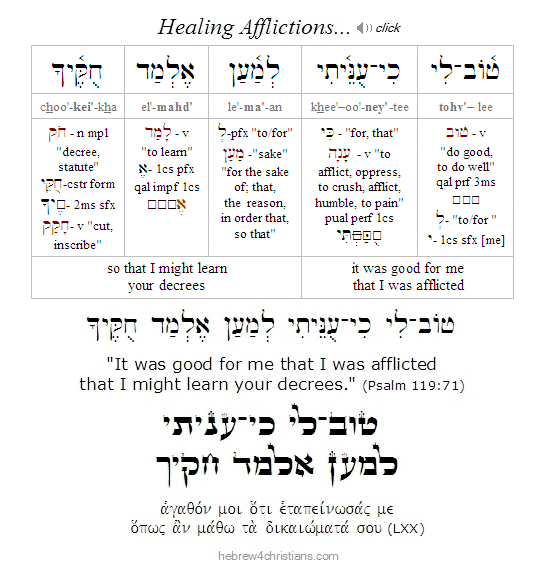 |
It is written in our Scriptures: "But You, O GOD my Lord, do Thou for me for your own Name's sake; because your steadfast love is good, deliver me" (Psalm 109:21). "Do thou for me" is the confession that God alone has the power to help. Asking God to bring glory to His own Name -- to honor and magnify His Name -- is the theme of all true intercession.
Suffering has a way of focusing the heart and mind, reminding us that "today is the tomorrow of yesterday." Life is short, and our need is great to turn to the LORD and take hold His promises. We take comfort that God is for us the God of salvation: "Blessed be the Lord, who daily bears us up; God is for us our salvation. Selah. Our God is a God of salvation (יְשׁוּעָה), and to GOD, the Lord, belong deliverances from death" (Psalm 68:19-20).
Hardness of Heart...

07.14.21 (Av 5, 5781) Spiritually speaking, a heart that is insensitive, indifferent, unfeeling, and callous toward the needs of others is regarded as "hard." Often such hardness comes as a result of living in a fallen world. Many wounded people live with "scar tissue" that surrounds their heart, making them feel numb and unwilling to open up and trust others. Their affections have become disordered and their ego rationalizes blaming others or seeking various forms of entitlement. "Turning off your heart" can mean suppressing any positive regard for others (empathy) while nurturing anger and self-righteousness, or it may mean withdrawing from others as a lifeless shell (both approaches vainly attempt to defend the heart from hurt). Although Yeshua always showed great compassion, especially to the wounded and broken in spirit (Isa. 42:3), He regularly condemned the "hardness of heart" ("sclero-cardia," σκληροκαρδία) of those who opposed his message of healing and love.
A hard heart is closed off and impermeable to love from others, and especially from God. It is a "difficult" (קָשֶׁה) heart, inflexible and even cruel. Scripture uses various images to picture this condition, including a "heart of stone" (Ezek. 36:26, Zech. 7:12), an "uncircumcised heart" (Jer. 9:26), a "stiff neck" (Deut. 31:27), and so on. Stubbornness is really a form of idolatry, an exaltation of self-will that refuses to surrender to God. If you are wounded and afraid to open your heart in trust to others, ask God for healing...
Hardness of heart is something all of us deal with, even those who trust in Yeshua. After all, New Covenant believers are commanded to "put off the old self with its practices" (Col. 3:9) and are urged not to harden their hearts (μὴ σκληρύνητε τὰς καρδίας) through unbelief (Heb. 3:8,15, 4:7). May God's love help us keep our hearts soft and open toward others... May He give us a new heart, and put a new spirit within us. May He remove the heart of stone (לֵב הָאֶבֶן) from us and give us a heart of flesh (לֵב בָּשָׂר). May we be lev echad - "one heart" - with one another and with the Father (Ezek. 11:19). May we be so sensitized to the Presence of God that we detect the slightest touch from His hand upon us. Amen.
Hebrew Lesson:
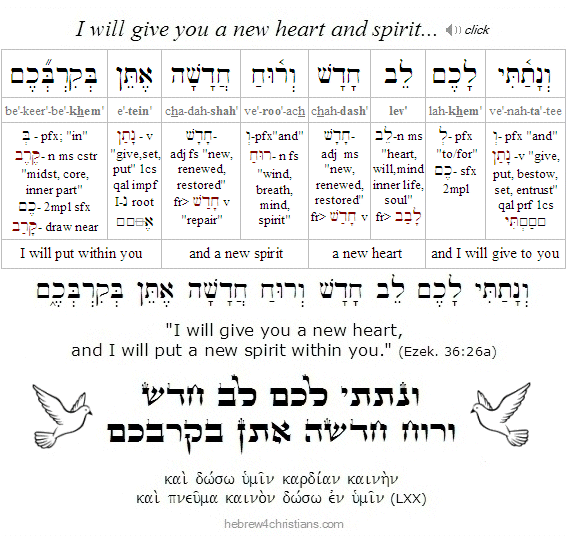 |
Note: For more see: "Harden not your Heart: Further thoughts on Devarim."
Righteous Judgment...
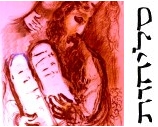
07.14.21 (Av 5, 5781) Just before Moses began his reproof of Israel, he declared his love and faith in the people. "The LORD your God has multiplied you until you are today as numerous as the stars in the sky (כְּכוֹכְבֵי הַשָּׁמַיִם). May the LORD, the God of your fathers, make you a thousand times more as you are (כָּכֶם), and bless you, as He promised you" (Deut. 1:10-11). Moses first brought up God's love for the Jews before he began his admonition. Notice he used the word kachem (כָּכֶם, "as you are") in this blessing. May the LORD multiply you - as you are - a thousand times! You are beloved; you are worthy: may the LORD bless you a thousand times over! (How different is this picture of Moses than the typical cartoon made of him by many in Christianity, who envision him smashing the tablets as if that were his "last word" on the subject of the Torah to Israel!)
Were the people perfect then? Obviously not, as would be clear through Moses' later admonition to them. Nonetheless, Moses used a "good eye" to see their potential as God's chosen people. Here was this ragtag group of of desert wanderers, descendants of slaves from the "house of slavery," whom the LORD God Almighty personally redeemed to be His own treasured possession. Despite their failures in the past and all that went before, Moses reminded them that they were esteemed as mamlechet kohanim v'goy kadosh (מַמְלֶכֶת כּהֲנִים וְגוֹי קָדוֹש), a "kingdom of priests and a holy people" (Exod. 19:6).
Moses' approach gives us insight about how we might correct the people we truly love. Often people become defensive when they are criticized and stop listening. Adding sincere praise and encouragement helps them open up to our message, since it is grounded in a sense of respect and value for their well-being. God thinks highly of the Jewish people, and that is the very first thing to be heard. God greatly esteems us, too. Despite the fact that we are sinners, God truly loves us. He considers us worthy to be saved. Again, why else did Yeshua suffer and die on the cross if God did not value our lives so much?
Shame is never the goal of the Torah. As King David prayed: Elohai bekha vatachti; al-avoshah (אֱלהַי בְּךָ בָטַחְתִּי אַל־אֵבוֹשָׁה): "My God, I trust in you; let me not be ashamed" (Psalm 25:2). Some people use the idea of God's "law" as a sort of club to hammer a sense of guilt upon the soul. They insist that man is "totally depraved" and under God's death sentence. Such people then hope to explain the good news of the gospel to escape God's righteous wrath for sin. These people, perhaps well-meaning, forget that the LORD is "near" - karov- to the brokenhearted. This adverb means "close enough to touch." The same root is used for the word korban (קָרְבָּן), an offering that draws us near to God, as well as karov (קָרוֹב), a near kinsman. In other words, God's desire has always been for people to draw near to Him, and He has always provided a way for people to do so -- even those who lived under the terms of the Sinai Covenant.
Guilt (אַשְׁמָה) is an objective state of being sinful that may or may not be accompanied by feelings of remorse, but shame (בּוּשָׁה), at least in its toxic sense, is a state of soul that regards itself as fundamentally flawed, inadequate, and essentially unlovable. God does not want us to grovel in self-disgust or live in constant fear of His judgment. He does not want us to hate ourselves or to regard ourselves as unlovable. As His creation, He loves us and finds us of value and worth. Why else would he have given His Son up to ransom us from sin and death? Like a parent who loves his child but wants to correct him by saying, "this doesn't become you," so God wants us to remember who we really are. He wants us to "walk in love" as His "dear children of light" (Eph. 5:8). God's correction is meant to form His character within us, and this first must begin with our assurance of our value, dignity, and worth in His eyes.
We are commanded to judge with tzedakah, with love as our underlying assumption. If God so commands us, surely we can trust that He likewise judges us this way. God's love is his essence - "God is love" (ὁ θεὸς ἀγάπη ἐστίν) - and He regards you as worthy to receive His love and blessing. He loves you b'ahavat olam - with "an everlasting love" (אַהֲבַת עוֹלָם), and therefore in chesed he draws you to Himself (Jer. 31:3). Why else would Yeshua die on the cross unless He expressed God's desire to judge others favorably?
Be encouraged, chaverim. You are "fearfully and wonderfully made" and you have a future and a hope in the world to come (Jer. 29:11). "There is no fear in love, but perfect love casts out fear. For fear has to do with punishment, and whoever fears has not been perfected in love" (1 John 4:18). Keep hope. God's love never fails (1 Cor. 13:8).
Hebrew Lesson:
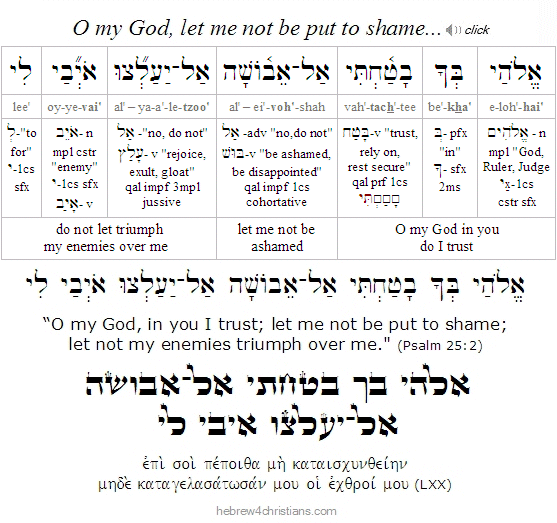 |
Seeking God's Presence...

[ The following is related to the theme of teshuvah (repentance)... ]
07.13.21 (Av 4, 5781) The Hebrew word for "world" or "age" is olam (עוֹלָם), which is derived from a root verb (עָלַם) that means "to conceal" or "to hide." God "hides" His face from us so that we will seek Him, and that means pressing through ambiguity of this world to discern and take hold of the truth. Therefore King David said, בַּקְּשׁוּ פָנָיו תָּמִיד/ bakeshu fanav tamid: "Seek His face continually" (Psalm 105:4). Note that the Hebrew gematria (numerical value) for the word "fanav" (i.e., "His face") is the same as that for the word "olam." When we truly seek God's face (i.e., His Presence), that is, "do teshuvah," we are able to discern the underlying purpose for our lives in this age... As it is written in our Scriptures: "Blessed is the one who endures temptation, for when he is tried, he shall receive the crown of life (עֲטֶרֶת הַחַיִּים) that the LORD has promised to those who love him" (James 1:12). The present age, then, constitutes a test that God providentially designs to lead us to the "crown of life," and we are made happy when we go through its fires and are not consumed. Indeed, only those who love the Lord will be able to withstand the fires... The "crown of life" symbolizes that we have truly received the purpose for which we were created and that we are identified with God's own passion and love. The light of the crown represents the Divine Presence within us, the Life that overcomes despair on our behalf.
דרשׁו יהוה ועזו
בקשׁו פניו תמיד
deer·shoo · Adonai · ve·ooz·zo
ba·ke·shoo · fa·nahv · ta·meed

"Seek the LORD and his strength;
ask for his Presence at all times." (Psalm 105:4)

Hebrew Lesson:
"It is not the path which is the difficulty; rather, it is the difficulty which is the path." The ancient Greek version of the Torah (i.e., the Septuagint) translates this verse, "Seek the LORD and be strengthened; seek His face through everything (διὰ παντός)." The LORD God gives us "inner strength" (i.e., ἐγκράτεια, from εν-, "in" + κράτος, "strength" or "power") when we yield to "the power of His might" (ἐν τῷ κράτει τῆς ἰσχύος αὐτοῦ) (Gal. 5:22-23; Eph. 6:10). Therefore we must remember God's power and glory, for "He is the LORD our God (הוּא יְהוָה אֱלהֵינוּ); His judgments are in all the earth" (Psalm 105:7).
Hebrew Lesson:
The Plea of Moses...
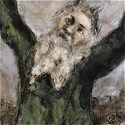
[ The following entry is related to our Torah portion this week, parashat Devarim... ]
07.13.21 (Av 4, 5781) Various commentators regard Sefer Devarim (i.e., the Book of Deuteronomy) as Moses' final warning to Israel in light of their repeated failures and setbacks. Some (primarily Christian) commentators even go so far as to say that the book represents an indictment against the Jewish people that warrants regarding them as a cursed people. (This is essentially the repugnant doctrine of "replacement theology" that denies ethnic Israel has a future and a hope in God's plan of salvation.) Even many Jewish commentators, among them Rashi, seem to focus on Moses' rebuke (i.e., tochachah: תּוֹכָחָה) of Israel and regard the book in a negative light. Because of this, it should be stressed at the outset that Moses' correction of Israel - including his review of the unseemly history of the desert generation - was primarily intended to remind the Jews of their high calling, their new identity, and their preciousness as God's people. As will be seen, Moses wanted the people of Israel to remember their identity as am segulah (עַם סְגֻלָּה), God's "treasured possession among all peoples" (Exod. 19:5). Moses' admonition (מוּסָר) functions more like the plea of a father to his children to walk in a manner that is worthy of his name than a stinging rebuke of the sins of his children. "My son, despise not the discipline (musar) of the Lord; neither be weary of his correction (tochachah). For whom the Lord loves he corrects; even as a father the son in whom he delights" (Prov. 3:11; cp. Heb. 12:5-6). Therefore we read, "Know then in your heart that as a man disciplines his son (כַּאֲשֶׁר יְיַסֵּר אִישׁ אֶת־בְּנוֹ), the LORD your God disciplines you (הוה אֱלהֶיךָ מְיַסְּרֶךָּ)" (Deut. 8:5).
To underscore this point, notice that just before Moses began his reproof of Israel, he declared his love and faith in the people. "The LORD your God has multiplied you until you are today as numerous as the stars in the sky (כְּכוֹכְבֵי הַשָּׁמַיִם). May the LORD, the God of your fathers, make you a thousand times more as you are (כָּכֶם), and bless you, as He promised you" (Deut. 1:10-11). Moses first brought up God's love for the Jews before he began his admonition. Notice he used the word kachem (כָּכֶם, "as you are") in this blessing. May the LORD multiply you - as you are - a thousand times! You are beloved; you are worthy: may the LORD bless you a thousand times over! (How different is this picture of Moses than the typical cartoon made of him by many in Christianity, who envision him smashing the tablets as if that were his "last word" on the subject of the Torah to Israel!)
Were the people perfect then? Obviously not, as would be clear through Moses' later admonition to them. Nonetheless, Moses used a "good eye" to see their potential as God's chosen people. Here was this ragtag group of desert wanderers, descendants of slaves from the "house of slavery," whom the LORD God Almighty personally redeemed to be His own treasured possession. Despite their failures in the past and all that went before, Moses reminded them that they were esteemed as mamlechet kohanim ve'goy kadosh (מַמְלֶכֶת כּהֲנִים וְגוֹי קָדוֹש), a "kingdom of priests and a holy people" (Exod. 19:6).
Hebrew Lesson:
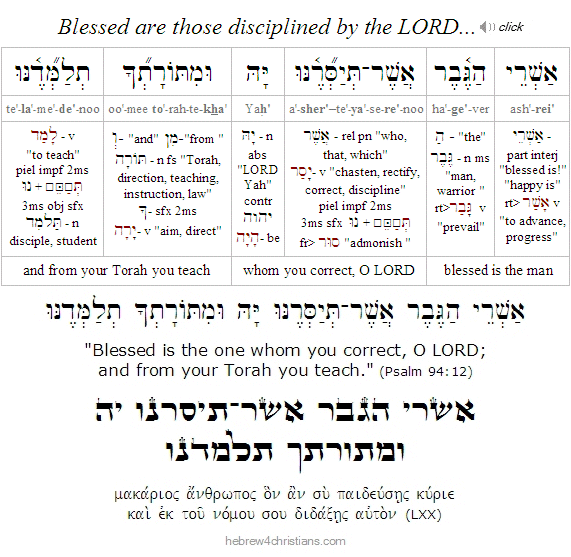 |
The Voice of Our Words....
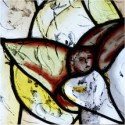
07.13.21 (Av 4, 5781) According to Jewish tradition, it was on Tishah B'Av (the ninth of Av) when the people wept over the report of the spies, a lapse of faith so serious that it provoked God to decree that the very generation He redeemed from Egypt would die in the exile of the desert (see Num. 13-14). As Moses later recounted this tragic event, he said something peculiar: "The LORD heard the 'voice of your words' (קוֹל דְבַרִים) and was angry..." (Deut. 1:35). The grammar here is unusual, for the text could have simply said, "the LORD heard your words," but the Torah adds something else, the idea of "emotional tone," or the manner, the words were spoken... Sometimes it is not so much what you say that matters, but how you say it. Words of the heart are expressed more by tone, the "voice of the words," than by the words themselves...
When we recite Shema, we do so bekhol levavkha (בְּכָל־לְבָבְךָ) - with all our heart, with all our soul, with all our might (Deut. 6:5). This is a cry from the heart that affirms God's truth. Our feelings are important and are given their voice, whether they are feelings of joy, gratitude, and so on, or feelings of doubt, despair, or fear. As Yeshua Himself said: "Would that you were either cold or hot, but because you are lukewarm - neither hot nor cold - I will spit you out of my mouth" (Rev. 3:15-16).
It's been said that if you don't know how to say something, say it loudly... The heart has its own voice regardless of the words we are able to articulate. For instance, if you love someone, then really love them and abhor being halfhearted. Being hot or being cold is better then being tepid, because then you are being honest, and honesty will always evoke a genuine response from heaven...
Hebrew Lesson:
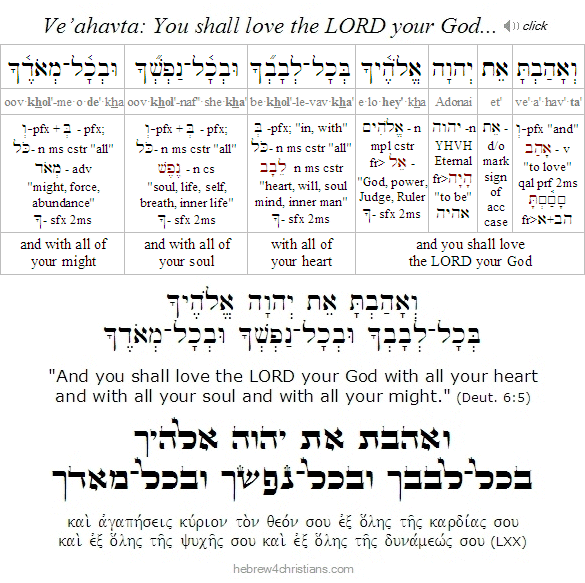 |
The Will to Believe (לִשְׁמוֹר אֱמוּנִים)

[ The following entry is related to our Torah portion this week, parashat Devarim... ]
07.13.21 (Av 4, 5781) From our Torah portion this week (i.e., Devarim) we read: "But you were not willing to ascend (וְלא אֲבִיתֶם לַעֲלת), but became bitter (מָרָה) against the Word of the LORD your God" (Deut. 1:26). Moses' rebuke was not that the people were afraid to conquer the land as much as that they had lost heart and no longer desired to take hold of God's promise. The people gave up their dream; they forsook their hope; and they had lost the "devotion of their youth, their love as a bride, how they followed the LORD in the desert, into a land not sown" (Jer. 2:2). The people's failure was on two levels: First they lapsed in faith by abdicating trust in God's word, and second, they had lost the passion of their first love. In light of this, the sages say that the greater problem was that of losing heart, since the heart directs the will to believe in the miracle of God, or not...
Moses' rebuke of the people's heart condition recalls the sober warning Yeshua gave to the Ephesian believers: "I know your works, your toil and your patient endurance, and how you cannot bear with those who are evil, but have tested those who call themselves apostles and are not, and found them to be false. I know you are enduring patiently and bearing up for my name's sake, and you have not grown weary. But I have this against you, that you have abandoned the love you had at first. Remember therefore from where you have fallen; repent, and do the works you did at first. If not, I will come to you and remove your menorah from its place, unless you repent" (Rev. 2:2-5). Likewise the author of the Book of Hebrews commented: "And to whom did he swear that they would not enter his rest, but to those who were disobedient? And with whom was he provoked for forty years? Was it not with those who sinned, whose bodies fell in the desert? So we see that they were unable to enter because of unbelief" (Heb. 3:17-19). The question of our faith is essential: "It is a fearful thing to fall into the hands of the living God" (Heb. 10:31).
Hebrew Lesson:
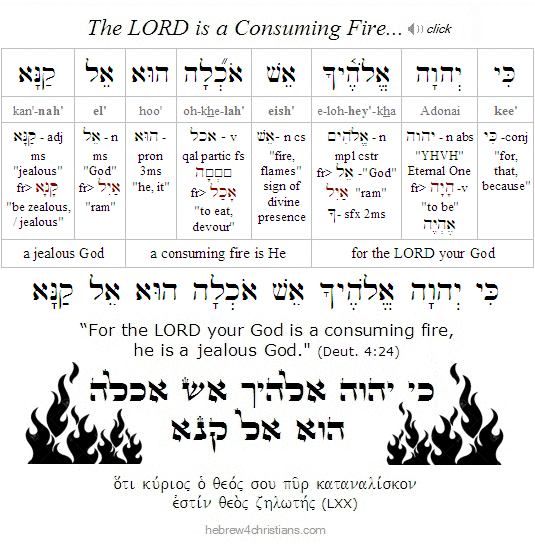 |
Confession and Healing...

07.12.21 (Av 3, 5781) The inner life of the self can be one of tranquility and peace, or it can be one of turmoil and struggle -- as we sense forces within our own hearts that seek to pull us away from what is good... What is hidden within can become a destructive force, ready to erupt in unexpected moments. We have to be careful to "take every thought captive" before the presence of God, since otherwise our thoughts can lead to chaotic thinking and unrestrained emotions. If we allow ourselves to self-indulgently murmur or envy, for example, such thoughts may surreptitiously become a fixed part of our character.
As C.S. Lewis once said: "Hell begins with a grumbling mood, always complaining, always blaming others... but you are still distinct from it. You may even criticize it in yourself and wish you could stop it. But there may come a day when you can no longer. Then there will be no you left to criticize the mood or even to enjoy it, but just the grumble itself, going on forever like a machine. It is not a question of God "sending us" to hell. In each of us there is something growing, which will be hell unless it is nipped in the bud." (Great Divorce)
We find deliverance from our inner conflicts by humbling our self and opening our hearts to a trusted friend, as it says: "Confess your faults one to another and pray for one another, that you may be healed" (James 5:16). A good friend will make time to quietly listen to the story of your struggle and to then extend grace, compassion, and forgiveness, serving as a priest for your heart, revealing God's kindness and mercy in your darkest of moments... The light shines in the darkness, and the darkness cannot overcome it (John 1:5).
Hebrew Lesson:
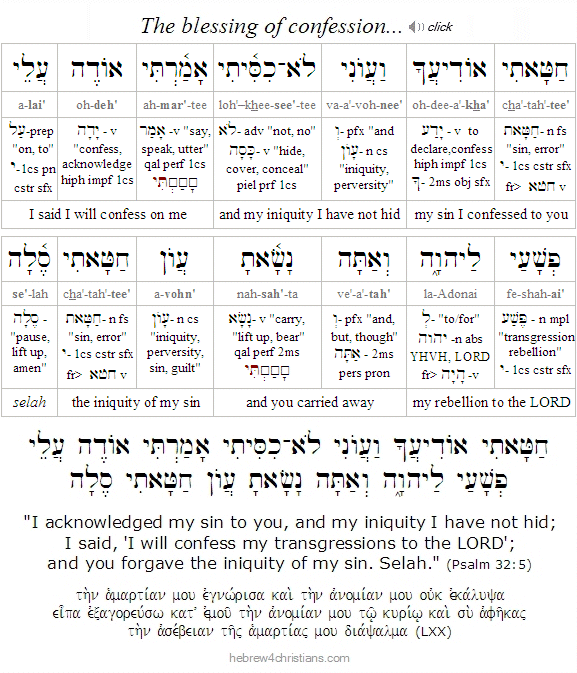 |
Moses' Appeal to Obey...

07.12.21 (Av 3, 5781) The Book of Deuteronomy (ספר דברים) begins with Moses recalling that the very people delivered from Egypt had refused to take possession of the promised land: "You refused to go up and were bitter regarding the commandment of the LORD your God" (Deut. 1:26). Because of the people's bitterness and disobedience, God's judgment was sure: "Say to them, 'As I live, declares the Lord, what you have said in my hearing I will do to you: your dead bodies shall fall in this desert, and of all your number, listed in the census from twenty years old and upward, who have grumbled against me, not one shall come into the land where I swore that I would make you dwell, except Caleb the son of Jephunneh and Joshua the son of Nun. But your little ones, who you said would become a prey, I will bring in, and they shall know the land that you have rejected. But as for you, your dead bodies shall fall in this desert. And your children shall be shepherds in the wilderness forty years and shall suffer for your faithlessness, until the last of your dead bodies lies in the wilderness. According to the number of the days in which you spied out the land, forty days, a year for each day, you shall bear your iniquity forty years, and you shall know my displeasure.' I, the Lord, have spoken" (Num. 14:28-35; cp. Heb. 3:17:19).
After this tragic review of Israel's history immediately following the Exodus, Moses appealed to the surviving generation of people, repeating the same commandment to "go up and take possession" of the promised land. Moses is encouraged this time because the subsequent generation had evidenced obedience regarding God's commandments, first when the people obeyed God by refraining from fighting the nations of Edom, Ammon, and Moab as they passed by their lands, and also how they had obeyed God by willingly fighting both Sihon of the Amorites and Og of Bashan. Because the new generation had underwent genuine teshuvah, they were ready to take possession of the promised land, and therefore he made appeal to the people to continue to obey God's commandments: "And now, O Israel, listen to the statutes and the rules that I am teaching you, and do them, that you may live, and go in and take possession of the land that the LORD, the God of your fathers, is giving you. You shall not add to the word that I command you, nor take from it, that you may keep the commandments of the LORD your God that I command you" (Deut. 4:1-2). This is the starting point of all that follows in the book, the second part of which is a subsection called "Sefer Ha'Mitzvot" (ספר המצוות) or the Book of the Commandments.
The midrash says that though Moses "stammered" and was "kevad peh" (heavy of mouth), he was enabled to speak fluently whenever the Holy Spirit moved him. Sefer Devarim (the Book of Deuteronomy) is unique among the five books of Torah because it represents Moses' great farewell appeal to follow the LORD with a whole heart. In this final book, we hear Moses - who once described himself as lo ish devarim, "a man of no words" - speaking some of the moving words of all of the Scriptures, calling us to embrace the truth of Torah, to walk in God's love, and to await the final redemption...
Hebrew Lesson:
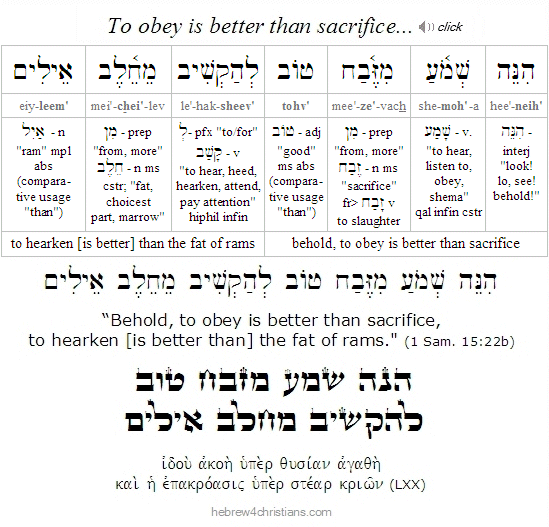 |
Shavuah Tov Podcast:
Parashat Devarim...
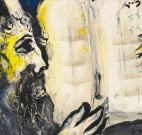
07.11.21 (Av 2, 5781) Our Torah reading for this week (i.e., parashat Devarim) is the very first portion from the Book of Deuteronomy (ספר דברים), which is always read on the Sabbath that immediately precedes the somber holiday of Tishah B'Av (תשעה באב). In Jewish tradition, this special Sabbath is called "Shabbat Chazon" (שַׁבַּת חַזוֹן), "the Sabbath of Vision," since the Haftarah that is read (i.e., Isa. 1:1-25) comes from the vision of the prophet Isaiah (ישעיהו הנביא) regarding the destruction of the Holy Temple in Jerusalem. In both Jewish tradition and liturgy, teshuvah (repentance) and viduy (confession of sin) are the themes of this preparatory Sabbath.
The Summary Book of Torah... (ספר דברים)
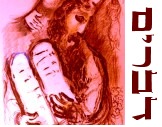
07.11.21 (Av 2, 5781) Shavuah tov, friends. This week we begin reading the concluding book of the Torah, called Sefer Devarim (ספר דברים), so named from the phrase eleh ha'devarim ("these are the words...") found in its opening verse (see verse below). In our English Bibles, Sefer Devarim is known as the Book of "Deuteronomy," from a Greek word meaning "second (or repeated) law" (i.e., δευτερονόμιον), a term used to translate the phrase mishneh ha-Torah (i.e. משׁנה התורה, "copy of the Torah," in Deut. 17:18). Generally speaking, this book represents Moses' "farewell address" to the people of Israel before he died wherein he reviewed the history and the laws given to the people and repeatedly warned that obedience would bring blessing while disobedience would bring disaster. The series of personal discourses (or sermons) in this book all have the tone of rebuke and admonition, and indeed some of the sages have said it resembles a sort of "deathbed blessing" not unlike Jacob's blessing given to his sons...
Our Torah portion (פרשה) for this week, called parashat Devarim (פרשת דברים), is the very first reading of the Book of Deuteronomy – which begins with Moses recounting the journey from Mount Sinai to the edge of the promised land. Moses mentioned the difficulty of personally governing the people and recalled how he had set up a system of judges to help him administer justice among the various tribes. He then reminded the people of the sin of the spies and the rebellion of the people at Kadesh Barnea which led to God's decree that no one of that generation would live to enter the land of Canaan (except for Caleb and Joshua). Moses then provided an outline of the 38 year exile of the Israelites back toward the Sea of Reeds, into the desert regions, and then back again until the subsequent generation was ready to enter the promised land. For more information, see the links listed below.
Words and the Heart...

07.09.21 (Tammuz 29, 5781) During his lectures on Jewish values, Joseph Telushkin used to ask his audience if they could go 24 hours without saying any unkind words about, or to, anybody. Most people said no, they couldn't. Rabbi Telushkin then commended them for their honesty, but then pointed out that if he had asked them if they could go 24 hours without drinking alcohol and they likewise said they couldn't, wouldn't that mean they have a serious drinking problem? (Words that Hurt). His point was that if you can't go 24 hours without saying unkind words about others (or raging at the world), you have lost control of your tongue. As Yeshua explained, words express the condition of the heart, since "from the abundance of the heart the mouth speaks" (Luke 6:45). Therefore the root issue concerns the heart (לֵב), the "midst of the self" that wills, desires, and chooses how to interpret and describe the world. If we choose to see from a heart of fear, we will tend to use our words as a weapon; but if we see with a heart of faith, we will seek to build others up....
In the Book of Proverbs we read, "Whoever restrains his words has knowledge, and one with a cool spirit is a person of understanding" (Prov. 17:27). The Chofetz Chaim comments: "When people are preparing a telegram, notice how carefully they consider each word before they put it down. That is how careful we must be when we speak." As James admonishes us: "Let every person be quick to hear, slow to speak, slow to anger" (James 1:19). Friends, let us earnestly pray to be delivered from agitated passions and the hurtful words we sometimes say... May God give us hearts of peace that are restrained by the Spirit of God.
Hebrew Lesson:
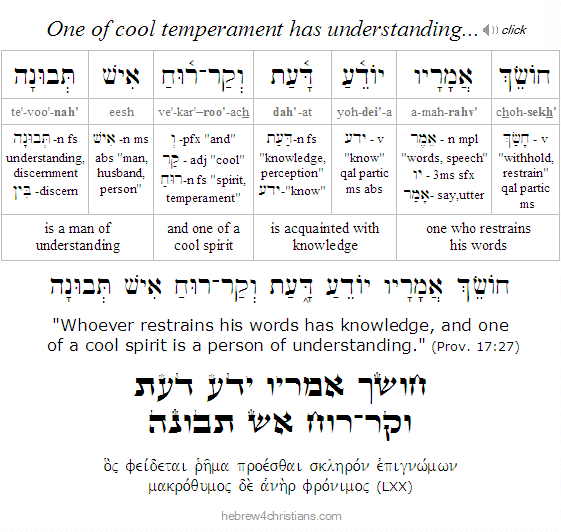 |
Tragedy and Comfort:
The Month of Av...
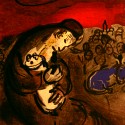
[ Tonight at sunset marks Rosh Chodesh Av, the start of the month of Av... ]
07.09.21 (Tammuz 29, 5781) On the Biblical calendar, the fifth month of the year (counting from Nisan) is called "Av" (אָב) in Jewish tradition. The month of Av is traditionally regarded as the most tragic in the Jewish calendar. On the first day of this month, Aaron (the first High Priest of Israel) died (Num. 33:38), which was considered a ominous event. On the ninth day of the month (i.e., Tishah B'Av), the LORD decreed that the original generation rescued from Egypt would die out in the desert and be deprived from entering the Promised Land because they believed the faithless report of the Spies (Num. 13-14). Later both of the Holy Temples were destroyed on the ninth day of Av as well...
Because both of the Temples were destroyed on the ninth of Av, this date is remembered as lowest point of the "Three Weeks of Sorrow" (שלושה שבועות של צער) that began with the fast of the 17th of Tammuz (undertaken to recall both the shattering of the tablets after Moses discovered the people worshiping the golden calf and also the breach in the walls of Jerusalem by the Babylonians before the First Temple was destroyed). During this period, weddings and parties are forbidden. It is a time for solemn reflection and mourning for Israel.
The last two portions of the Book of Numbers (Mattot - Masei) are always read during the "Three Weeks of Sorrow." The sages say these readings were selected at this time to ultimately comfort us as we look forward to the "apportioning of the land" -- i.e., the ultimate fulfillment of God's promises to us. Indeed, the month of Av -- despite the sorrow of the loss of the Temple -- is sometimes called "Menachem Av" (מנחם אב) - the "Comfort of the Father." One day the lamentations of our present state of exile will come to an end.
Menachem Av may also mean the "comfort of Aleph-Bet" (אב). The Prophet Jeremiah, who witnessed the destruction of the Temple, later wrote the scroll of Lamentations to commemorate this tragic time. The form of Lamentations is an acrostic based on the letters of the Hebrew Aleph-Bet (like Psalm 25, 34, 37, 119, Prov. 31, etc.). The scroll has five sections (perekim). The verses of the first two chapters and the last two chapters all are written in alphabetical order (א,ב,ג). The middle chapter, however, writes its verses using a triple Aleph Bet ordering, i.e., "Aleph, Aleph, Aleph," "Bet, Bet, Bet," "Gimmel, Gimmel, Gimmel," and so on. Since Yeshua is called the "Aleph and Tav" of God (האלף והתו) in Rev. 23:13, the comfort of the Father is revealed in Him! Yeshua is "et" (את), the direct sign and wonder of God!
Since the Book of Deuteronomy is mishneh Torah - a "retelling of Torah," it can be said that the written Torah -- from a narrative point of view -- ends with the reading of these final portions from Numbers, and by extension, with the yearning for Zion. And so it is to this day. We await the return of our Messiah Yeshua while we live in exile here on earth. And even though the Temple of the LORD is spiritually present in the Person of the resurrected Messiah, it will be made fully manifest in the days to come: first in the Millennial Kingdom (after Yeshua's Second Coming), and later still in olam habah (the world to come) as the eternal community of those redeemed by the Lamb of God (Rev. 21:22-23). So for those of us who hold faith in Yeshua as Messiah, our mourning for the Temple is really mourning for the Presence of our Beloved Savior.
Hebrew Lesson:
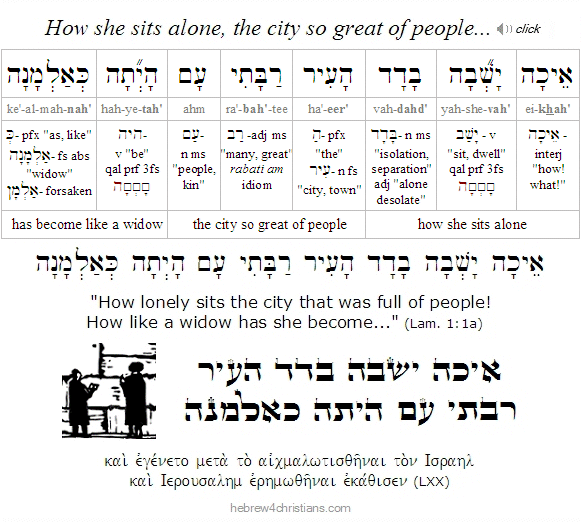 |
Dibbur Emet: Speaking Truth...

07.09.21 (Tammuz 29, 5781) The practice of "speaking truth" and being honest and straightforward (i.e., yashar: יָשָׁר) with ourselves and others is called dibbur emet (דברי אמת). Dibbur emet is the principle of using language with integrity and justice. "These are the things you are to do: speak truth (דַּבְּרוּ אֱמֶת) to one another, render in your gates judgments that are true and make for peace" (Zech. 8:16; see also Lev. 19:11; Eph. 4:25, Col. 3:9, among other verses). Note that dibbur emet also forbids spreading gossip, sharing worthless news reports, expressing contempt, mockery, or outrage over the viewpoints of others, and so on. An honest person doesn't play games with words but understands that communication is a sacred trust. Our words are to be regarded as sacred, as an expression of truth. God has made us inviolable promises, and we are never to play games with that. Just as His word is sacred, so we should strive to be sacred in our speech, too.
Hebrew Lesson:
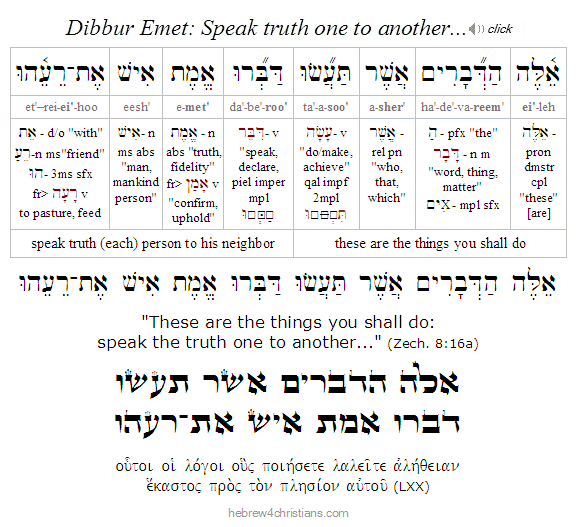 |
"Guarding the tongue," that is, watching what you say and being careful not to use words abusively or foolishly is called shemirat ha'lashon (שמירת הלשון). "What person is there who desires life and loves many days, that he may see good? Keep your tongue from evil and your lips from speaking deceit. Turn away from evil and do good; seek peace and pursue it." (Psalm 34:12-14). "Set a guard, O LORD, over my mouth; keep watch over the door of my lips" (Psalm 141:3). And as King David prayed: "Let my words and the meditation of my heart be acceptable to you, O LORD, my Rock and my Redeemer" (Psalm 19:14).
Hebrew Lesson:
Sojourning the Promise...
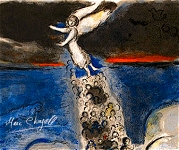
07.09.21 (Tammuz 29, 5781) Our Torah reading this week (i.e., Masei) reviews the journey of the Israelites after the Exodus from Egypt to various places along the way to the Promised Land. The portion begins: "These are the journeys (מַסְעֵי) of the people of Israel, when they went out of the land of Egypt by their companies under the leadership of Moses and Aaron" (Num. 33:1). The portion then continues with a somewhat puzzling statement: "And Moses wrote down their starting places of their journeys (מוֹצָאֵיהֶם לְמַסְעֵיהֶם), as directed by the LORD," and then adds "and these are their journeys to their starting places (מְַסְעֵיהֶם לְמוֹצָאֵיהֶם)." The sages note here that the "starting places" are first mentioned followed by the "journeys to them" to indicate a sort of circularity about where we begin and end on our way to our inheritance. En route to the promise, we will wander and we will settle, and both our wandering and our settling are related to each other. The places we leave and the places we come evoke questions about our overall journey, such as "Where are we finally going? Will we ever arrive? How long before we can move forward?" and so on.
We are all on a journey, and each step of the way represents a starting point that leads to another journey along the way. We walk "as directed by God," literally," according to the Word of the LORD" (עַל־פִּי יְהוָה). "At the command of the LORD we encamp, and at the command of the LORD we journey" (Num. 9:23). Both our going and our coming are supervised by God. The ongoing reassembling of the Mishkan ("Tabernacle"), the arrangement of the settlements, the setting up of tents, and so on, all taught the people to constantly renew their lives before God during the days of their sojourning...
Hebrew Lesson:
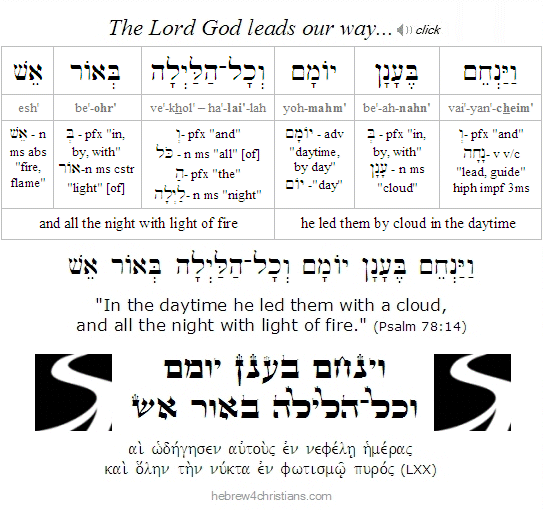 |
Daily Dvar Podcast:
Fear of the LORD...

07.08.21 (Tammuz 28, 5781) "The fear of the LORD is the first principle of knowledge, but fools despise wisdom and correction" (Prov. 1:7). In this "Daily Dvar" broadcast (see link below) I discuss how reverence or respect is axiomatic for a genuinely good life. Fearing God expresses the confidence that life is a sacred trust and that each soul is answerable to the Creator. Such godly reverence infers that nothing is trivial or inconsequential, and that all things will be accounted before the bar of divine truth. I hope you will find it helpful, friends.
Overcoming the Darkness...

07.08.21 (Tammuz 28, 5781) These are indeed dark days, and it is difficult not to be seduced by the profanity and fear of this evil world... The mass media is controlled to run it's scripts; the love of many runs cold; and people are living in fear of the "pestilence that walketh in darkness" and the "destruction that wasteth at noonday." So what do we do but encourage ourselves to look to the LORD for His salvation. We groan; we lament; we protest: "How long O LORD?" And yet we resolve to make our refuge in God's promises "until these calamities be overpast...."
As a seed planted within soil seeks life by "reaching" for the sun, so our souls are drawn upward by the desire for God. The Lord calls us "out of darkness into his marvelous light" (1 Pet. 2:9); he calls us to awaken, to grow, and to come to the fullness of his life (John 10:10). Being called "out of darkness" means being set free of those spiritual forces that attempt to hold us captive. When we turn to the Divine Light for our sustenance and healing, we are set free from the pain of our fears and the insanity of evil (Acts 26:18). As it is written: "God has not given us the spirit of fear, but of power (δύναμις) and of love (ἀγάπη), and of a "sound mind" (2 Tim. 1:7). The Greek word "sound mind" (σωφρονισμός) comes from the verb sodzo (σῴζω), meaning "to save," from saos (σάος) "safe," in the sense of being under care and influence of the Spirit of God. "God is light, and in him is no darkness at all" (1 John 1:5). Heeding the truth of Yeshua grounds you in what is real and reveals your identity and provision as a child of God, as it is written: "For you are my lamp (כִּי־אַתָּה תָּאִיר נֵרִי), O LORD, and my God lightens my darkness" (Psalm 18:28).
Hebrew Lesson:
The Fruit of our Words...

[ Our Torah reading this week (Mattot) discusses various laws regarding promises and oaths. ]
07.08.21 (Tammuz 28, 5781) Yeshua said that as a tree is to its fruit, so is a person's heart is to his speech. Our words arise from an underlying source and root: "I tell you, on the Day of Judgment people will give account for every careless word (πᾶν ῥῆμα ἀργὸν) they speak, for by your words you will be justified, and by your words you will be condemned" (Matt. 12:36-37). First note that the phrase translated "every careless word" can be understood as "every 'workless' word," that is, every vain or empty word spoken, every broken promise, every insincere utterance, and so on. Second, note that there is a relationship between naming and being in Hebrew thought, and indeed the Hebrew word davar (דּבר), usually translated as "word," can also mean "thing." This suggests that our words define reality - not in an absolute sense, of course - but in terms of our perspective and attitude, and for that we are held responsible before the LORD. Since our words express our thoughts, Yeshua wants us to make up our minds: "Either make the tree good and its fruit good, or make the tree bad and its fruit bad, for the tree is known by its fruit" (Matt. 12:33)
Hebrew Lesson:
The tongue expresses the condition of the heart, since "from the abundance of the heart the mouth speaks" (Luke 6:45). Therefore the root issue concerns the heart (לֵב), the "midst of the self" that wills, desires, and chooses how to interpret and describe the world. If we choose to see from a heart of fear, we will tend to use our words as a weapon; but if we see with a heart of faith, we will extend compassion and seek to build others up....
In the Book of Proverbs we read, "When words are many, transgression is not lacking, but whoever restrains his lips is wise" (10:19). The Chofetz Chaim comments: "When people are preparing a telegram, notice how carefully they consider each word before they put it down. That is how careful we must be when we speak." As James the Righteous admonishes us: "Let every person be quick to hear, slow to speak, slow to anger" (James 1:19).
And may it please our gracious and long-suffering LORD to answer the cry of our heart for inner purity and truth: "Let my words and my inmost thoughtsbe acceptable before you, O LORD, my Rock and my Redeemer" (Psalm 19:14). Amen...
Hebrew Keywords:
Here are a couple Hebrew words related to our Torah portion for this week:
- Dibbur emet (דברי אמת) - The practice of "speaking truth" and being honest and straightforward (i.e., yashar: יָשָׁר) with ourselves and others; the principle of using words with integrity and justice. "These are the things you are to do: speak truth (דַּבְּרוּ אֱמֶת) to one another, render in your gates judgments that are true and make for peace" (Zech. 8:16). See also Lev. 19:11; Eph. 4:25, Col. 3:9, among other verses. Note that dibbur emet also forbids spreading gossip, sharing worthless news reports, expressing contempt, mockery, or outrage over the viewpoints of others, and so on. An honest person doesn't play games with words but understands that communication is a sacred trust. Our words are to be regarded as sacred, as an expression of truth. God has made us inviolable promises, and we are never to play games with that. Just as His word is sacred, so we should strive to be sacred in our speech, too....
The Torah states, "You shall not put a stumbling block (מִכְשׁוֹל) before the blind" (Lev. 19:14). In addition to its literal meaning, the word "blind" figuratively refers to a person unaware of all the facts and who is therefore made vulnerable. Someone who misdirects the blind deceives them, and this violates the 9th commandment not to bear false witness (Exod. 20:16; 23:1). Such deception is called genevat da'at (גְּנֵבַת דַעַת), or "stealing the mind," since it defrauds the other person's trust. For example, it is common practice for politicians to disclose only what they think others need to know, and therefore they offer incomplete versions of truth for the sake of their own self-serving interests. Lying to others is a violation, then, of both the commandment not to steal and the commandment not to bear false witness. "The righteous person hates lies" - דְּבַר־שֶׁקֶר יִשְׂנָא צַדִּיק (Prov. 13:5).
- Shemirat ha'lashon (שְׁמִירַת הַלָּשׁוֹן) - "Guarding the tongue," that is, watching what you say and being careful not to use words abusively or foolishly. As it is written: "What person is there who desires life and loves many days, that he may see good? Keep your tongue from evil and your lips from speaking deceit. Turn away from evil and do good; seek peace and pursue it." (Psalm 34:12-14). "Set a guard, O LORD, over my mouth (שִׁיתָה יְהוָה שָׁמְרָה לְפִי); keep watch over the door of my lips" (Psalm 141:3). And as King David prayed: "Let my words and my inmost thoughts be acceptable to you, O LORD, my Rock and my Redeemer" (Psalm 19:14). See also Prov. 10:31; 12:13; 13:3; Eccl. 10: 12; Eph. 4:29; Col. 4:6, and so on.
 |
The Glory of His Image...

07.07.21 (Tammuz 27, 5781) One of the great tragedies of life - perhaps the greatest tragedy of all - is to walk your days without knowing the truth about why you exist and who you really are. Torah reveals that you are created b'tzelem Elohim (בצלם אלהים), in the very "image of God," for the purpose of knowing your Creator and understanding his love for you. Sin, however, has marred the divine image and therefore your heart needs to be recreated by means of the miracle of spiritual regeneration (1 Pet. 1:23). "This is the life of eternity: to know you, the only true God, and Yeshua the Messiah whom you have sent" (John 17:3).
Any "anthropology" or idea of man that is not grounded in this central reason for human existence debases the transcendent realm of human life to that of a "object" subject to impersonal forces... Naturalism reduces man to an animal that perishes and is no more (2 Pet. 2:12). The truth that our inmost existence is healed by regeneration restores us to the realm of the divine, reflecting the image of God anew, and therefore we are instructed to respect ourselves by honoring the gift of life that has been bestowed to us.
It is written: "A man is glorious, but if he does not understand, he is likened to a beast that perishes" (Psalm 49:20). Such a person is dehumanized and loses his connection with who he really is, for like an animal that is without "likeness" (דמה) to God, so he will be devoid of spiritual perspective, reasoning that all that is real concerns the immediacy of the present hour. He will be limited and bound to the dark "matrix" of this world wherein everything seems "natural" and everything happens as a result of material causes alone. The "natural man" can live his entire life without recognizing God's hand at work behind the scenes. His presuppositions and hardness of heart blind his eyes from apprehending spiritual reality. Those who have come alive and know God through the blessing of Yeshua the Messiah, however, shall also bear the image of the man of heaven, and "we all, with unveiled face, beholding the glory of the Lord, are being transformed into the same image from one degree of glory to another. For this comes from the Lord who is the Spirit" (2 Cor. 3:18).
Hebrew Lesson:
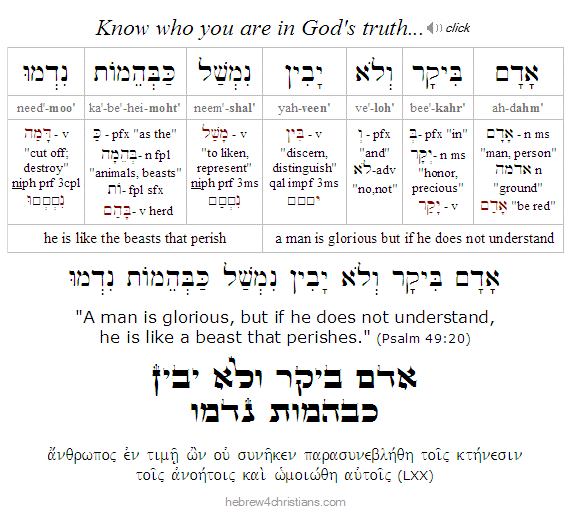 |
The Way of Escape...

07.07.21 (Tammuz 27, 5781) Where it is written, "God is faithful, and he will not let you be tempted beyond your ability, but with the temptation he will also provide the way of escape, that you may be able to endure it" (1 Cor. 10:13), we note that the Greek text says that God will actively "make with the temptation the way of escape" (ποιήσει σὺν τῷ πειρασμῷ καὶ τὴν ἔκβασιν) so that you may be able to bear it.... When I was younger, I tended to think of temptation as the appeal to gratify my flesh, to impulsively seek hedonistic pleasure, and so on, but now I understand "temptation" (πειρασμό) to encompass far more than just that. For instance, whenever I am inclined to regard my experience in human or "natural" terms, apart from the consciousness of God's all-pervading and sustaining presence, then I am surely under temptation. This encouraging verse, then, assures us of the Divine Presence in every moment, at every turn of our journey, and in every circumstance. God is always present to help you as you turn to him in faith. The sages state in this regard: "God creates the cure before the plague," meaning that His love is the foundation of all things: עוֹלָם חֶסֶד יִבָּנֶה / olam chesed yibaneh: "steadfast love built the world" (Psalm 89:2). Just as God created mankind only after He created the pathway of repentance (i.e., the "Lamb slain from the foundation of the world": Eph. 1:4, Heb. 4:4, Rev 13:8), so the escape from temptation was likewise foreseen and provided. In all things, then, may we humble ourselves and seek God's face, understanding our radical dependence upon Him for our deliverance. Amen.
Hebrew Lesson:
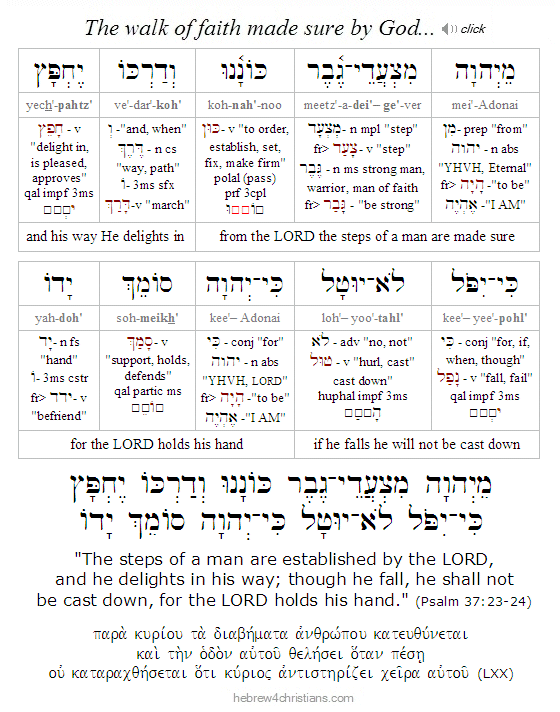 |
Being a true Jew...
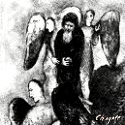
07.06.21 (Tammuz 26, 5781) Our father Abraham is called ha-ivri (הָעִבְרִי) - "the Hebrew," a term that means "one who has crossed over" (עָבַר) from another place (Gen. 14:13). The famous medieval Torah commentator Rashi literally identified this "other place" as Ur Kasdim (אוּר כַּשְׂדִים), located east of the Euphrates River, though the midrash (Genesis Rabbah) spiritually identified it as the realm of idolatry: "The whole world stood on one side, but Abram crossed over to the other." Abram separated himself from a world steeped in idolatry and polytheism by worshipping One God who is the sole Creator of all things.... Understood in this way, being "Hebrew" means being regarded as an "other," a "stranger," or an "outsider" to idolatrous worldly culture. Therefore all those who "cross over" from the realm of death to life because of Yeshua are rightly called "Hebrews" (John 5:24).
The term "Jew," on the other hand, refers to one who praises the LORD (יְהוּדָה). The word (יְהוּדִי) comes from a root (יָדָה) which means to "confess" or to "praise" God (Gen. 29:35). The Apostle Paul alluded to this by saying that one whose heart has been circumcised by the Spirit is "one who is praised by God -- not by men" (Rom. 2:29). Being a Jew therefore means you are "chosen" to receive blessings and grace to live in holiness for the glory of God and for the healing of the world. The performance of various mitzvot are for the greater purpose of tikkun olam, the "repair of the world," in order to reveal God's goodness and love (Eph. 2:8-10). Doing so makes someone a Jew, since his praise comes not from man, but from the LORD. God is the source and the power of what makes a true tzaddik (righteous person). After all, Israel was meant to be a "light to the nations" (Isa. 42:6; 60:3), and God had always planned for all the families of the earth to come to know Him and give Him glory through his chosen servant Abraham (see Gen. 12:3; 22:18). "Jewishness" is therefore not an end in itself but rather a means to bring healing to the nations... Indeed, the entire redemptive story of the Scriptures centers on the cosmic conflict to deliver humanity from the "curse" by means of the "Seed of the woman" who would come. The gospel is Jewish because it concerns God's great redemptive plan for the whole world (John 3:16; 4:22).
Hebrew Lesson:
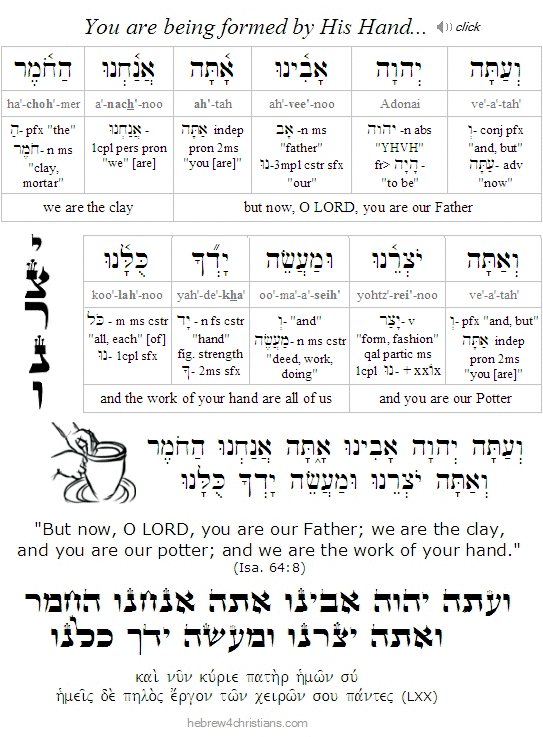 |
Note: For more on this see "The Father of all who Believe."
Inner Ache of Loneliness...

07.06.21 (Tammuz 26, 5781) You may sometimes feel lonely and afraid, wondering if anyone really cares for you; you may feel abandoned to wander about in your heartache, without a sense of acceptance or "place" for your life; you may feel estranged from others, in a place of desperation, a silent scream, without apparent comfort in the world... These are real feelings and I do not discount them, though often such feelings arise from unbelief, or at least from questioning whether God's love is for you, after all...
Friend, there is an intimate comfort for your mourning; there is heavenly consolation for the grief and emptiness you feel inside. Look again to the cross and attend to God's passion for you; believe in the miracle of Yeshua's love for you; by faith see his blood shed for you... He knows your alienation: he was "despised and rejected of men"; he knows the pains of your heart: he was a "man of sorrows acquainted with grief"; he knows the heartache of being forsaken, abandoned, and utterly betrayed. Indeed Yeshua knows your infirmities; he understands how you hurt and calls you to his comfort... Therefore when feelings of loneliness well up within you, go inward to commune with the Spirit. Ask God for his consolation so that you too might console others who are suffering (2 Cor. 1:3-4). Do not lose hope but foresee your blessed future. Focus on the coming day of healing for all the world. Remind yourself again and again that you are never really alone, that nothing can separate you from God's love, and that God's Name is "I-am-with-you-always," "I am your Abba, your true home and place of belonging, all your dreams of love will come true, and unimaginable beauty and endless delight await you in the glories of the world to come."
"Whoever has God truly has a companion in all places, both on the street and among people.. Why is this so? It is because such people posses God alone, keeping their gaze fixed upon him, and thus all things reveal God for them.... Such people bear God in all their deeds and in the places they go, and it is God alone who is the author of all they do." (Meister Eckhart: Talks of Instruction)
You will never experience peace as long as you regard the acceptance of who you are as conditional, since you will only be as secure as your own best efforts, a project that will exhaust you in the end. Instead you must know yourself as truly loved by God, just as the "prodigal son" came to know his father's unconditional love and acceptance despite his many misdeeds (Luke 15:11-32). The incarnation of Jesus means that God "runs to meet and embrace you," regardless of whatever happened in your life that made you run away from home. And whatever else it may be, sin is the separation from God's love, but Yeshua made the decision to die for your sins before you were born. Your sin cannot overrule God's surpassing and personal love for your soul, since God gave up his very life for you to find life.
A.W. Tozer once wrote: "The loneliness of the Christian results from his walk with God in an ungodly world, a walk that must often take him away from the fellowship of good Christians as well as from that of the unregenerate world. His God-given instincts cry out for companionship with others of his kind, others who can understand his longings, his aspirations, his absorptions in the love of Christ; and because with his circle of friends there are few who share his inner experiences, he's forced to walk alone. The unsatisfied longings of the prophets for human understanding caused them to cry out in their complaint, and even our Lord himself suffered in the same way.
"The man (or woman) who has passed on into the divine Presence in actual inner experience will not find many who understand him. He finds few who care to talk about that which is the supreme object of his interest, so he is often silent and preoccupied in the midst of noisy religious shoptalk. For this he earns the reputation of being dull and over-serious, so he is avoided, and the gulf between him and society widens. He searches for the friends upon whose garments he can detect the smell of myrrh and aloes and cassia out of the ivory palaces, and finding few or none, he, like Mary of old, keeps these things in his heart. It is this very loneliness that throws him back upon God. His inability to find human companionship drives him to seek in God what he can find nowhere else."
Such was Abraham's test, as he had no way to communicate his burden regarding the sacrifice of his beloved son Isaac. And there is also a loneliness that arises when you must wrestle through disappointment in your walk with God... This is an empty place where you realize that you're request has been denied, and yet you must continue to walk on in trust. That is a hard place, too.
"Blessed are those who hunger and thirst for righteousness" (Matt. 5:6). Yes, blessed are those who suffer such desperate need, who know inner emptiness, who are not made numb to the ache, and who cry from the heart for deliverance. Blessed are those who are in dread over themselves, who fall as one dead before the Divine Presence, who know they are undone, ruined, and dying for life... The great danger, spiritually speaking, is to become complacent, untouched by poverty of heart, to be lulled asleep, lost within a dream, made comatose, living-yet-dead. The gift of faith first reveals our own lostness and then imparts courage to live with ourselves despite ourselves as we seek God's healing and life...
Hebrew Lesson:
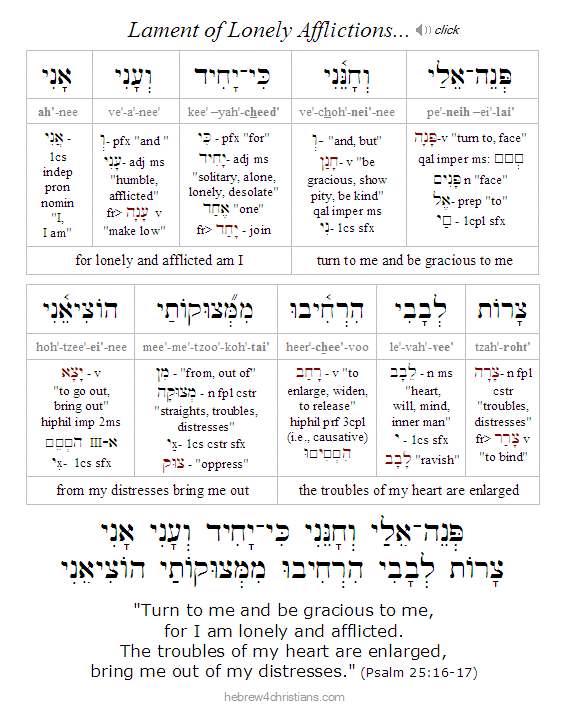 |
|



































































